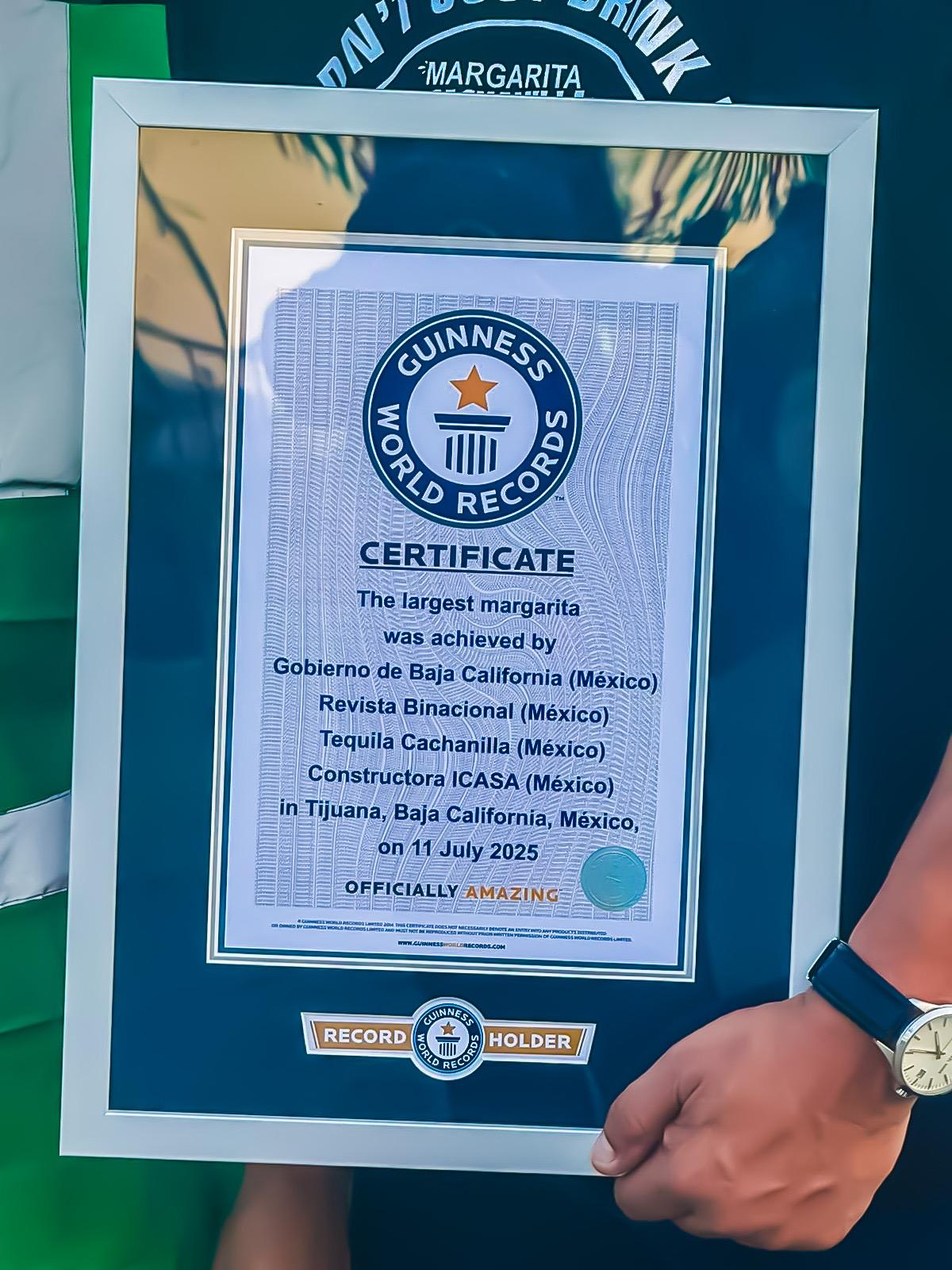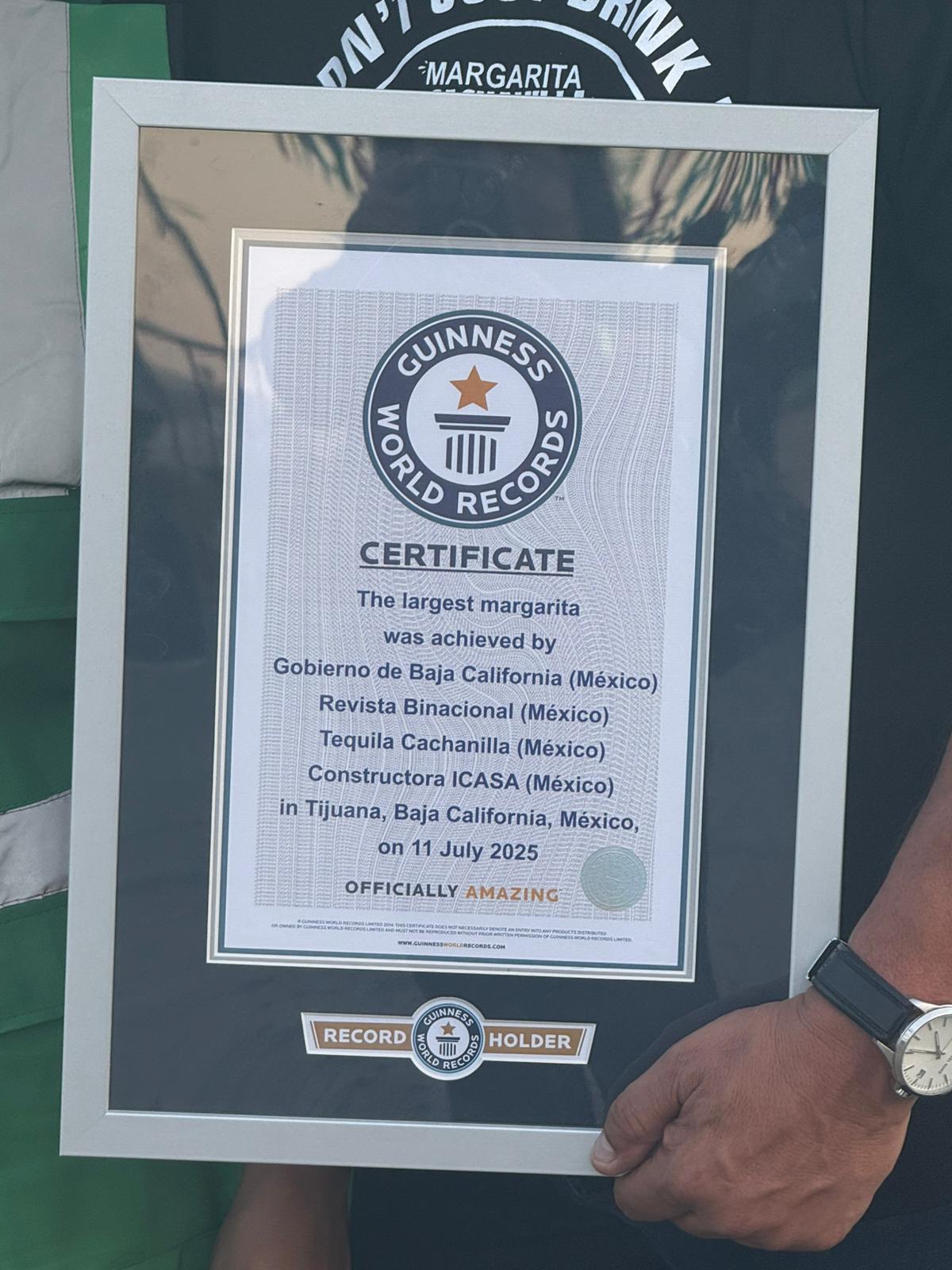

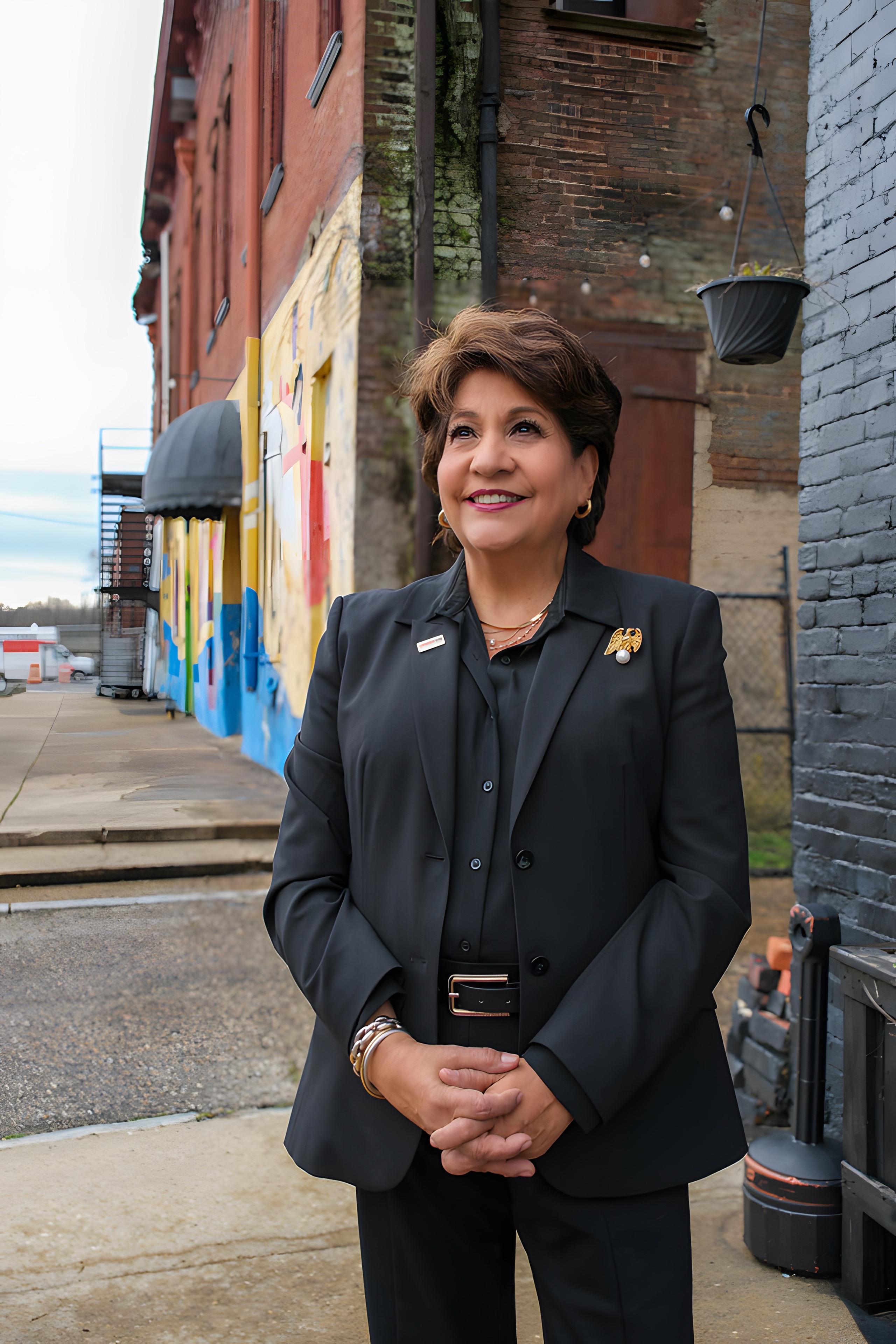












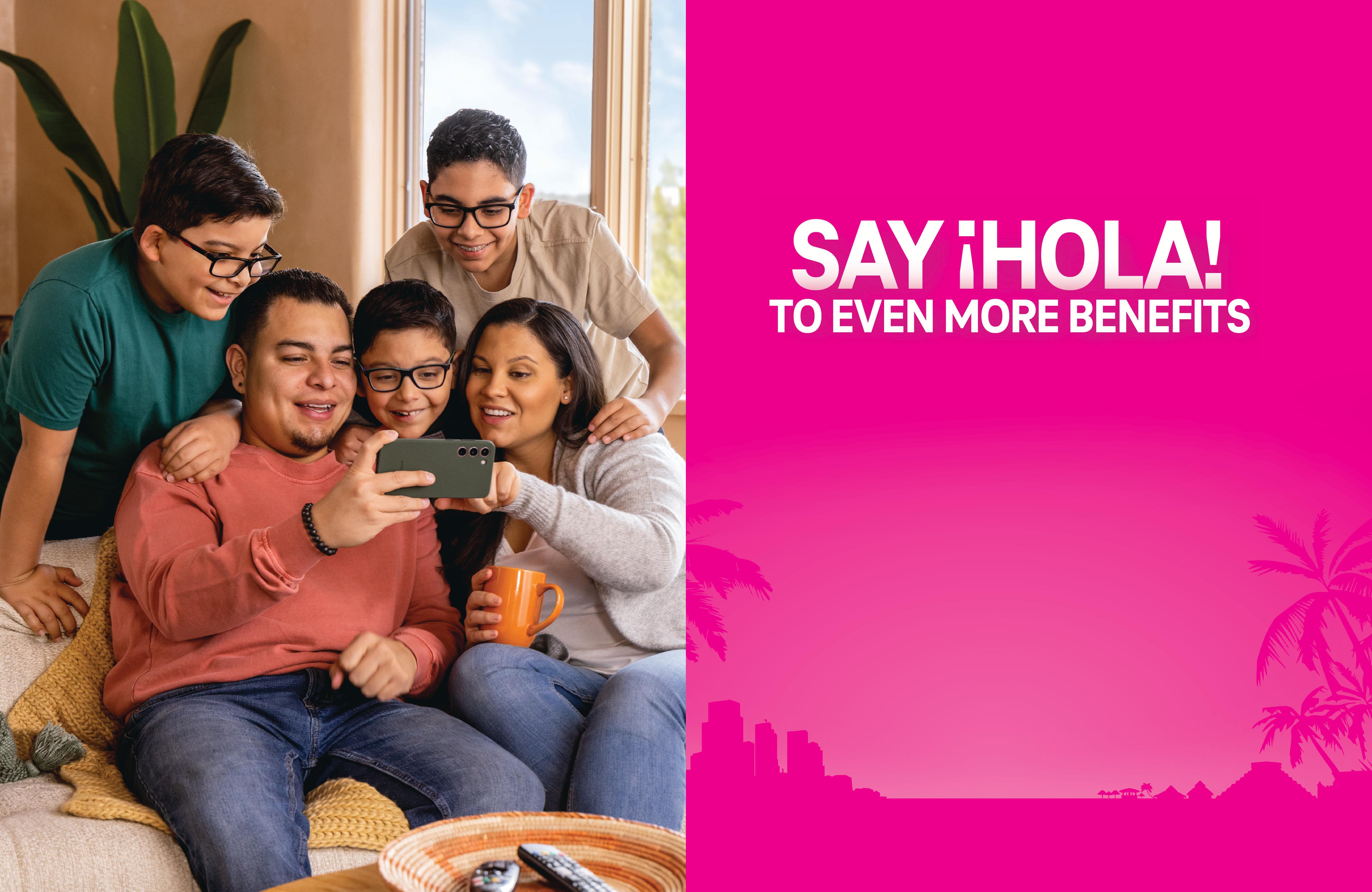







Dear Friends of UNIDOS US,
It is with great pride and deep gratitude that we share the honor La Revista Binacional has been given: the opportunity to create a special edition magazine in celebration of UNIDOS US and the extraordinary 20-year leadership of Janet Murguía.
This was more than just a publication—it was a tribute to a woman whose unwavering commitment has helped shape the national Latino agenda and uplifted millions of lives across the United States. Through this commemorative edition, we reflect on two decades of advocacy, progress, and community empowerment that have defined Janet’s leadership and the organization’s mission.
As a binational publication committed to telling our stories with truth, dignity, and pride, we understand the profound responsibility that comes with documenting this milestone. This edition not only highlights Janet’s legacy, but also the
voices, programs, and impact that UnidosUS has built across housing, health, education, and civil rights.
This magazine will be distributed during the UnidosUS Annual Conference in August 2025 in Kansas City, Missouri—Janet’s hometown and the perfect setting to honor her journey. This magazine will also be available in a digital format on our website.
To be entrusted with this project was a true privilege, and we worked with dedication and love to ensure that every page reflected the spirit, struggle, and strength of our community.
Thank you for believing in the power of storytelling and in the mission we share.
Con respeto y compromiso, La Revista Binacional Team
A Message from the Chair of the UnidosUS Board of Directors Dr. María Harper-Marinick.
Origins: From National Council of La Raza to UnidosUS.
Programs That Changed Lives. Great wins. Fundamental Policy Changes and Social Impact in the Last Two Decades. UnidosUS The Rebrand. What “UNIDOS” means and how it shaped a movement.
Kansas City Pride. Latinos in Kansas City, Past, Present and Future.
The Murgía Legacy in Kansas City.
Local Partners, Lasting Impact: Kansas City Nonprofits Working with UnidosUS.
Kansas City, Missouri Art & Culture.
How UNIDOS US Built a National Affiliate Network. Youth Voices in UnidosUS.
How Nonprofits Shape the Legislative Agenda. UnidosUs Summary of Leadership Timeline. From the Ground Up: Success Stories of UnidosUS Affiliates and Their Community Impact.
UnidosUS Legacy Projects: Highlighting long-term community transformation.
Measurable Impacts of UnidosUS.
The Woman Behind the Movement. Janet Murguía: 20 Years of Leadership (2005–2025).
Next Gen Leadership. Raising Latino Changemakers.
Latino Power in Politics.
Latino Excellence. What does it mean exactly?
Dolores Huerta. Tireless Voice for Immigrants and Worker’s Rights.
Book “The Price of Emigration”.
Congratulations to Janet Murguía from La Revista Binacional.

DIRECTORY:
Co-Founders:
• GINA DEWAR
• RAFAEL GARCÍA
• CARLOS FLORES
Regional Directors:
• GABRIELA JURICA
• LESLIEE CORTEZ
• SANDRA GASTELUM
• SANDRA TICKELL
LUCÍA DELGADO
Operations Manager
MICHELLE GÓMEZ
Marketing and Graphic Design
LORENA MENDOZA
Marketing and Social Media
MIGUEL PALOMARES
Web Developer
ADRIANA HERNÁNDEZ
Executive Assistant
• MEDIA INFORMATION: LARBMEDIA.COM
• GENERAL INQUIRIES: INFO@LARBMEDIA.COM






Special


Gina Dewar
Chief Editor, Magazine












































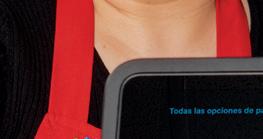


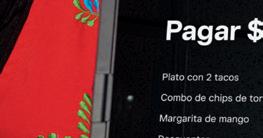




























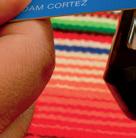
















At Square, our tools are designed to help businesses of all sizes start, run, and grow. That's why millions of businesses worldwide have chosen Square for everything from taking payments and managing their team to building their brand.
Learn more at square.com
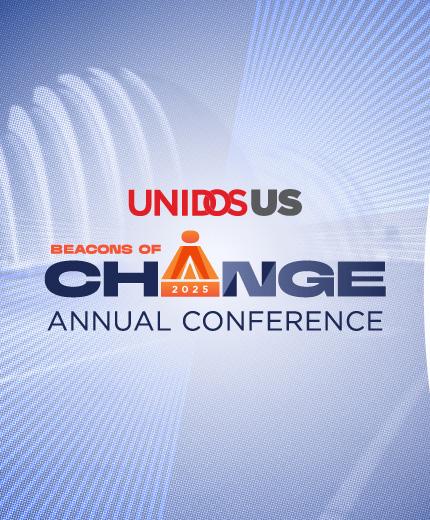

Harper-Marinick
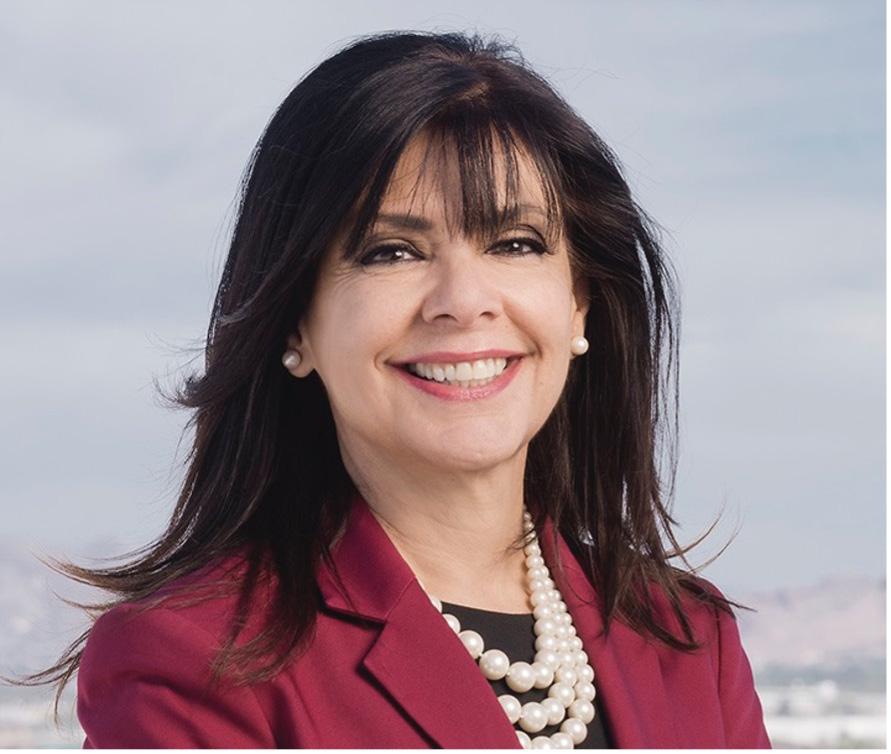
It is a distinct honor to recognize and celebrate the extraordinary 20-year leadership of our President and CEO, Janet Murguía. For two decades, Janet has guided UnidosUS with unwavering commitment, bold vision, and an unshakable belief in the power and potential of the Latino community.
From the halls of Congress to grassroots communities across the country, her leadership has elevated UnidosUS into a national force — defending civil rights, expanding opportunity, and amplifying the voices of millions. Janet’s deep connection to community, her integrity, her courage, and her passion have left a profound legacy not only within our organization, but across the country.
This year, we are especially proud to commemorate her leadership in a city that shaped her own story — Kansas City, Missouri. During our 2025 UnidosUS Annual Conference, which is taking place from August 4–7 under the theme Beacons of Change. It will be a powerful reflection of what Janet has built over two decades: a national network of advocates, leaders, and changemakers who work every day to move our community forward.
In these uncertain and divided times, the UnidosUS Annual Conference is more than a convening. It is a rallying point — a space where ideas become action, strategy meets solidarity, and our collective voice grows louder. Whether working in policy, health, education, economic empowerment or culture, our attendees leave reenergized, connected, and ready to lead.
We invite you to join us in celebrating Janet’s incredible journey and in embracing the spirit of the conference: to be Beacons of Change — for our families, our communities, and our country.
Con esperanza y orgullo,
Dr. María Harper-Marinick Chair, Board of Directors



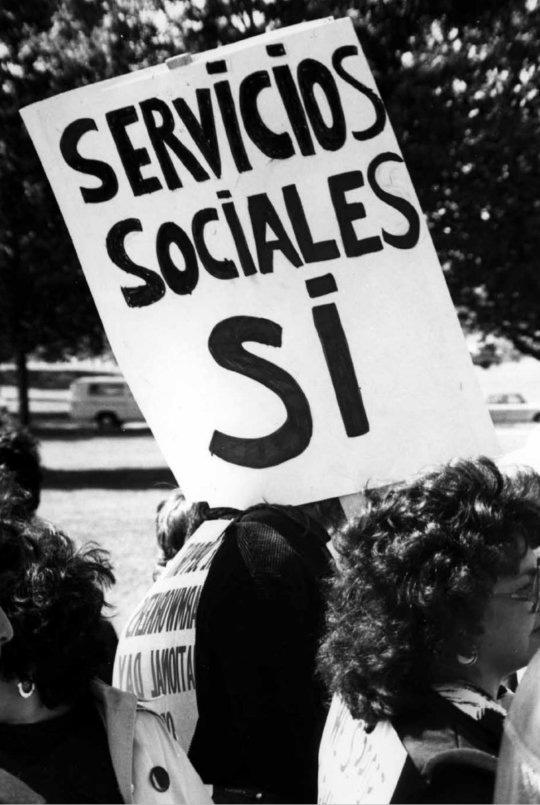
Source: UnidosUS.ORG

Amid the civil rights era, as America confronted its legacy of inequality and division, a powerful movement emerged from the heart of the Southwest. It was 1968—a year marked by protest, upheaval, and a growing demand for justice. For Latinos in the United States, there was a growing realization that their voices were not being heard in national conversations about race, poverty, and opportunity. Out of that urgency, the National Council of La Raza (NCLR) was born—a bold, transformative organization dedicated to improving the lives of Latino families across the country.
The organization began as the Southwest Council of La Raza, based in Phoenix, Arizona. Founded by Dr. Ernesto Galarza, Herman Gallegos, and Dr. Julian Samora, the group was formed to address the systemic inequities faced by Mexican Americans, particularly in housing, education, and employment. With early support from the Ford Foundation, the organization was formally established in 1968.
“La Raza,” meaning “the people” or “the community,” was a unifying term that resonated with those who traced their roots in Mexico and the Southwest. It reflected pride, solidarity, and a sense of shared struggle. But soon, the organization’s vision became more inclusive—it sought to serve the entire Latino community, regardless of national origin.
Throughout the 1970s and 1980s, NCLR grew in prominence. It focused on policy advocacy, grassroots community development, and coalition-building. It also began to develop a powerful national Affiliate Network—local community-based organizations that partnered with NCLR to deliver services, provide direct assistance, and advocate for change at the local and state level. This model gave the organization a unique blend of policy expertise and real-world connection.
Education quickly became a central focus. NCLR launched programs to support English language learners and reduce dropout rates among Latino students. It advocated for fair housing policies, worked to expand access to healthcare, and pushed for economic opportunities for Latino working famlies. By the 1990s, NCLR had established itself as the leading voice for Latinos in Washington, influencing legislation and shaping public discourse.
Still, the organization continued to evolve alongside the community it served. The Latino population in the United States was growing rapidly—not only in numbers but in diversity. New waves of immigrants from Central America, South America, and the Caribbean were reshaping the cultural and linguistic landscape of the Latino experience in the U.S. NCLR leaders knew it was time to revisit the organization’s name and identity to better reflect the full breadth of the community.
In 2017, after years of internal reflection and dialogue with stakeholders, the National Council of La Raza announced a new name: UNIDOSUS. “Unidos” means “united” in Spanish—a word that represents togetherness, inclusivity, and collective strength. The name change was more than symbolic; it was a reaffirmation of the organization’s commitment to unity across the Latino diaspora, and to building bridges with other communities across the country.
“UNIDOSUS is a name that respects our history and reflects who we are today,” said President and CEO Janet Murguía at the time of the announcement. “It reinforces our role as a unifying force for the diverse Latino community and our mission to build an America where everyone has an equal opportunity to succeed.”
Murguía, who took the helm in 2005, has been instrumental in guiding the organization through this transition. A Kansas City native and daughter of Mexican immigrants, she brought deep experience from her work in the White House and a strong commitment to social justice. Under her leadership, UNIDOSUS has expanded its focus on voter engagement, immigration reform, racial justice, and economic equity.
Today, UNIDOSUS is the largest national Latino civil rights and advocacy organization in the country. Its work reaches millions of Latinos through its policy research, advocacy campaigns, and national network of nearly 300 Affiliate organizations in 37 states, Washington D.C., and Puerto Rico. It continues to lead critical conversations around education, healthcare, housing, workforce development, and immigration.
While the name has changed, the mission remains the same: to create a stronger, more inclusive America by empowering Latinos and expanding opportunities. UNIDOSUS embodies the evolution of a movement—from grassroots activism to national leadership—always rooted in the belief that when Latinos thrive, the country thrives.
The story of UNIDOSUS is one of resilience, reinvention, and relentless pursuit of justice. From its origins as the National Council of La Raza to its present as a powerful force for unity and equity, it remains a beacon of hope and a champion for the Latino community in every corner of the nation.


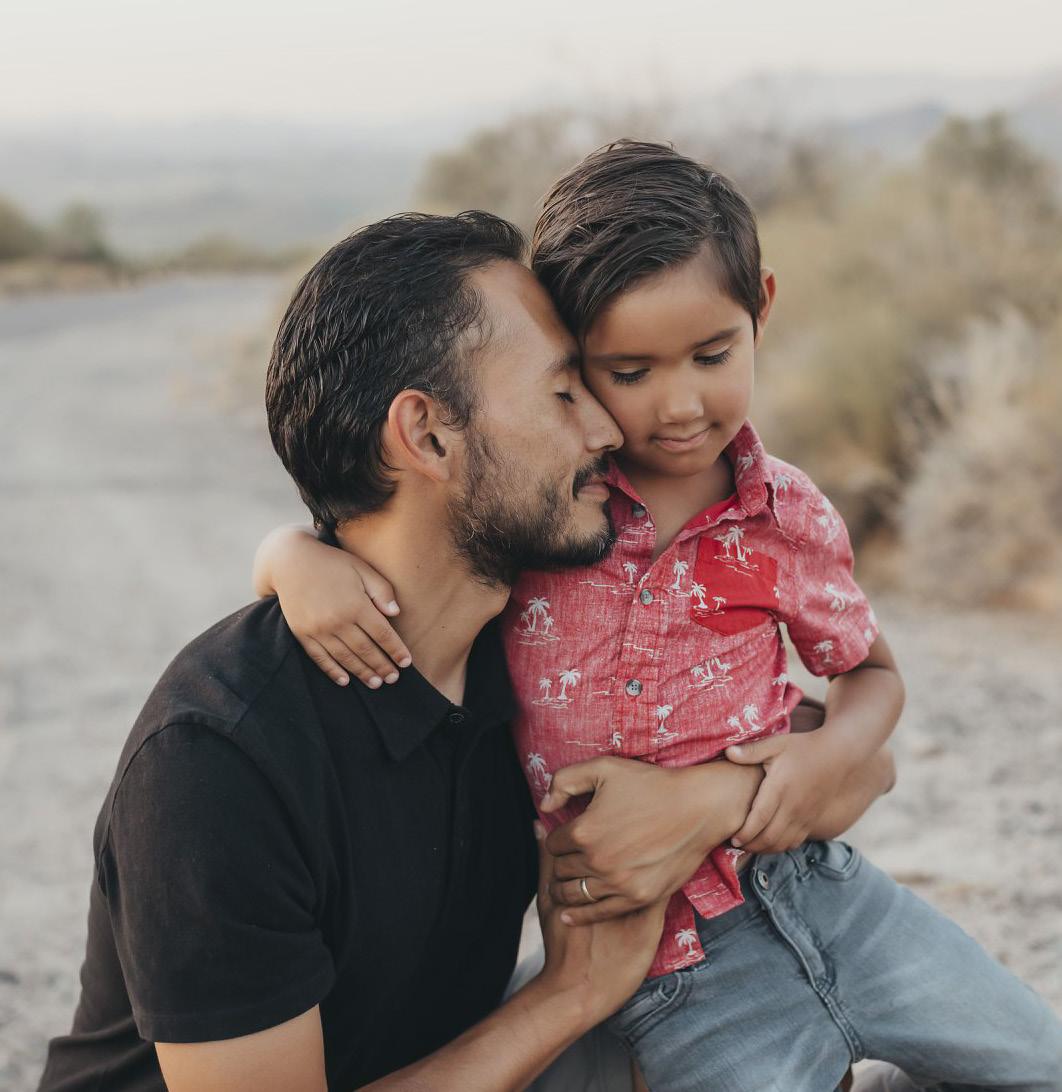

For nearly six decades, UnidosUS has transformed policy into progress through on-the-ground programs that directly serve Latino communities across the country. While the organization is best known for its civil rights advocacy, its true impact is often most visible at the local level—through practical programs in housing, education, health, and immigration that have changed countless lives.
For many Latino families, the dream of homeownership has long been out of reach—due to income inequality, language barriers, and predatory lending. UNIDOS US responded to these challenges by launching the HOME initiative, housing counseling network and financial empowerment network, nationwide initiatives that partner with trusted local organizations to guide families through the complex process of buying a home.
Through one-on-one counseling, financial education, and access to affordable mortgage options, UnidosUS’s HOME initiative and Housing & Financial Empowerment programs have helped nearly 1 million families in the past 20 years. UnidosUS programs don’t just teach people how to buy a home—it equips them with the knowledge to build generational wealth.
In Phoenix, Arizona, the story of María González is one of many. After years of renting and being denied loans, she turned to a local UNIDOS US Affiliate for help. With their support, María completed a homebuyer education course, repaired her credit, and purchased her first home. “They gave me more than a house,” she said. “They gave me dignity and stability for my children.”
UnidosUS is committed to ensuring Latino jobseekers can access family-sustaining careers and training needed to grow. This includes expanding access to digital tools, industry-specific training and wraparound supports that reflect the realities our communities face.
One example is Latinos in Finance, a banker training implemented by Affiliates and nonprofit partners. Launched in 2015, Latinos in Finance program’s goal is to improve pathways to employment for Latinos seeking jobs in commercial banking or finance industries.
One Latinos in Finance program participant shared benefits of this program. “When I read that the job placement rate was something like 75% for this class, it seemed too good to be true. Not only do I believe that statistic now, I know it’s only going to keep growing because of how bright my classmates are and how much preparation my instructors have given us.”
Education has always been at the heart of the UnidosUS mission. Recognizing the achievement gap facing Latino students, the organization created a suite of programs focused on early childhood development, K-12 success, higher education readiness and family engagement. UnidosUS seeks to close the educational opportunity gap between Latino students and their peers, which can lead to increased achievement rates and significantly more students on the pathway to sustaining jobs and careers. UnidosUS achieves this through three strategic priorities:
• Early childhood education: Increase in affordable, high-quality and culturally responsive early childhood education opportunities for Latinos that prepare them to enter kindergarten ready.
• Access to high-quality postsecondary opportunities: Increase in equitable access to and completion of high-quality postsecondary pathways aligned to sustaining careers.
• Preparation for 21st century careers: Expand access to and improve quality of career pathways and supports, enabling more Latino youth to obtain, retain and progress in family-sustaining jobs.
One flagship effort is Padres Comprometidos, a family engagement program.
Another initiative, Escalera, serves high school students through career and postsecondary preparation.
One Escalera graduate, Luis Ortega from Dallas, credits the program with helping him secure a full scholarship to study engineering. “Before Escalera, I didn’t think college was for someone like me,” he said. “Now, I know I belong.”
For UnidosUS health equity is a long-term commitment to closing disparities and building systems that recognize and serve Latino families with dignity and care. Long before the COVID-19 pandemic exposed failures of the public health system, UnidosUS had been investing in culturally grounded health education, preventive care, mental health and food security through a trusted network of community-based partners.
For over a decade, UnidosUS has helped Latino communities navigate the health care system, from enrolling in health insurance to accessing vaccines and preventive care. As a national leader in supporting Affordable Care Act outreach, UnidosUS supported Affiliates and partners to train bilingual navigators and helped over 100,000 Latinos enroll in health coverage, dramatically reducing uninsured rates in underserved neighborhoods.
At the height of the pandemic, UnidosUS launched Esperanza Hope for All (EHFA), a national, bilingual vaccine education and access campaign. In partnership with 33 Affiliates across the United States, EHFA reached millions through culturally fluent messaging and on-the-ground mobilization. The program administered over 731,000 vaccine doses, hosted more than 5,500 outreach events and trained more than 7,000 trusted messengers, including promotores de salud, youth ambassadors and faith leaders, to counter misinformation and re-build trust in public health systems.
Latino youth and families face rising rates of mental health challenges, compounded by stigma, language barriers and access issues that often keep them from getting care. UnidosUS’ Healthy and Ready for the Future (HFR) initiative addresses these barriers by integrating early oral and metal health care into early childhood education systems.
Since 2016, nearly 120,000 Latino children have received dental care, and since 2019, nearly 35,000 children have accessed behavioral and emotional wellness services through HRF. Parents are empowered through culturally grounded education using the Abriendo Puertas curriculum, helping families recognize and respond to their children’s emotional needs early, reducing stigma and increasing resilience.
Latino families continue to face disproportionately high rates of food insecurity and preventable diet-related illness, yet they ften encounter language barriers and misinformation when accessing federal nutrition programs. UnidosUS combats these barriers through nutrition education, outreach, and policy change efforts that prioritize culturally and linguistically responsive strategies.
Through its work with community-based partners, UnidosUS has trained promotores de salud to deliver in-language nutrition education and support enrollment in SNAP and WIC, helping families access the healthy food they need to thrive UnidosUS also provides technical assistance to community based organizations nationwide as part of a USDA-supported effort to increase WIC participation, benefit redemption, and reduce disparities in program access.
In addition to outreach and enrollment support, UnidosUS has played a long-standing advocating for culturally responsive nutrition policy. For over a decade, UnidosUS supported the movement to introduce folic acid fortification of corn masa flour. In 2016, the FDA approved the voluntary fortification of corn masa flour with folic acid, a policy change driven by years of advocacy from public health experts, community organizations, and UnidosUS. In 2024, that effort reached a new milestone when California passed a law requiring folic acid fortification of all corn masa products sold in the state. While UnidosUS did not lead that campaign, we celebrated it as a major victory for the food security and nutrion equity movement — a testament to the power of community-driven policy change and a model for national adoption.
Immigration has long been one of the most polarizing issues in American politics—and one of the most personal for Latino families. UNIDOS US has remained at the forefront of this fight, combining advocacy with practical support.
Its Immigration Integration Project Supports UnidosUS Affiliates who have Immigration legal service programs to help eligible lawful permanent residents apply for citizenship, offering clinics, provide legal consultations, and immigration information workshops. The Immigrant Integration Project has supported UnidosUS Affiliates to start immigration legal services programs and to sustain and grow existing programs to improve access to justice . UnidosUS provides Affiliates access to trainings to strengthen and grow the immigration legal services field so that more immigrants receive high quality, low-cost services.
UNIDOS US provides accurate and reliable information about immigration through its website, social media channels, and the UnidosUS Affiliate nETWORK. And when immigrant communities have been under attack— whether through policy or rhetoric—the organization has responded with strength and solidarity.
In the words of an Affiliate in Florida who received access to train its staff, “Thank you for sharing this important information. This always helps us train more of our staff that we would not be able to access otherwise”.
These programs represent just a fraction of what UNIDOS US and its Affiliates do every day. Their approach is holistic: not just treating symptoms of inequality, but addressing root causes through education, empowerment, and community leadership.
At the core of every program is a simple belief—that Latino families deserve the same opportunities to thrive as anyone else. And when we invest in those families, we strengthen the entire nation. Through housing, education, health, and immigration initiatives, UNIDOS US continues to change lives—one story, one family, one community at a time.
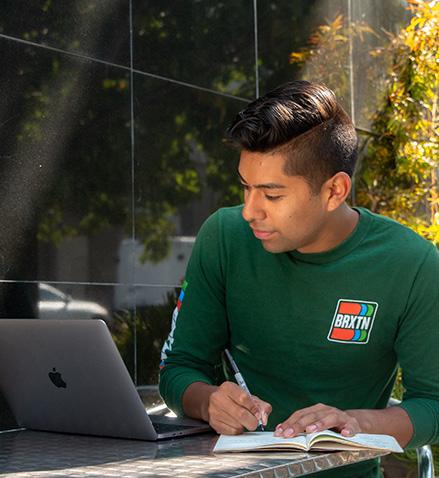

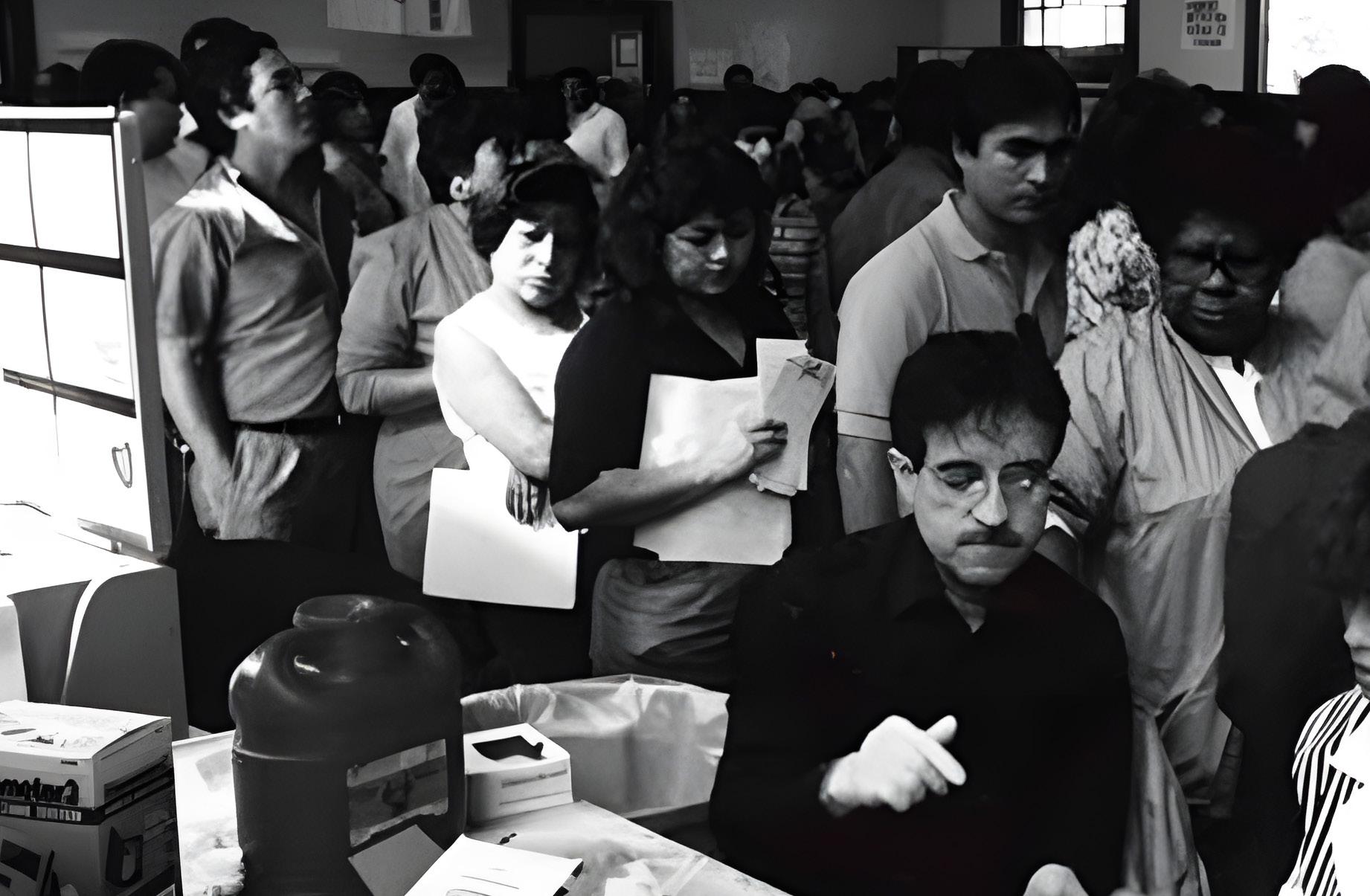
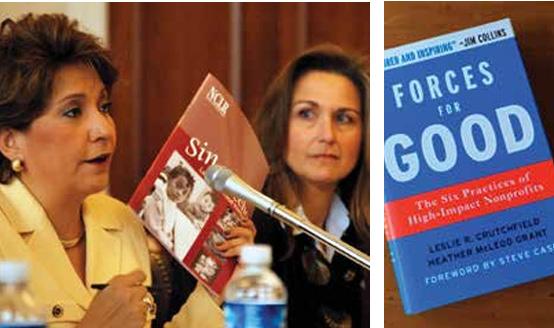
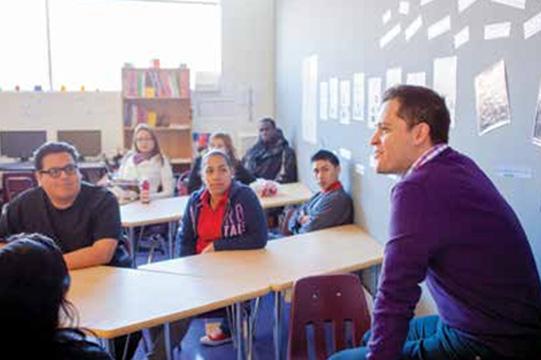
Since its inception as the National Council of La Raza (NCLR) in 1968, UnidosUS has become a key force for the transformation of public policies that benefit the Latino community in the United States. Its impact has deepened over the last twenty years in fundamental areas such as immigration reform, health, education, economic development, and civic power.
A Force for Good. In 2007, NCLR was selected as one of the best nonprofit organizations in the United States, featured in the book “Forces for Good: The Six Practices of High-Impact Nonprofits.”
UnidosUS was instrumental in the creation of the Immigration Reform and Control Act of 1986, also known as the Immigration Reform and Control Act. This law legalized nearly 3 million undocumented migrants who arrived before January 1, 1982, also establishing labor sanctions and the I-9 form to verify eligibility.
Two years later, it influenced the “Family Fairness” program of the INS (1987-1990), which granted deferred action to spouses and children of amnesty beneficiaries, solidifying family reunification.
Between 2008 and 2018, UnidosUS championed the movement in defense of the Dreamers, supporting the DACA program, and contributing to massive protests like those in 2006, which gathered up to 1.5 million demonstrators in favor of fair immigration reform.
UnidosUS has also been a leader in expanding access to healthcare. The organization played a key role in Affordable Care Act outreach, helping more than 100,000 Latinos enroll in health coverage and contributing to record reductions in the uninsured rate among Latinos.
UnidosUS’s food and nutrition work focuses on eliminating barriers to healthy eating and enrollment in federal nutrition programs like SNAP and WIC. Through trusted community partners, the organization provides inlanguage nutrition education and direct enrollment assistance. UnidosUS has also supported nutrition policies that reflect the lived realities of Latino families. For over a decade, the organization advocated for folic acid fortification in corn masa flour. Am imprtant nutrient that helps prevent neural tube defects among Latino infants. In 2016 UnidosUS led efforts, with advocay partners, that led to the FDA approval of voluntary fortification. And in 2024 we celebrated, our parter, March of Dime’s led efforts in California law requiring folic acid in corn masa as a historic win for maternal and child health and a major milestone for the broader Latino health equity movement.
UnidosUS is committed to advocating for our nation’s 5.3 million English learners, who make up 1 in 10 students at K-12 schools throughout the United States. In 2001, UnidosUS participated in drafting the No Child Left Behind Act, an educational legislation that protected the needs of students who are learning English for the first time. The needs of students learning English were also considered when the law was reauthorized as the Every Student Succeeds Act in 2015.
Since 1997, NCLR/UnidosUS’s housing counseling network has provided guidance to more than 1 million families, contributing to the wealth-building of Latino communities.
Furthermore, in 2024, UnidosUS succeeded in allocating 20 acres of public land in Nevada for affordable housing, a partnership with the Department of Housing (HUD) that symbolizes a commitment to community wealth. During the 2000s, the organization also strengthened tax benefits such as the Earned Income Tax Credit and the Child Tax Credit, benefiting up to 10 million Latino children.
Sociopolitical mobilization has been crucial: Over the past two decades, UnidosUS has helped to register more than 1 million eligible voters, and in each of the last two election cycles, has reached over half a million voters through voter education and Get-Out-the-Vote (GOTV) efforts. In 2024, they registered another 126,796 voters thanks to state outreach efforts in Arizona, California, Florida, Nevada, New York, Pennsylvania, and Texas.
They also excelled in the inclusion of Latinos in federal positions: they aided in the confirmations of three Latina women to the Board of Governors of the Federal Reserve, the FCC (Federal Communications Commission), and the Department of Agriculture, and pushed for the first Treasury summit dedicated to economic opportunities for Latinos.
UnidosUS played an active role in the nomination and approval process of Anna Gomez, the first Latina member of the FCC in over twenty years; this was a historic event. In her role, the FCC regulates telecommunications in the United States (radio, TV, internet, telecommunications). Having a Latina in that position means that the Hispanic community now has a direct voice in key decisions about connectivity, media, and digital equity.
Despite these achievements, UnidosUS faces persistent challenges: comprehensive immigration reform is still pending, health and education services for migrants still require active advocacy, and the lack of access to affordable housing remains a challenge.
UnidosUS has launched the “HOME” initiative with the goal of adding 4 million new Latino homeowners by 2030, leveraging its network of housing counseling agencies in 27 states. They also plan to intensify efforts in equitable health, voter registration, Latino leadership, and advocacy before Congress.
The achievements of UnidosUS and its Affiliates include:
• Serving more than 6 million Latinos annually through community programs.
• Training and empowering the next generation of Latino leaders through youth, college, and workforce development initiatives.
• Creating pathways to health equity through culturally tailored health education and advocacy.
• Mobilizing voters and community voices, expanding Latino civic participation and representation.
• Shaping national policy, with knowledge from the ground of community-based organizations or Affiliates. UnidosUS has been a vital actor in transforming immigration policies, strengthening public health, improving educational outcomes, stimulating wealth, and politically empowering the Latino community.
Thanks to its evidence-based approach, strong partnerships with federal entities, its network of 300 Affiliates, and its grassroots work, UnidosUS has built lasting change. In the coming years, their collective effort will continue to be key to moving towards a more just and inclusive society.
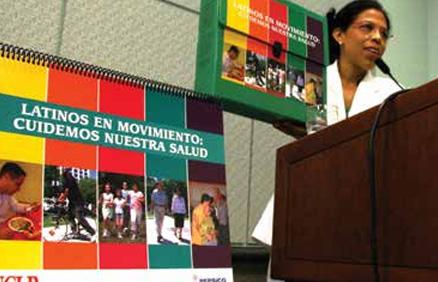
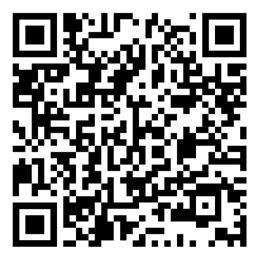
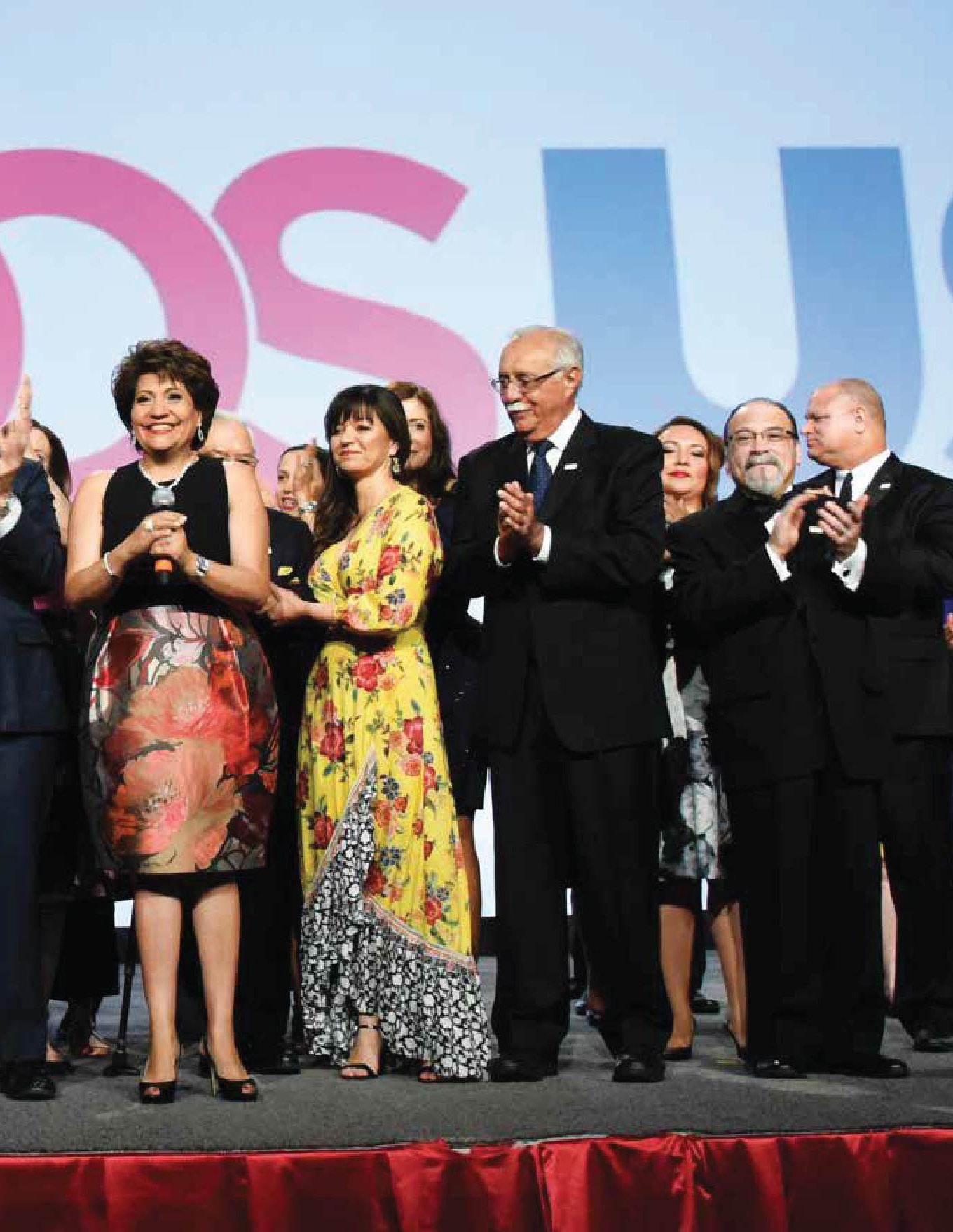

n the heart of every movement lies a message—a word, a feeling, a call to action. For UnidosUS, that word is unidos. More than a name, it’s a declaration of strength, unity, and resilience, an idea that has fueled the largest Latino civil rights and advocacy organization in the United States through decades of transformation.
Formerly known as the National Council of La Raza (NCLR), the organization’s 2017 rebrand to UnidosUS marked more than a strategic shift, it signaled a new era in Latino empowerment.
From La Raza to Unidos: A Legacy Reimagined
First established as the Southwest Council of La Raza in 1968 in Phoenix, Arizona. In 1972, the Southwest Council was renamed the National Council of La Raza, or NCLR, and moved operations to Washington, DC, to establish its national influence, where it served as a vital bridge between Latino communities and policy power.
For decades, National Council of La Raza or NCLR evoked cultural pride and collective identity, but by the 2010s, leadership recognized a need to modernize. In an increasingly diverse, younger, and multigenerational Latino population, the language of inclusion had to evolve.
In July 2017, with an eye on the future and reaffirming its commitment to unite all communities, NCLR changed its name to UnidosUS.
The name, unveiled after deep engagement with community leaders, partners, and grassroots voices, and it was a reflection of the core value that had always driven the organization: unity.
The power of the word unidos lies not just in its translation, but in its application. In the years since the rebrand, UnidosUS has led campaigns on immigration reform, equitable education, health access, and economic mobility. It has registered hundreds of thousands of new Latino voters, developed leadership pipelines for young professionals, and fought disinformation targeting Spanish-speaking communities.
The rebrand also helped broaden the organization’s reach. “UnidosUS” offered a more inclusive message, embracing all Latino identities—Afro-Latino, Indigenous, LGBTQ+, and the increasingly bilingual and bicultural reality of U.S. Latinos, multigenerational audiences that “La Raza” didn’t always fully reflect.
For La Revista Binacional’s cross-border readership, the meaning is profound. The term unidos speaks to the shared histories and futures between Latin America and the United States families connected across borders, businesses growing in two markets, and cultural narratives that transcend walls.
The UnidosUS brand is more than its name. Its visual identity—clean lines, bold fonts, and a red-orange color palette—was designed to reflect passion, urgency, and optimism. It communicates a message of modernity while honoring deep cultural roots. The tagline “Stronger Communities. Stronger America.” frames Latino progress not as a separate agenda, but central to the nation’s success.
The name change did not come without critique. Some long-time supporters feared losing the historical gravitas of La Raza. But in practice, UnidosUS has proven that honoring legacy doesn’t mean staying static. The organization continues to work with the same deep community focus—now with a name that speaks to both legacy and future.
At a time when polarization, misinformation, and economic disparities disproportionately affect Latinos in the U.S., the concept of unity is not just a value— it’s a strategy. UnidosUS understands this. Through storytelling, policy, and presence, the organization turns “unidos” from a word into a movement.
As our communities face new challenges—climate migration, digital equity, and generational shifts— UnidosUS stands at the intersection of culture and policy, advocacy and identity. Its rebranding didn’t dilute its purpose. It amplified it.
Kansas City is renowned for its rich jazz legacy, renowned barbecue heritage, and Midwestern charm. But interwoven into its vibrant culture is the powerful, often underappreciated story of the Latino community — a tale of perseverance, pride, and progress. From the first waves of migration to today’s rising leaders and tomorrow’s changemakers, Latinos have shaped and continue to shape the heartbeat of this city.
The Latino presence in Kansas City began taking root in the early 20th century, when Mexican immigrants arrived in search of work in the railroad, meatpacking, and agricultural industries. Many settled in neighborhoods like the West Side and Armourdale, building tight-knit communities that celebrated their traditions while navigating a new American life.
Churches, mutual aid societies, and small businesses became the pillars of these communities. Guadalupe Centers, established in 1919, stands today as one of the nation’s oldest Latino-serving organizations. Its founding was a response to the systemic barriers Latinos faced, and it became a beacon of education, culture, and advocacy.
Latino workers were instrumental in building Kansas City’s infrastructure. Despite facing discrimination and economic hardship, they held fast to their culture, from mariachi and folklórico to the annual fiestas that brought neighbors together. Their quiet, persistent efforts laid the groundwork for the vibrant community we see today.
Today, Latinos represent nearly 11% of Kansas City’s population, with growing influence in business, politics, education, and the arts. No longer are they just contributors behind the scenes, Latinos are now taking center stage.
Organizations like Mattie Rhodes Center, El Centro, and Hispanic Development Fund are empowering families, youth, and entrepreneurs to pursue education, civic engagement, and financial security. Latino-owned businesses are thriving — from taquerías and bakeries to tech startups and law firms. They don’t just serve their communities; they enrich the city as a whole.
Representation in local government and education boards has increased, with more Latino leaders pushing for equitable policy and inclusion. The annual Hispanic Heritage Month celebrations, cultural festivals, and youth leadership programs ensure that young Latinos see themselves reflected in their city’s story — and are inspired to write the next chapter.
The future of Latinos in Kansas City is bright — and deeply intertwined with the city’s own trajectory. As demographics shift and the Latino population continues to grow, so does the potential for lasting impact.
The next generation is bolder, more educated, and increasingly bilingual and bicultural. They carry the legacy of their ancestors with pride, but they’re also redefining what it means to be Latino in America. Whether they’re advocating for immigration reform, starting nonprofits, becoming the first in their families to graduate college, or running for office — they are Kansas City’s future leaders.
But the path forward isn’t without challenges. Access to affordable housing, healthcare, quality education, and equitable opportunities remains uneven. The Latino community — like all communities — must be met with policy, resources, and intentional inclusion to thrive.
Still, one thing is certain: Latinos are not just living in Kansas City — they are shaping it. Their pride is seen in murals, heard in music, tasted in cuisine, and felt in every corner of the city. From the past’s laborers and community builders, to today’s advocates and innovators, to the unstoppable youth leading tomorrow — Kansas City’s Latino story is one of resilience, cultural richness, and unshakable pride.
¡Adelante, Kansas City! The best is yet to come.
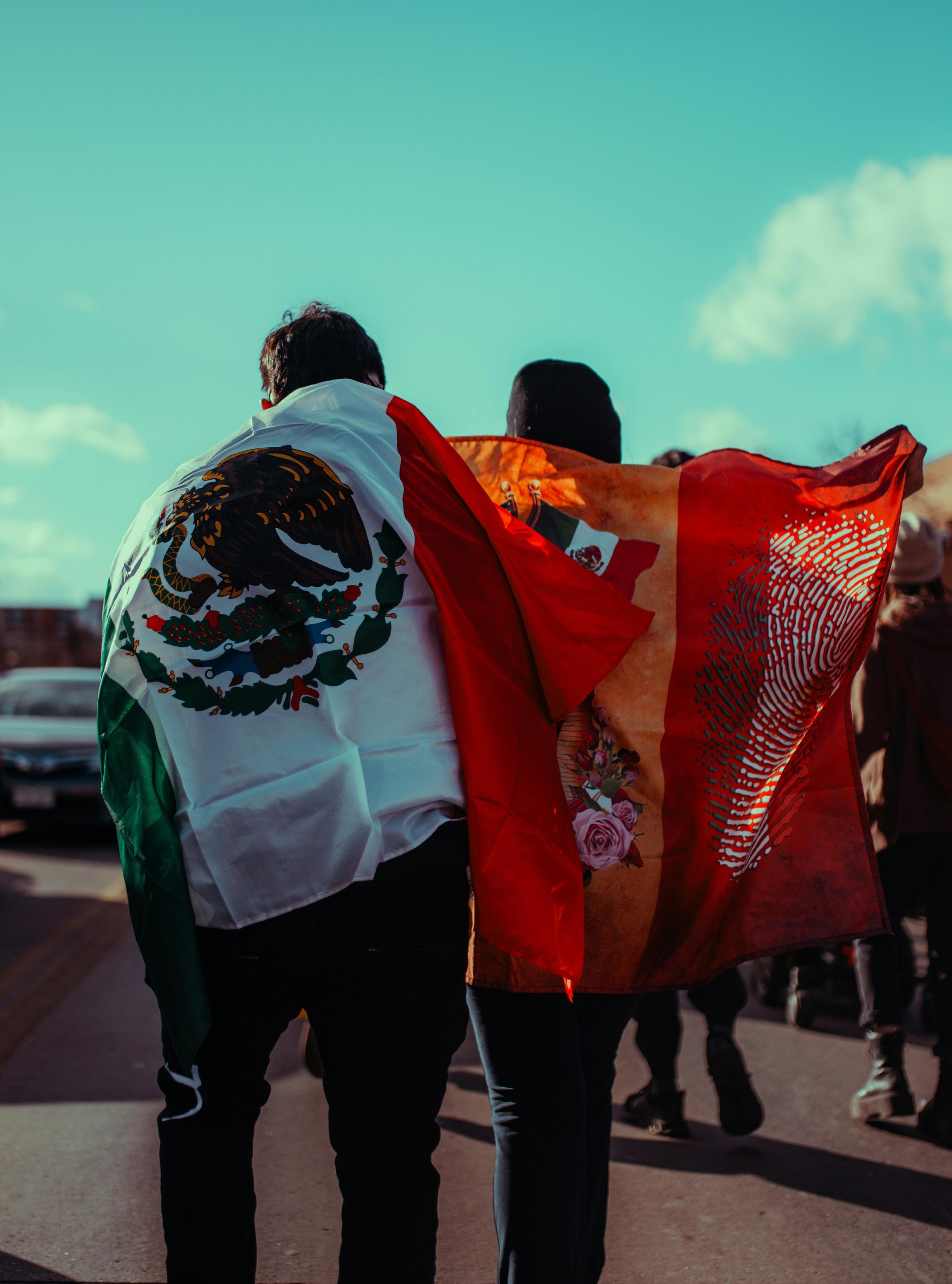

If you ask anyone who truly knows Kansas City’s Latino community, the name Murguía always comes up — and not just in passing. It comes up with pride, respect, and a sense of deep-rooted admiration. The Murguía family is woven into the very fabric of this city — from neighborhood organizing to national leadership, from grassroots activism to university corridors.
At the heart of it all is a powerful story of a Mexican-American family who never forgot where they came from, and who chose to serve rather than seek the spotlight. Janet Murguía — nationally recognized civil rights leader and the current CEO of UnidosUS — has brought national attention to our city. But to understand her, you have to understand them: her parents, siblings, and extended family, whose legacy is steeped in faith, education, and giving back.
The Murguía Roots Run Deep
Janet was born and raised in Kansas City, Kansas, in a working-class neighborhood not far from where many Latino families first planted roots generations ago. Her parents, Alfred and Amalia Murguía, were quiet trailblazers in their own right. Alfred worked as a rail yard worker for Santa Fe for decades — a job that represented security and dignity for so many Mexican-American families. Amalia, a stay-at-home mother, raised their seven children with values that shaped them all: faith, humility, and service.
And the Murguías didn’t just preach those values — they lived them.
While Janet became the most publicly known figure in the family — serving as legislative counsel on Congress, a White House aide under President Clinton and leading the largest Latino civil rights organization in the country — she’s always been quick to point out that leadership runs in her blood. Her siblings are equally impressive: Carlos Murguía made history as the first Latino federal judge in Kansas,
and twin sister Mary Murguía is now the Chief Judge on the U.S. Court of Appeals for the Ninth Circuit. Think about that: three siblings from a modest home in Kansas City, all rising to serve their communities in extraordinary ways.
But it was never about titles. It was always about impact.
Kansas City Nonprofits: Where It All Started
Long before Janet took the national stage, she was involved in community efforts right here in Kansas City. I remember hearing stories about how she volunteered with youth leadership programs, voter registration drives, and neighborhood cleanup efforts. Even today, she supports local nonprofits with quiet consistency — mentoring young leaders, showing up to events when no cameras are present, and reminding people that this city raised her.
Her family, too, remains actively involved in local causes — from supporting scholarships for first-generation Latino students to lending their names to initiatives that bridge education, equity, and opportunity.
The University of Kansas — or simply KU, as we all lovingly call it — has always been part of the Murguía journey. Several members of the family are proud alumni. Janet herself earned both her bachelor’s and law degrees from KU. She often speaks about how KU opened doors and sharpened her awareness of systemic issues affecting communities of color.
But the connection didn’t end with a diploma. The Murguías have remained close to the university through advisory roles, campus speaking engagements, and mentoring programs. Janet has often returned to speak to students about public service and leadership, reminding them that big dreams can be nurtured right here in the Midwest.
The Murguía family has always understood that giving back isn’t just about writing checks. It’s about showing up. It’s about caring. Whether through supporting health clinics, education access, or cultural initiatives that honor Latino heritage, their philanthropy has always been personal — not performative.
In fact, much of their giving is done without announcements or big galas. It’s done with humility. That’s what makes it so impactful.
Kansas City is proud of the Murguías not just because they’ve “made it” but because they’ve never left us. Even if physically they’ve moved into national leadership roles, their spirit, influence, and love for this community have never wavered.
In many ways, the Murguía legacy is still being written. It’s in the student who wins a scholarship made possible by their efforts. It’s in the young Latina who sees someone who looks like her in a position of power and dares to dream. It’s in the neighborhoods they still support, the churches they still attend, and the nonprofits they still quietly champion.
Kansas City is lucky. Not just because the Murguías came from here, but because they never stopped giving back.
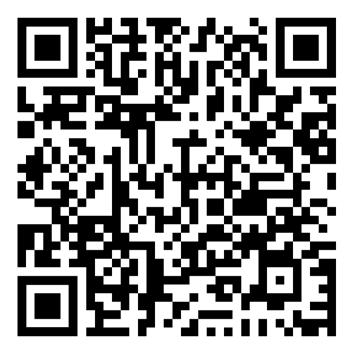
En Kansas City, Missouri—a city known for its jazz, barbecue, and deep Midwestern roots—is also home to a growing network of Latinoled and Latino-serving nonprofits that are quietly shaping the future of the community. These organizations work hand in hand with UnidosUS, the nation’s largest Latino civil rights and advocacy organization, to improve lives through education, health, housing, immigration support, and civic empowerment. Together, they form a powerful ecosystem of local action and national influence.
In a time when national movements are only as strong as their grassroots, Kansas City’s local partners are a testament to what’s possible when vision, leadership, and community come together.
UnidosUS has always operated with the understanding that change must be community-driven. While the organization develops national policy and leads strategic initiatives, it relies on its Affiliate Network— nearly 300 community-based organizations across the country—to implement programs on the ground.

In Kansas City, that vision is alive through partnerships with several institutions deeply embedded in the local landscape. These nonprofits serve as a bridge between UnidosUS and the Latino families who benefit from its mission. More than collaborators, they are cocreators of impact.
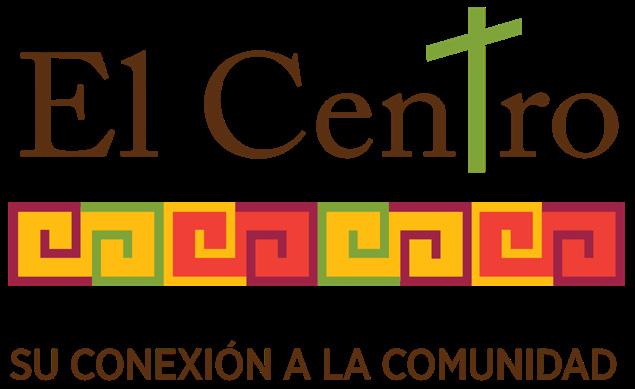
One of UnidosUS’s longstanding Kansas City partners is El Centro, Inc., a pillar of the Latino community in Wyandotte and Johnson counties for nearly five decades. Founded in 1976 to serve newly arrived Mexican immigrants, El Centro has evolved into a comprehensive service provider focused on advocacy, education, financial literacy, and health.
From early childhood education programs like the Guadalupe Centers Head Start to free tax preparation, voter registration, and housing counseling, El Centro’s holistic approach has made it a trusted resource for thousands of families.
Through its affiliation with UnidosUS, El Centro gains access to national campaigns, funding opportunities, and legislative advocacy tools. For example, its participation in UnidosUS’s Home Ownership Network has helped hundreds of Latino families in the region navigate first-time home buying—a critical step toward economic stability and generational wealth.
Guadalupe Centers: A Legacy of Latino Service
Founded in 1919, Guadalupe Centers holds the distinction of being one of the oldest Latino-serving organizations in the United States. What began as a settlement house for Mexican immigrants has grown into a multiservice organization offering K–12 education, senior care, youth programming, housing, and workforce development.
Guadalupe Centers is not only an Affiliate of UnidosUS—it is a cultural and educational cornerstone of Kansas City’s Westside Latino community. Its charter schools serve over 1,500 students annually, many of whom are first-generation Americans.
By aligning with UnidosUS, Guadalupe Centers expands its reach and capacity, benefiting from professional development for educators, research-based curricula, and policy resources. In recent years, the organization has also collaborated with UnidosUS on youth civic engagement and digital learning equity— issues that directly affect the students and families it serves.
While not exclusively Latino-focused, the Mattie Rhodes Center has long been a critical ally in the work of cultural preservation, mental health support, and youth development in the Latino community. With a strong emphasis on bilingual behavioral health services and culturally competent family support, Mattie Rhodes offers a vital safety net for those navigating trauma, poverty, and systemic barriers.
As part of the UnidosUS Affiliate Network, the center plays a role in health equity and wellness campaigns, including vaccination outreach, nutrition education, and mental health destigmatization. Its integration of art and culture—through gallery exhibits, murals, and workshops—makes it a unique partner that elevates Latino identity and community pride.
Kansas City’s educational institutions are also stepping up. The University of Missouri–Kansas City (UMKC) and Avila University have collaborated with local UnidosUS Affiliates to offer scholarship programs, mentorship, and academic support for Latino students.
UMKC, in particular, has worked closely with El Centro and Guadalupe Centers to improve college access for Latino youth. By helping students navigate admissions, financial aid, and first-year success, these partnerships contribute to a stronger, more inclusive pipeline of future leaders.
What makes Kansas City’s nonprofit ecosystem so effective is its spirit of collaboration. These organizations are not operating in silos— they are in constant communication, sharing resources, strategies, and stories. UnidosUS serves as a national amplifier, elevating the local victories of these nonprofits into policy recommendations and best practices.
This collaboration came to life during UnidosUS’s Annual Conference in 2023, when several Kansas City leaders participated in panels discussing affordable housing, immigrant rights, and youth leadership. Their voices added urgency and authenticity to national conversations—proof that local stories have the power to drive national change.
As the Latino population in Kansas City continues to grow, so does the need for culturally responsive services, education equity, and political representation. UnidosUS and its local partners are ready. With deep roots and a shared mission, they are building stronger communities, one family, one student, and one neighborhood at a time.
Whether it’s a child stepping into a classroom at Guadalupe Centers, a family purchasing their first home with help from El Centro, or a teen getting mental health support at Mattie Rhodes, the ripple effects are profound.
Together, Kansas City’s nonprofits and UnidosUS are proving that when national vision meets local commitment, real transformation happens—and it lasts.
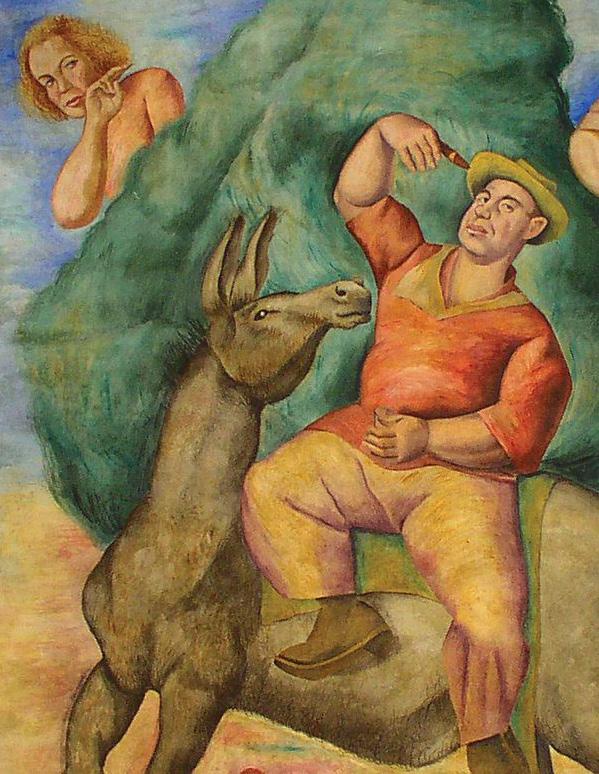


By La Revista Binacional
When people think of Kansas City, they often talk about jazz, barbecue, and football. But for me— and for so many of us—the soul of this city is also written in Spanish, painted in bold colors, sung with a mariachi cry, and wrapped in a fresh tortilla. The Latino presence here is not just strong—it’s creative, expressive, and full of heart.
I’ve watched the Latino arts and culture scene blossom on both sides of the state line, but especially in Kansas City, Missouri. It’s in the murals that brighten forgotten corners, in the rhythms that echo through community festivals, and in the flavors that bring us together around a shared table.
Latino murals in Kansas City aren’t just pretty— they’re powerful. They tell our stories. They remind us that we are here, we’ve been here, and we’re not going anywhere. On the West Side and in surrounding neighborhoods, you’ll find stunning work by artists like Isaac Tapia and Rodrigo “Rico” Alvarez, the duo behind ITRA. They’re not just creating art—they’re reclaiming space for our stories, for our families, for our culture.
Rodrigo once said, “Money right now could be the factor that’s making these kids run for the hills.” He’s right. But what he and Isaac are doing is showing the next generation that you can make a living—and a life—through your art, your heritage, and your voice.
Then there’s Juan Moya, who gave new life to the Cesar Chavez mural on the West Side. I’ll never forget what he said about his work: “If it inspires someone to smile for the day or to feel pride in their culture… that’s a win.” That’s exactly it. These murals are wins for our whole community.
Music has always been our heartbeat. While KC is known for jazz, you can feel the rise of Latino music pulsing through neighborhoods, festivals, and family celebrations. Whether it’s the soul-stirring strum of mariachi, the groove of cumbia, or the new wave of Latin fusion, music brings us together. It celebrates our roots while keeping us moving forward.
You hear it at Fiesta Hispana, the Chicano Arts Festival, and even at private gatherings in someone’s backyard. I remember attending a vigil where a mariachi band played not out of performance, but from love and respect. That moment reminded me—music is how we heal, how we honor, and how we hold each other close.

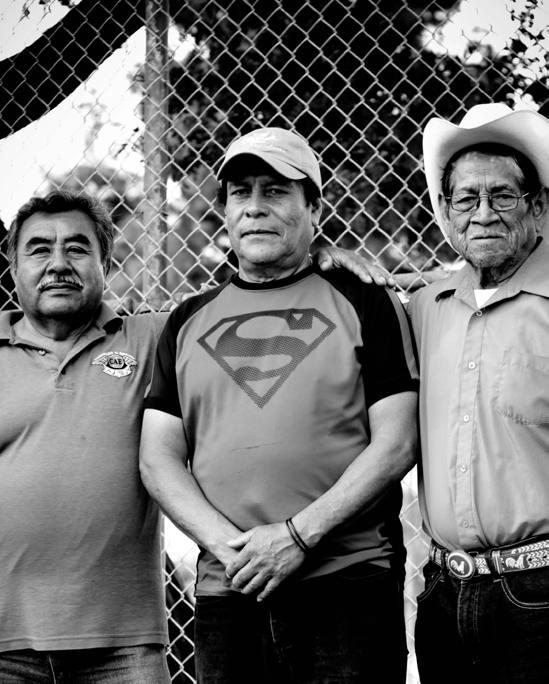
Now let’s talk food. If you haven’t explored the taco spots in Kansas City, you’re missing out on a whole world of culture. I’m not just talking about tacos—I’m talking about family-owned taquerías, panaderías, and tortillerías where recipes have been passed down through generations. Food is how we tell our stories. It’s how we say “bienvenidos.”
El Pollo Rey, El Fogón, La Fonda El Taquito, Yoli Tortilleria—these places are more than restaurants. They are gathering places, where generations connect and traditions stay alive. Yoli even won a James Beard Award, but many of us knew it was special long before the national spotlight found them.
Local Latinos remember the smell of tortillas wafting down Southwest Boulevard. That smell? That was home.
What we’re experiencing in Kansas City is more than just art or food—it’s a cultural renaissance. And it’s being led by our community. The Latino Arts Foundation in KCK, Café Corazón on the Missouri side, and dozens of independent artists, musicians, and chefs are all shaping a Kansas City that’s more vibrant, inclusive, and honest.
There’s something so powerful about seeing our stories reflected in galleries like the Nelson-Atkins Museum or in public spaces. We’re not being hidden—we’re being highlighted. And that matters, especially for the next generation watching all of this unfold.
Latino culture in Kansas City is full of color, rhythm, flavor, and soul. We don’t just show up—we bring life with us. We paint our stories. We sing our struggles. We cook our memories. And through it all, we stay rooted in community, familia, and purpose.
Kansas City has always had heart. But when you add Latino culture into the mix, that heart beats stronger, louder, and with a lot more sabor.
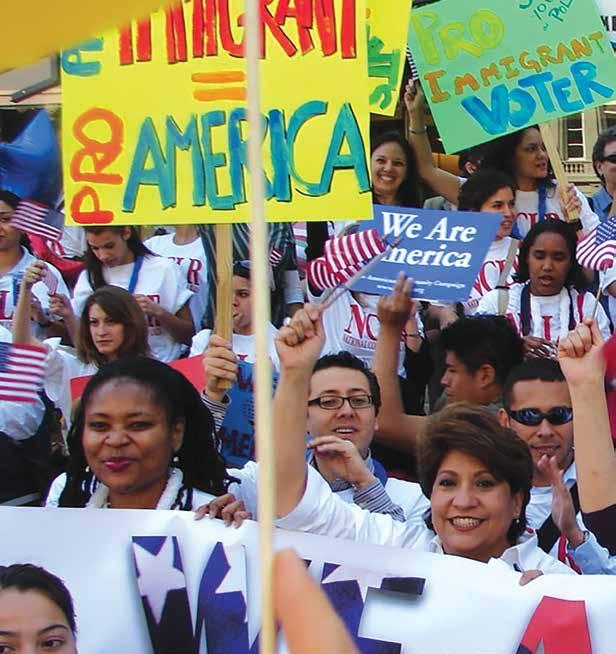
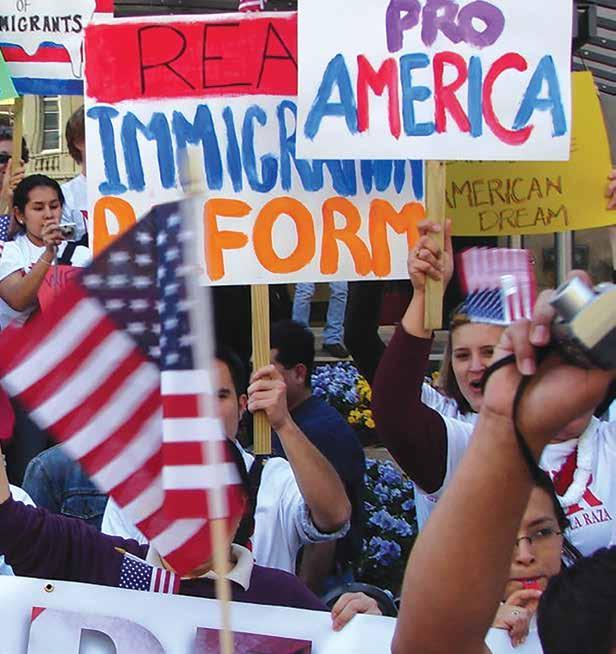

Uniting Communities, Empowering Change
Since the founding Affiliates created the former National Council of La Raza (NCLR), now UNIDOS US, in 1968 it has cultivated one of the most impactful and expansive Latino nonprofit Affiliate networks in the United States. Rooted in a commitment to equity, inclusion, and community, the organization has partnered with these community-based Affiliates across the country—from small grassroots initiatives to large, well-established institutions—to amplify Latino voices in civil rights, education, health, housing, economic empowerment, and immigration advocacy.
From the beginning, UnidosUS was grounded in local, community-based work—starting as a regional organization committed to strengthening Latino communities on the ground. Over time, the organization recognized that real impact would come not only from this grassroots work, but also from influencing national policy. This led to the strategic development of a national Affiliate Network—a bold and visionary move that enabled the organization to build trusted relationships with local leaders and groups already embedded in the daily lives of the people they serve.
Under Janet Murguía’s leadership, engagement with and support of the Affiliate Network has been a top priority. She began her tenure with a national listening tour to hear directly from Affiliates—recognizing their power, leadership, and the unique needs of their communities. Her unwavering commitment to partnership, accountability, and mutual growth has helped strengthen and elevate the network, which now includes more than 300 community-based organizations across 39 states, Washington, D.C., and Puerto Rico.
UNIDOS US Affiliates are independent, nonprofit, Latino-led and Latino-serving organizations. What makes the network unique is that it is a partnership model based on shared values and collaborative work.
Affiliates gain access to technical assistance, capacity-building programs, policy insights, funding opportunities, and national platforms to elevate their voices. In turn, UNIDOS US is grounded and guided by the lived experiences, knowledge and leadership of Affiliates working on the front lines of their communities. Together, they form a powerful partnership advancing shared goals for Latino communities nationwide.
Key pillars of the network include:
Affiliate Council: This advisory group includes representatives from across the six regions of the Affiliate Network. They help shape UNIDOS US’s priorities and ensure local needs inform UnidosUS’s national strategy.
Capacity Building and Training: Through workshops, conferences, and tailored support, affiliates grow stronger and more sustainable.
Shared Campaigns: From voter engagement to health equity, UNIDOS US and its affiliates launch joint initiatives that generate nationwide impact.
Recognition and Visibility: The annual UnidosUS Affiliate of the Year Award and other acknowledgments spotlight affiliate achievements and innovations. UnidosUS also elevates the expertise, leadership, and voices of Affiliates year-round through its communications channels and national platforms.
One of the most powerful elements of the affiliate model is its multigenerational impact. Many affiliates serve entire families— offering early childhood education, afterschool programs, workforce training, and elder care under the same organizational roof. The network’s holistic approach ensures that no one is left behind, and that every generation of Latinos is empowered to succeed.
The Affiliates reflect the evolving diversity of the Latino communities they serve — allowing UnidosUS to advance inclusive and culturally relevant work in which all Latinos can see themselves.
Because of its affiliate model, UNIDOS US is never disconnected from the realities Latinos face every day. When it fights for better education funding, healthcare access, or immigration reform, it does so with data, stories, and leadership from its affiliate network.
In times of crisis—such as the COVID-19 pandemic—UNIDOS US and its affiliates became lifelines for millions. The network’s agility, trust, and reach meant food distribution, vaccine education, rental assistance, and mental health services could be mobilized quickly and effectively.
This responsiveness has made the network not just a vehicle for service delivery, but a national force for change.
As UNIDOS US enters its next chapter, the Affiliate network remains its beating heart. This new chapter in our partnership is focused on systems change and building the power of the Latino community. That means ensuring the UnidosUS Affiliate Network is strong and impactful—positioned to drive change not only at the local level, but across regional and national landscapes as well.
“Power begins in our communities,” Janet Murguía has said.
“When we uplift one, we uplift all.”


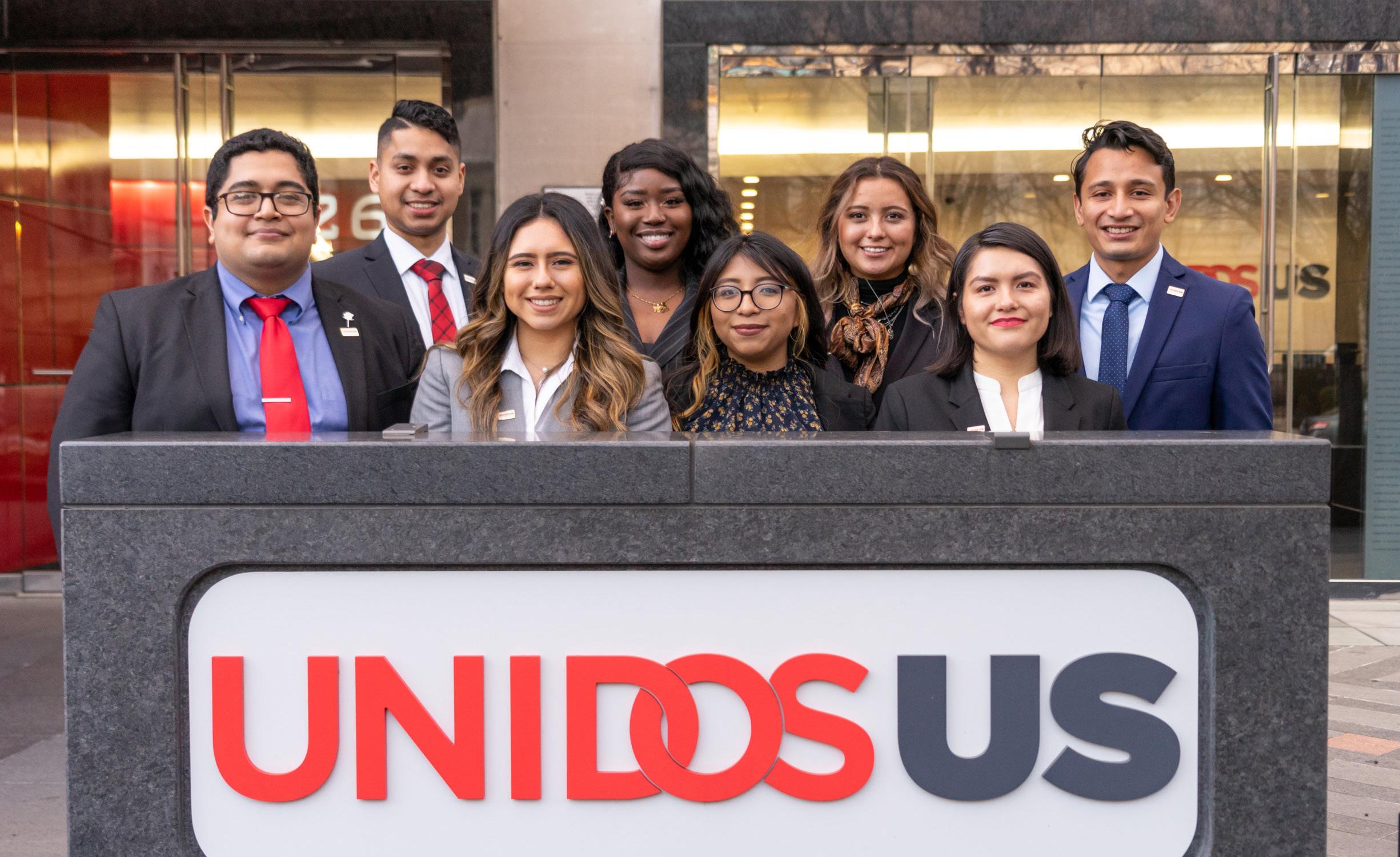
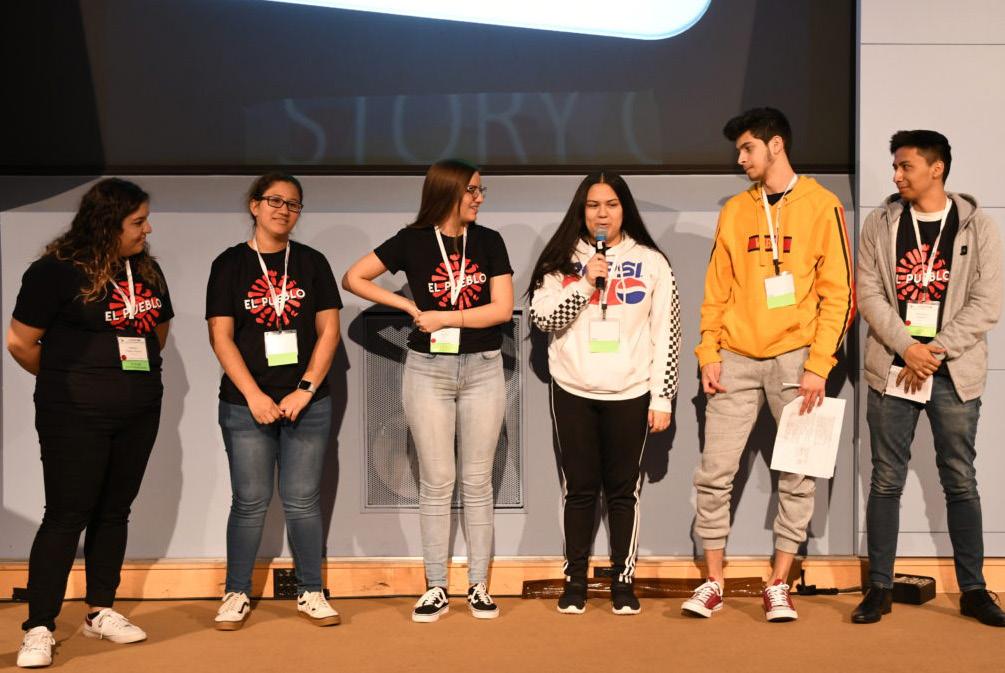

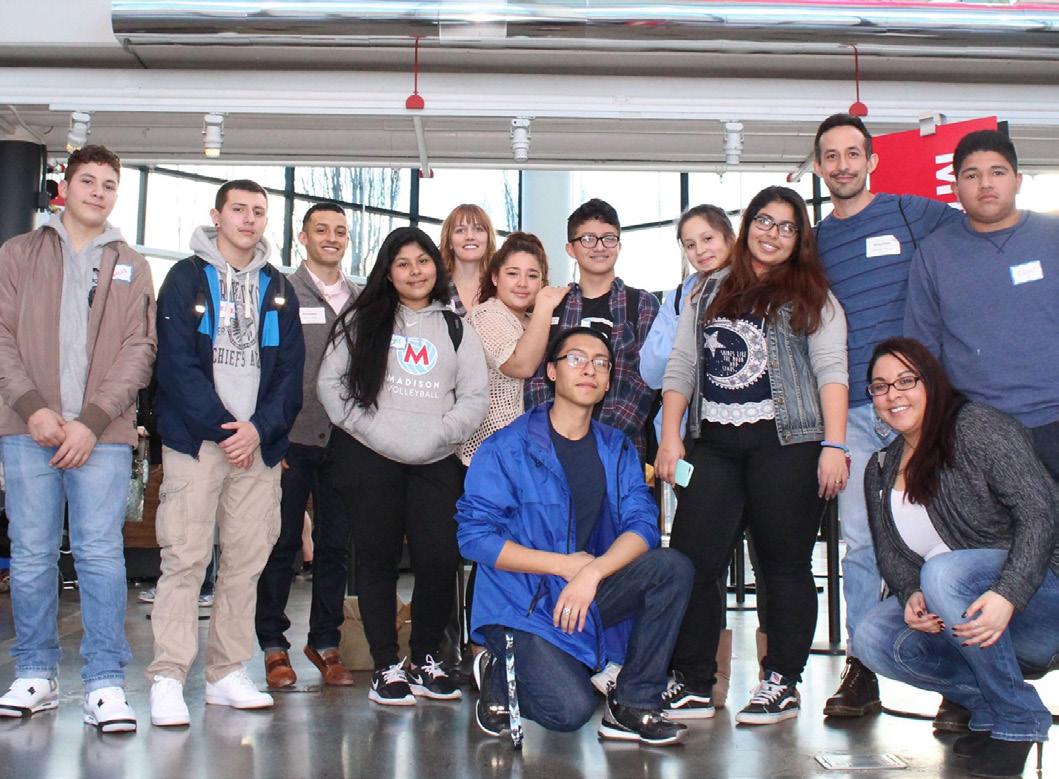
In the vibrant fabric of Latino advocacy, one thread shines with particular promise—youth. UnidosUS, the nation’s largest Latino civil rights and advocacy organization, has long recognized that young people are not only the leaders of tomorrow but the changemakers of today. Through its growing network of programs, fellowships, and events, UnidosUS provides opportunities for young leaders and early career advocates to gain the tools, platforms, and inspiration to shape the future of their communities and this country.
Since its founding in 1968, UnidosUS (formerly the National Council of La Raza) has championed the rights and well-being of Latinos across the U.S. Over the decades, it has consistently understood that investing in youth is investing in the movement’s sustainability. Young people bring fresh perspectives, passion, and urgency to the issues that are affecting them and their futures .
The Avanzando to Success and Avanzando through College programs support students so they can successfully transition from postsecondary life into the workforce.
Ten years ago, UnidosUS launched Avanzando through College, a program that works with both UnidosUS Affiliates and higher education institutions to equip students with the skills and support systems needed to ultimately graduate college.
“Avanzando through College helped me in so many different ways, so I’m not alone in this journey. I felt so unseen and thought I was the only one until we started the meetings,” said one student of the program. “Hearing from mentors and other peers’ similar stories and experiences made college feel more relatable and achievable. I felt seen, understood, and inspired to keep going.” Then just last year, UnidosUS launched Avanzando to Success to empower students and their successful entry into careers and to serve as agents of change. In its pilot year, Avanzando to Success supported more than 300 students across eight states.
“One lesson I learned was the vital importance of belonging and community in motivating me to achieve goals, especially in spaces where I am not demographically or authentically represented. Another lesson I learned was that your culture and identity can also be beneficial resources for facing challenges and balacing motivation, as turning to your community and culture within offers and strengthens resilience.”
Another student said, “Avanzando showed me that I can aspire for more in life. It’s hard for me to dream about a life without poverty and with education, but Avanzando changed my mindset. It gave me the power to envision a brighter future.”
UnidosUS also brings young people into direct conversation with policymakers and community leaders. Events like the Youth Roundtable hosted by UnidosUS President and CEO Janet Murguía allow high school and college students to discuss pressing concerns—from immigration to education and mental health.
In 2020, UnidosUS held the virtual event “Empowering Youth Advocates,” where fellows and alumni of youth programs shared personal stories and strategies for civic action in the midst of a national reckoning on racial justice and public health. Participants were joined by influencers and UnidosUS staff who encouraged youth to claim their power through voting, organizing, and storytelling.
These conversations are not staged performances—they are authentic dialogues in which youth are heard, respected, and elevated.
Another vital component of youth engagement is the annual Changemakers Summit, which brings together emerging leaders as well as seasoned advocates for immersive experiences in advocacy, community-building, and public speaking. For many, it is their first time in a policy setting or engaging with elected officials. The impact is lasting.
Emelly, a student from Chula Vista, California, participated in a recent summit and spoke about her family’s struggle with affordable housing. She left the event energized and affirmed: “I realized my experience wasn’t just a personal struggle—it was a voice for others going through the same thing. And that voice deserves to be heard.”
These young leaders are not just learning policy; they are humanizing it. Their stories breathe life into statistics, transforming issues into action.
UnidosUS also produces research reports that highlight the experiences and needs of Latino youth. Topics such as mental health, school equity, and the digital divide are often informed by the lived experiences of young people within the network.
These reports not only guide UnidosUS’s policy agenda but also validate youth concerns in a way that policymakers and the public cannot ignore. By grounding research in real stories, UnidosUS ensures that youth advocacy is not abstract—it’s urgent, concrete, and essential.
The inclusion of youth voices in the national Latino movement is not symbolic—it is strategic. As the fastest-growing demographic in the U.S., Latino youth represent a powerful constituency. Their lived experiences—often at the intersection of immigration, economic hardship, and cultural resilience—offer critical insights into what justice and equity must look like in the 21st century.
By investing in these voices now, UnidosUS is building a legacy that will resonate for generations. These young advocates are not waiting for permission to lead; they are already doing it—with courage, creativity, and conviction.
As Janet Murguía has said, “We don’t just want to open doors for young people. We want to give them the keys.”
And the youth of UnidosUS are unlocking a future defined not by barriers, but by bold possibilities.
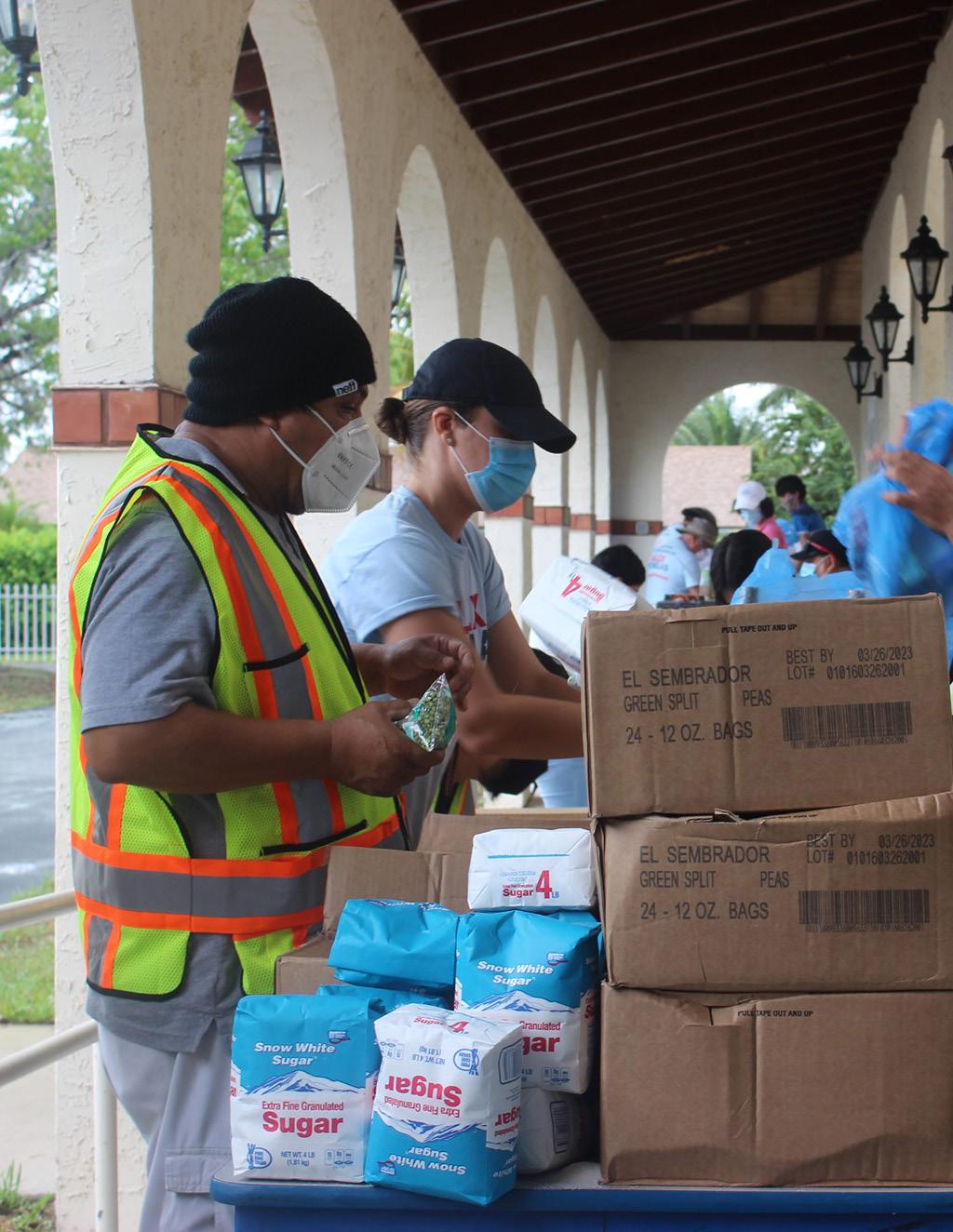

Nonprofit organizations are often perceived as community helpers—delivering food, education, healthcare, and services to those in need. But behind the scenes, many nonprofits also serve a powerful and often under-recognized role: shaping public policy and legislative agendas that directly impact the communities they serve. For UnidosUS and its nationwide network of Latino-led organizations, advocacy is not a side mission—it’s at the heart of systemic change.
Over the past two decades, UnidosUS has not only responded to community needs but has also helped lead national movements on issues ranging from immigration reform and educational equity to healthcare access and voting rights. This dual role—service provider and policy advocate—has allowed UnidosUS and its affiliates to serve as a bridge between grassroots realities and federal decision-making.
Unlike traditional lobbying groups, nonprofits advocate based on lived experience and community-rooted expertise. Their insights are grounded in data, service outcomes, and direct engagement with the very people affected by policy decisions. This authentic voice carries weight on Capitol Hill, state legislatures, and city councils. When UnidosUS testifies before Congress or meets with the White House, it brings not only a policy proposal—but also the voice of millions of Latino families.
Through coalition building, research, and direct advocacy, nonprofits like UnidosUS amplify the stories that matter. Whether pushing for the expansion of the Child Tax Credit, protections for DACA recipients, or investments in Latinoserving schools, these organizations ensure that the legislative agenda reflects the realities of the people—not just the priorities of power.
Importantly, the nonprofit sector also cultivates new civic leaders. Through leadership development, voter engagement campaigns, and youth empowerment programs, nonprofits help shape not just laws, but the future lawmakers, advocates, and organizers who will carry the torch forward.
In 2025, as UnidosUS celebrates 20 years under the leadership of Janet Murguía, the legacy is clear: advocacy is action. This model of community-powered policymaking has reshaped the way Latino issues are viewed at the national level. It has demonstrated that when nonprofits are well-resourced, deeply rooted, and unapologetically vocal, they can change not only narratives—but laws.
As we look ahead, the need for strong nonprofit voices in policymaking is more urgent than ever. With rising inequality, shifting demographics, and increased political polarization, nonprofits remain among the most trusted and connected institutions in communities across the country. They are uniquely positioned to ensure that the legislative agenda serves justice, equity, and opportunity.
Nonprofits do more than serve. They lead. They listen. And they legislate—by turning the power of community into the power to influence. That is how change happens. And that is how UnidosUS, together with its affiliates, continues to shape a better future for all.



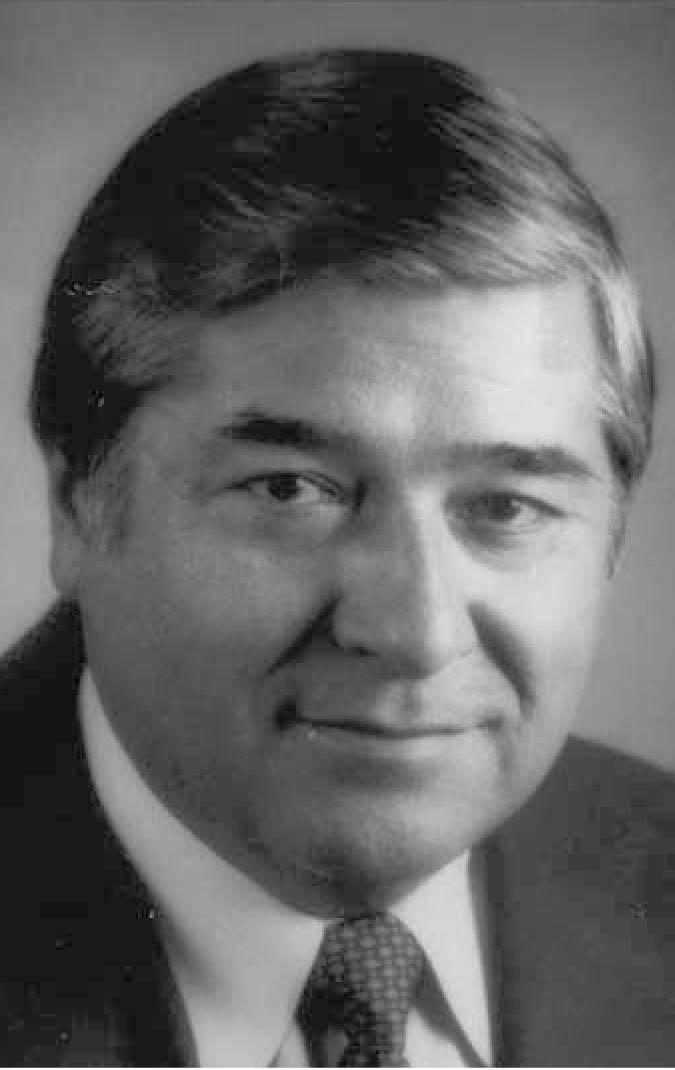
1968–1969: Herman Gallegos
First Executive Director
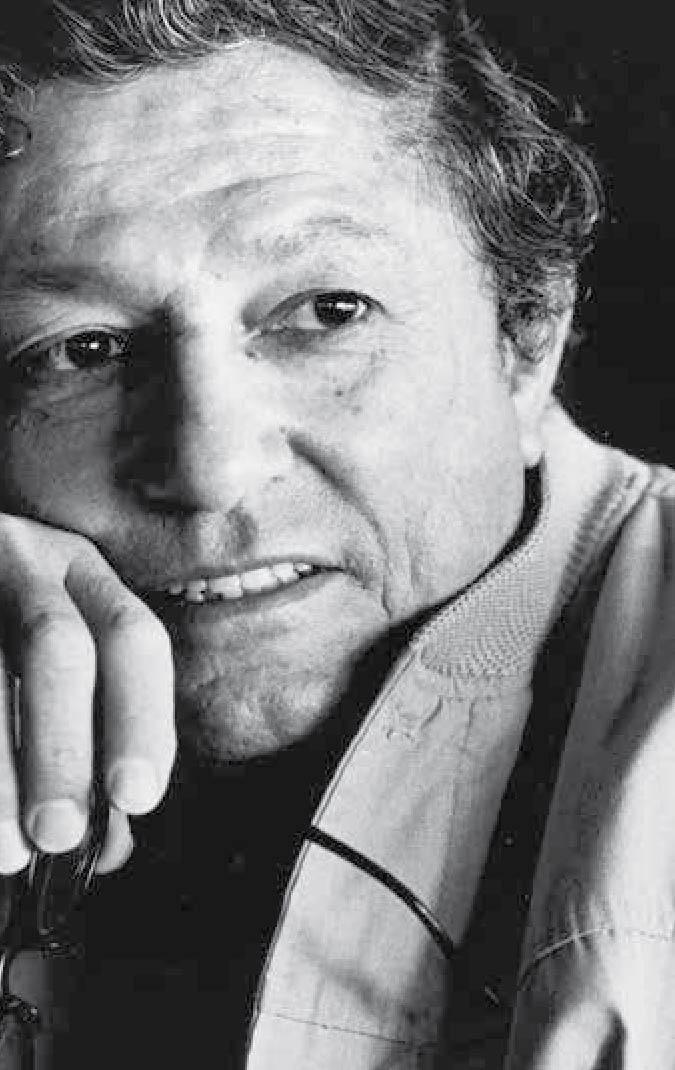
1969–1974: Henry Santiestevan Executive Director
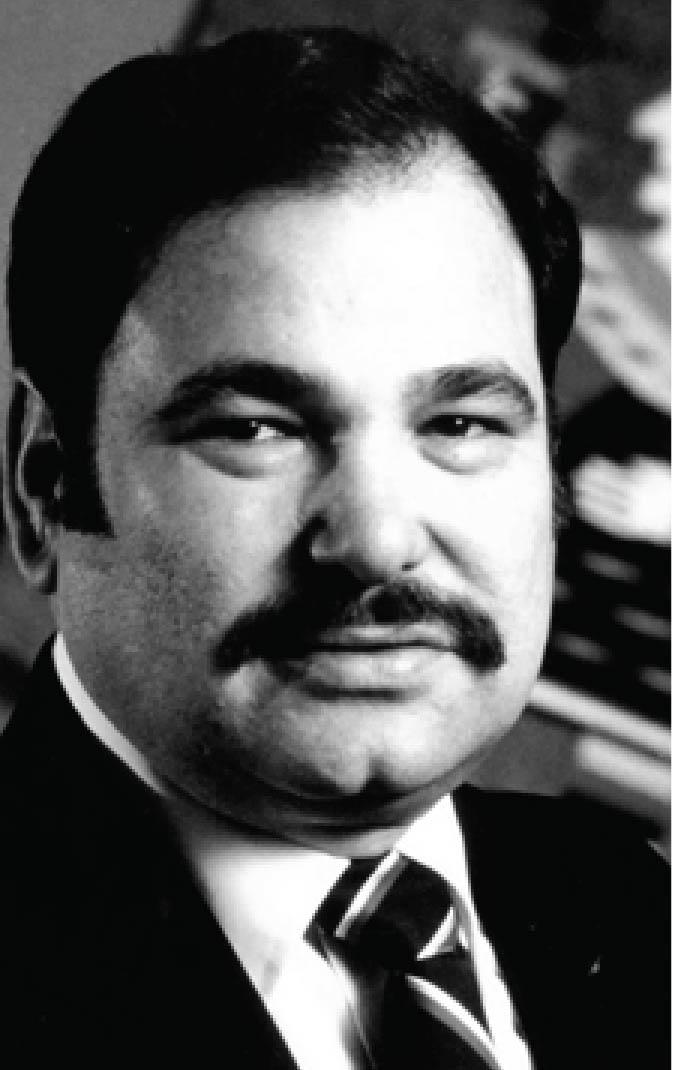
1974–2004: Raúl Yzaguirre
First official President & CEO
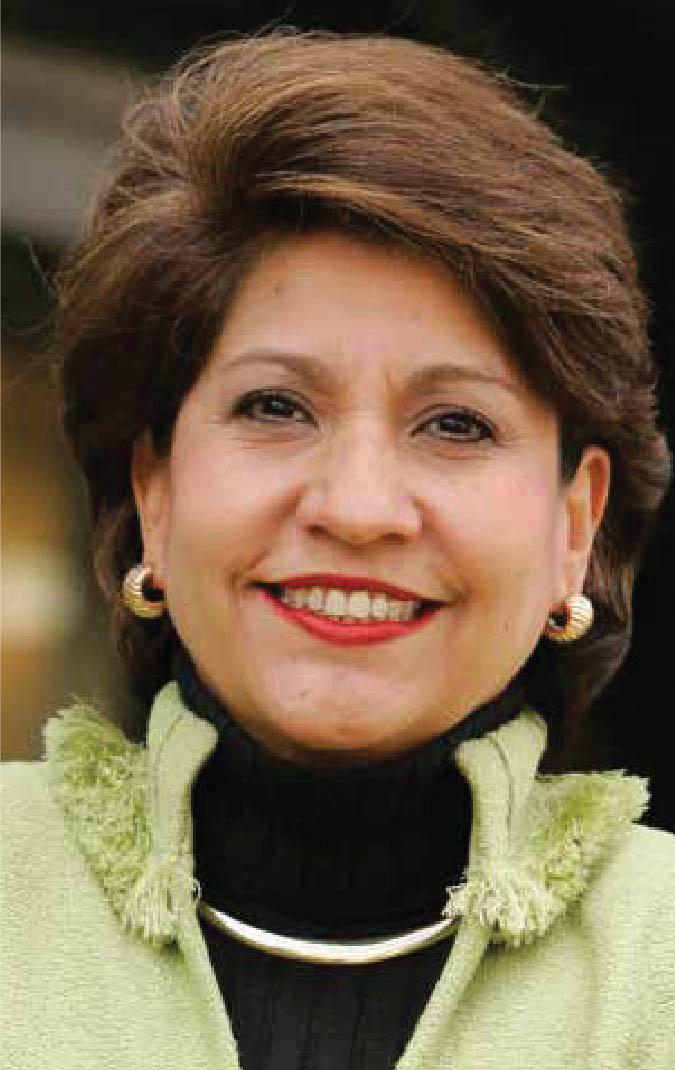
2004-Present: Janet Murguia President & CEO
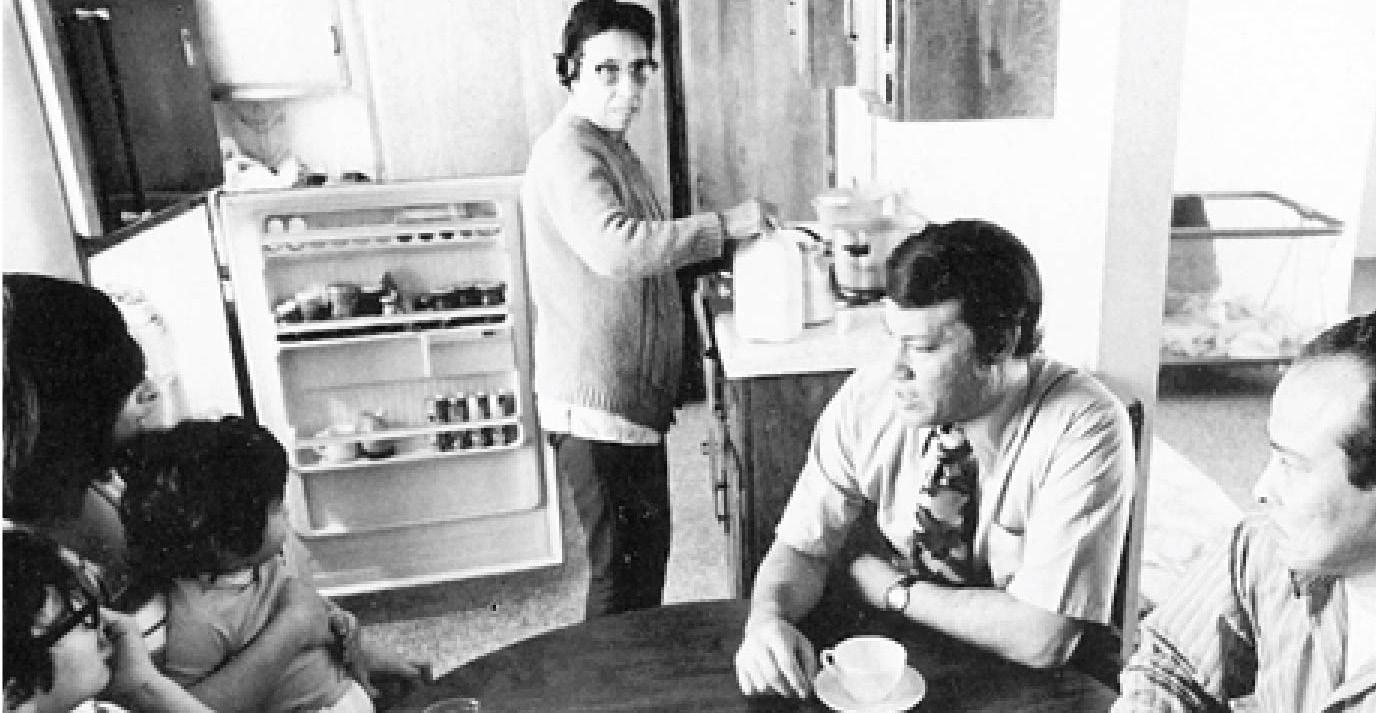
By highlighting resilience, leadership, and vision, La Revista Binacional is proud to present a tribute to the transformative power of community-based organizations. In this chapter, we spotlight the original seven founding affiliates of UnidosUS, whose legacy of grassroots empowerment continues to shape the Latino experience across the United States and the lasting community impact.
In the midst of the American civil rights movement, Mexican American activists recognized the need for an institution around which Mexican Americans could rally and organize. With the aim of bringing Mexican American groups together into a single unified front, Herman Gallegos, Dr. Julian Samora, and Dr. Ernesto Galarza established the Southwest Council of La Raza in 1968 in Phoenix, Arizona. The founders remained integral to the organization’s success for decades after.
Seven local groups formed the original network of Affiliates.
Since its founding, UnidosUS has worked hand-in-hand with local organizations that know their communities best. These partnerships are more than collaborations—they are lifelines of trust, shared culture, and advocacy.
Each of the seven founding affiliates represents a powerful story of advocacy born from necesity and courage:
1. Chicanos Por La Causa (CPLC) – Born in Arizona, CPLC began as a civil rights and anti-poverty movement. Today, it operates across multiple states, delivering programs in education, housing, health, and economic development that empower tens of thousands of families annually.
2. OBECA / Arriba Juntos – Serving San Francisco’s immigrant and low-income communities, Arriba Juntos provides comprehensive workforce development, housing support, and social services, ensuring that people not only survive—but thrive.
3. Mission Development Council (MDC) – Based in San Antonio, MDC emerged to revitalize struggling neighborhoods through affordable housing, job creation, and family-centered community development.
4. Spanish-Speaking Unity Council (SSUC) – Now known as The Unity Council, this Oakland-based organization pioneered a holistic approach to economic and social empowerment for Latino, Indigenous, and immigrant communities.
5. Mexican American Unity Council (MAUC) – From its roots in civil rights organizing in San Antonio, MAUC evolved into a dynamic force for education, housing, and youth development in Latino communities.
6. The East Los Angeles Community Union (TELACU) – In East L.A., TELACU transformed economic development into a tool for empowerment, creating community-owned businesses and investments in leadership and education.
7. Mexican American Community Programs Foundation – This foundation laid essential groundwork for early educational and social service initiatives benefiting underserved Latino families.

What makes the UnidosUS model unique is its unwavering belief in grassroots leadership. The organization doesn’t just advocate from Washington, D.C.—it listens to and elevates voices from neighborhoods across the country. With over 300 communitybased Affiliates, UnidosUS continues to promote culturally responsive solutions in education, health, housing, and civil rights. For UnidosUS, these affiliates are not simply partners—they are part of a familia working toward a shared mission: an America where everyone, regardless of zip code or background, has the opportunity to thrive.
A standout story is Matilde Pantoja, who overcame language barriers and poverty. Through Canal Alliance’s ESL, legal support, and workforce programs, she earned U.S. citizenship in 2018 and became a homeowner—recounting, “Our family is now secure.”

As a publication dedicated to uplifting voices on both sides of the U.S.–Mexico border, La Revista Binacional recognizes the transnational ties that bind our communities. The story of UnidosUS and its founding affiliates reflects a binational spirit—a deep understanding that struggles for justice, equity, and dignity do not stop at geographic borders.
These original affiliates planted seeds of change in their neighborhoods, and over time, helped cultivate a national movement.
As we look to the future, we celebrate these enduring legacies and the continued evolution of Latino leadership. UnidosUS and its affiliates stand as powerful reminders that lasting change begins from the ground up, in the hearts, hands, and hopes of the people.
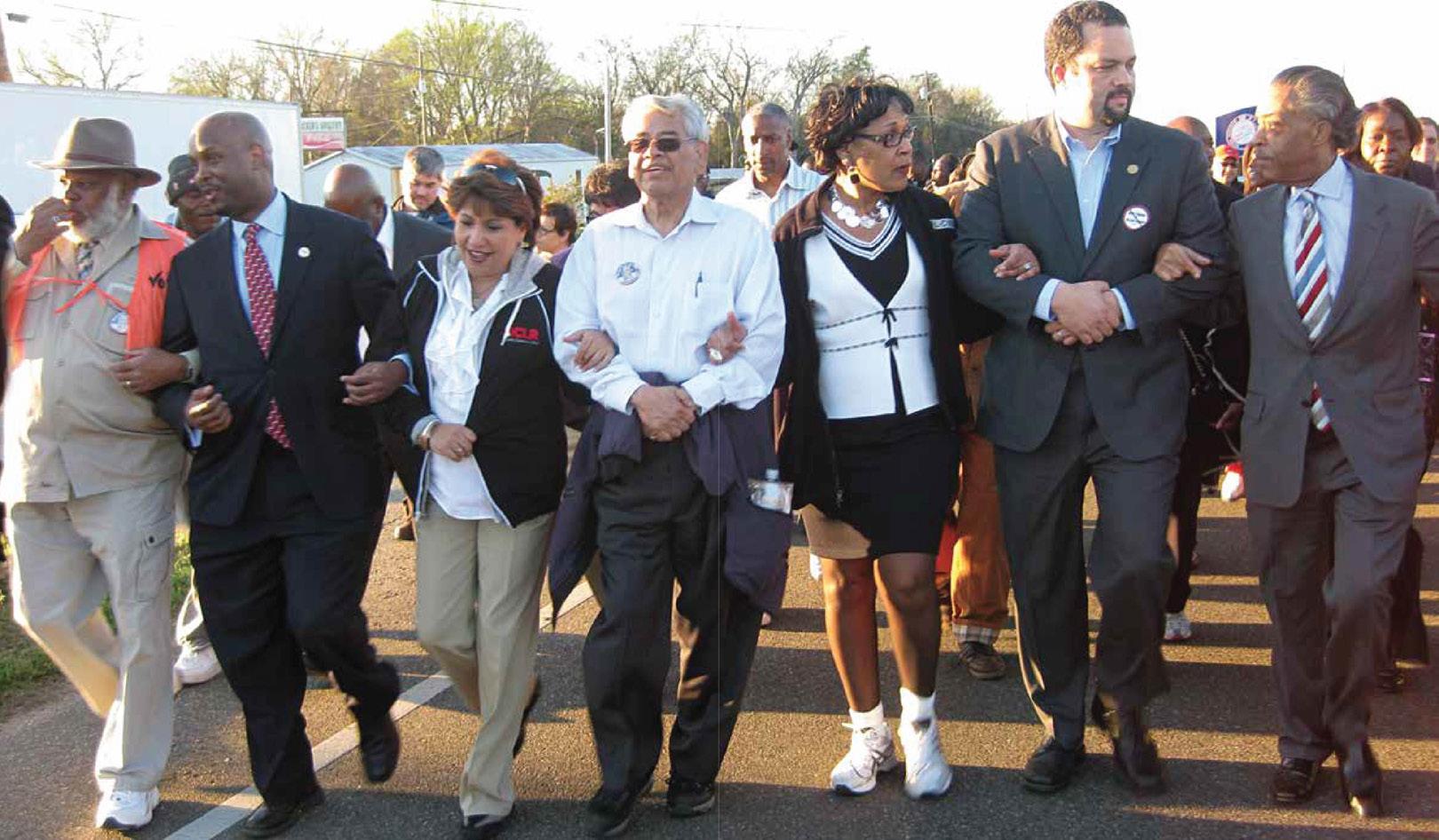
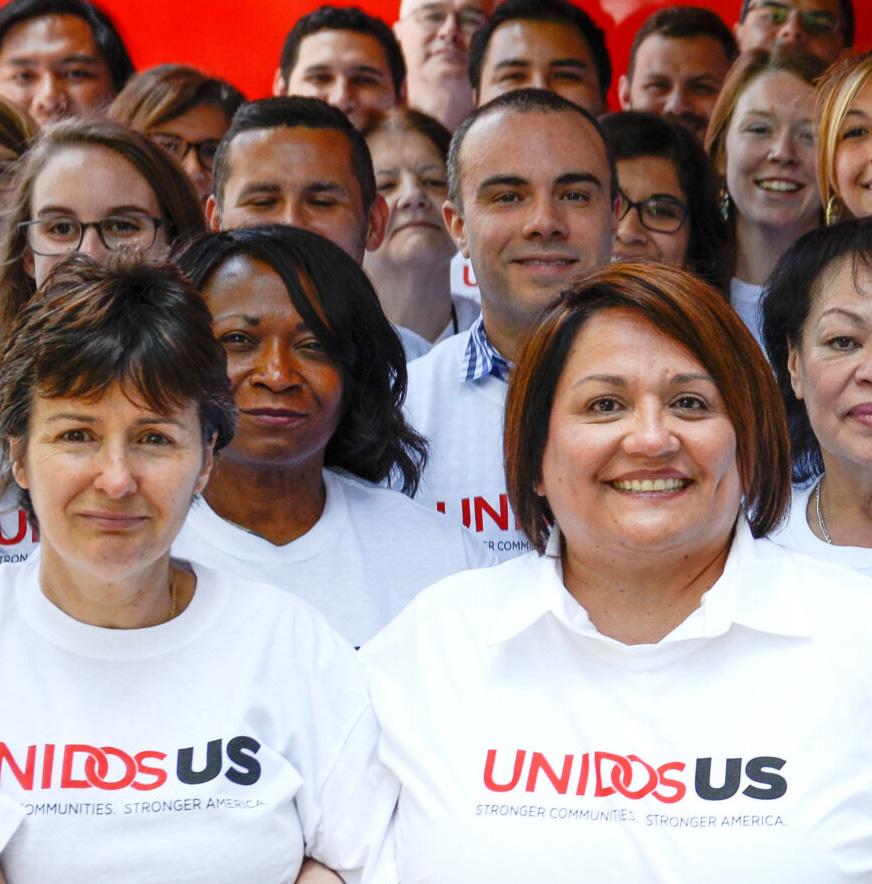
Prosperity Project
• What it is: An 18-month initiative focused on El Paso (TX) and Salinas (CA) to connect Latino families with accessible and secure bank accounts.
• Strategy: Partnerships with local media, bilingual messaging, and work with trusted community leaders, driven by Wells Fargo and UnidosUS.
of national media, local partnerships, and trusted messengers.
EHFA Affiliates hosted over 5,500 culturally grounded vaccination events, administered more than 731,000 COVID-19 and flu vaccine doses, and built more than 3,400 local partnerships to sustain outreach. The national campaign generated over 800 million impressions and reached more than 90, 000 people through mobile tour.
to promote educational attainment, career planning and access to postsecondary opportunities. This program allows students to enhance their leadership skills, postsecondary and career exposure, financial literacy, and exploration of diversified career pathways while also building UnidosUS Affiliate and partner capacity through professional development, data collection, and national communities of practice.
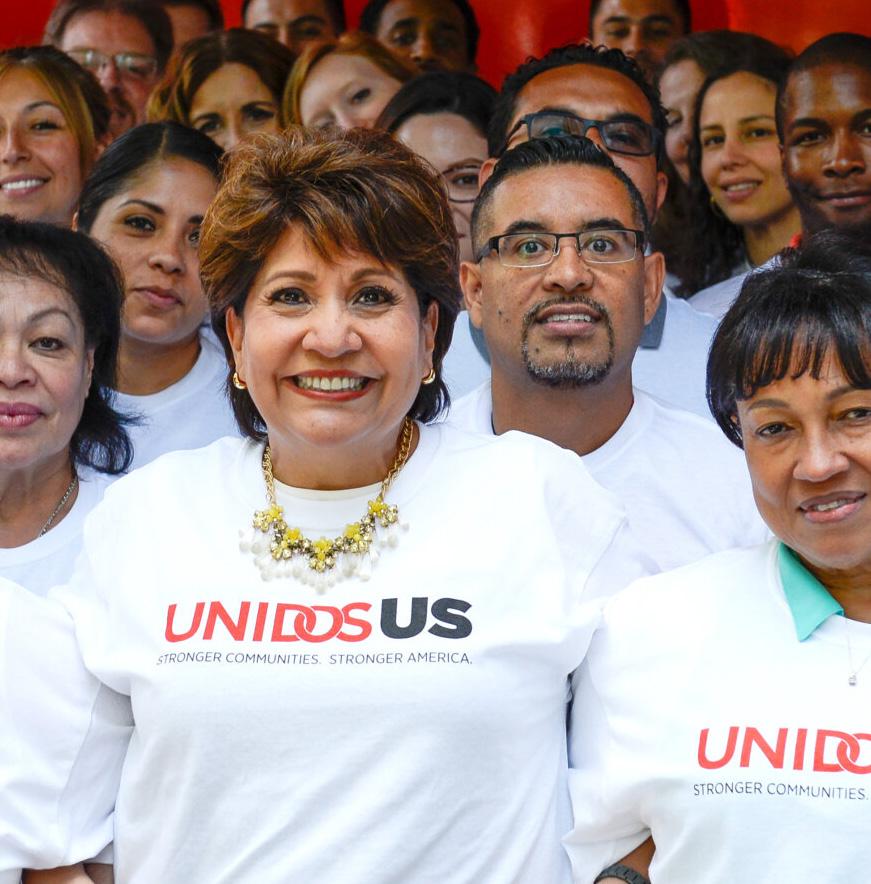
housing access, zoning updates, and tax-credit advocacy.
3. Economic Mobility – Projects yield measurable outcomes like increased wealth, higher homeownership rates and improved employment.
4. Community Infrastructure –Affiliates institutionalize highimpact services—healthcare, civic engagement, financial literacy— directly within Latino communities.
don’t just improve individual outcomes— they remake community systems.
The legacy of UnidosUS is built not only on today’s actions, but also on the enduring impact we leave for tomorrow.
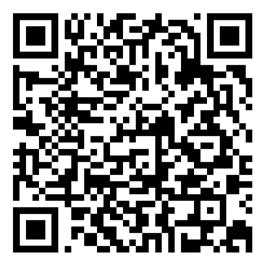

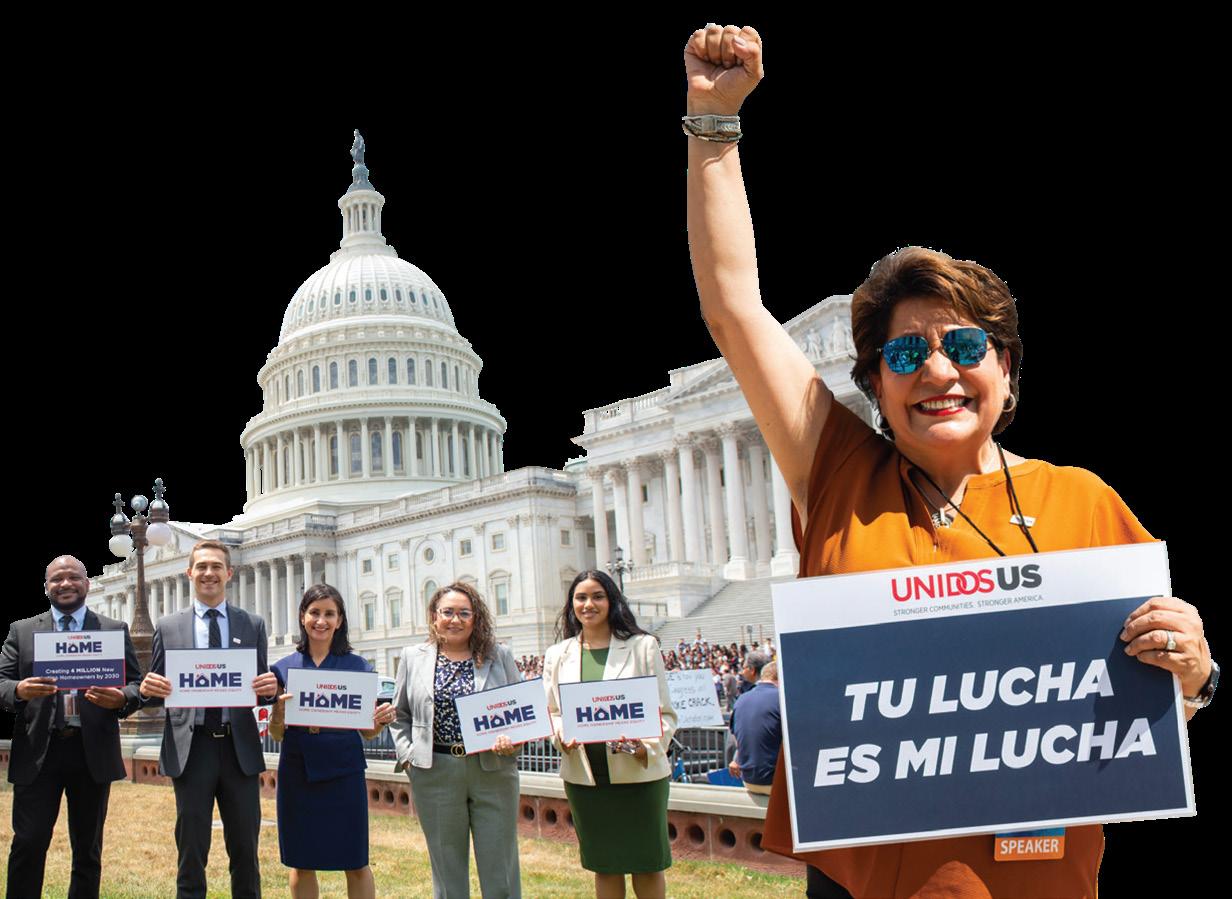

PADRES COMPROMETIDOS: This family engagement initiative empower Latino families by enhancing their skills and leveraging their cultural assets to engage effectively with schools and the community. The program builds strong partnerships between parents and educational institutions.
CULTIVANDO MENTES BRILLIANTES: In partnership with Understood, UNIDOS US developed this program specifically for Latino families and caregivers to increase awareness of learning and thinking differences – and their impact on student success.
CIVICS FOR ALL: This program increases civic knowledge and engagement among students, families, and adults by fostering a culture of civic responsibility. The program empowers participants to stay informed about critical issues within their community and actively participate in civic life.
PIONERAS EN STEM: This program aims to spark Latino student interest in science, technology, engineering, and math (STEM) fields, motivating them to pursue STEMrelated careers and increase their access and entry into STEM pathways.
ESCALERA: This program promotes upward economic mobility for Latino youth by promoting educational success, postsecondary attainment and entry into diversified career pathways. It has served more than 3,000 students in 15 states, D.C. and Puerto Rico in the 20242025 academic year.
AVANZANDO TO SUCCESS: Working with both UNIDOS US Affiliate partners and higher education institutions, this program supports students with postsecondary completion and successful entry into the workforce, and economic mobility opportunities by strengthening their skills and leveraging their cultural assets. Avanzando to Success incorporates skills building in leadership development, community cultural wealth, financial literacy, career pathways and advancement, and graduate/professional school exposure.
AVANZANDO THROUGH COLLEGE: Equips firstand second-year postsecondary students with the skills, information, and support systems needed to successfully transition into postsecondary life.
Latinos are the second-largest group of voting age Americans. The UNIDOS US LATINO VOTE INITIATIVE seeks to grow Latino political power and agency by establishing an accurate understanding of the Hispanic electorate, fostering greater and more effective engagement with these voters, and leading campaigns and system approaches that increase Latino electoral and advocacy participation and generate responses to the community’s priorities.
• Trained more than 16,000 Latinos in job readiness, financial literacy and career development through workforce development programs since 2018.
• Provided nearly 1 million families with housing counseling services.
• More than $20 billion in homeownership support influenced through UNIDOS US’s housing and financial empowerment network.
• UNIDOS US and Affiliates played a major role in preventing foreclosures during the 2008 housing crisis.
• Latinos are a vital part of the U.S. economy.
• UNIDOS US advocates for increased access to tax credits like the EITC and Child Tax Credit.
• UNIDOS US has increased access to homeownership and long-term financial security for Latinos.
• UNIDOS US has developed the Latino workforce by increasing training, education and career pathways.
• MUÉVETE: Launched in 2025, this program is designed to empower Latinos with the skills and support needed to thrive in a rapidly-evolving workforce. Through partnerships with community-based grantees, the program provides access to high-quality, industry-recognized training along with personalized career guidance and wraparound services.
• LATINOS IN BUSINESS: Empowers aspiring and current Latino entrepreneurs to successfully launch and scale their micro and small businesses. By blending culturally relevant training with essential digital literacy skills, this initiative offers entrepreneurs the tools and knowledge needed to thrive in today’s competitive, tech-driven market.
• DIGITAL SKILLS FOR LIFE: This transformative program is specifically tailored for Latino adults, equipping them with the essential skills to navigate and thrive in the digital world.
• UNIDOSUS IN MANUFACTURING: This program supports participants interested in careers in the manufacturing industry to access high-wage jobs.
• LATINOS IN FINANCE: This program is a bilingual training program aimed to improve pathways to employment for job seekers interested in jobs in the commercial banking and financial industry.
• DACA: Helped hundreds of thousands of Dreamers through legal clinics and advocacy.
• Led successful national efforts to defend TPS, fight family separation, and oppose anti-immigrant legislation.
• Filed or supported dozens of amicus briefs and civil rights lawsuits.
• 3.2 million+ Latino voters mobilized through Power of 18, Adelante, and civic participation campaigns.
• Trained over 300,000 community advocates.
• 190+ affiliate organizations across 40 states (as of 2025) amplifying local and national impact.
UNIDOS US strives for an immigration system that values the basic dignity and human rights of all people. There is a huge support for policies that broaden ways for people to enter the country legally, prioritize the integration of immigrants, including accessible paths to citizenship for all who are eligible, and promote nondiscriminatory border security and policies that uphold American values and traditions.


Escucha en Español
UNIDOS US works to close persistent health equity gaps by building comunity power in access, education and delivery. We’ve reached millions of Latinos through culturally responsive health initiatives focused on prevention, access and system transformation.
UNIDOS US Health Priorities.
•Healthcare Access and Affordability.
•Mental Health and Social-Emotional Wellbeing.
•Food Security and Nutrition.
COMPRANDO RICO Y SANO (CRS): CRS builds the capacity of Latino-serving Community Based Organizations to reduce food security by offering culturally tailored nutrition education and navigation support for SNAP and WIC enrollment. Since Its inception, CRS has empowered promotores de salud across 24 sub-grantee organizations to deliver inlanguage nutrition guidance, dispel stigma, and connect families with critical food programs.
CIAO):
UNIDOS US serves as a national partner on the USDA-funded WIC CIAO Project, providing technical assistance to 14 organizations, including 2 UNIDOS US Affiliates, to boost WIC enrollment through linguistically and culturally relevant outreach. The project aims to reverse declining participation rates by addressing misinformation, fear from public charge, and logistical barriers to accessing benefits.
HEALTHY AND READY FOR THE FUTURE (HRF): Since 2016, UNIDOS US has reached nearly 120,000 Latino children with essential oral health services and nearly 35, 000 children with behavioural and social-emotional support. Through this program, UNIDOS US partners with Affiliates to Integrate oral and mental health care with early childhood education, empowering parents and caregivers through Abriendo Puertas sessions and culturally grounded materials.
ESPERANZA HOPE FOR ALL (EHFA): UNIDOS US’s pandemic response initiative, EHFA was launched in 2021 under a five-year CDC cooperative agreement to close the COVID-19 and flu vaccine gap among Latino communities. In partnership with 33 Affiliates across the United States, UNIDOS US helped deliver over 731.000 vaccine doses, hosted 5,575 outreach events, and trained more than 7,000 trusted messengers. EHFA combined national narrative change with hyperlocal activities, mobilizing promotores de salud, combating vaccine mis- and disinformation, and creating over 3,400 partnerships to expand culturally responsive care.
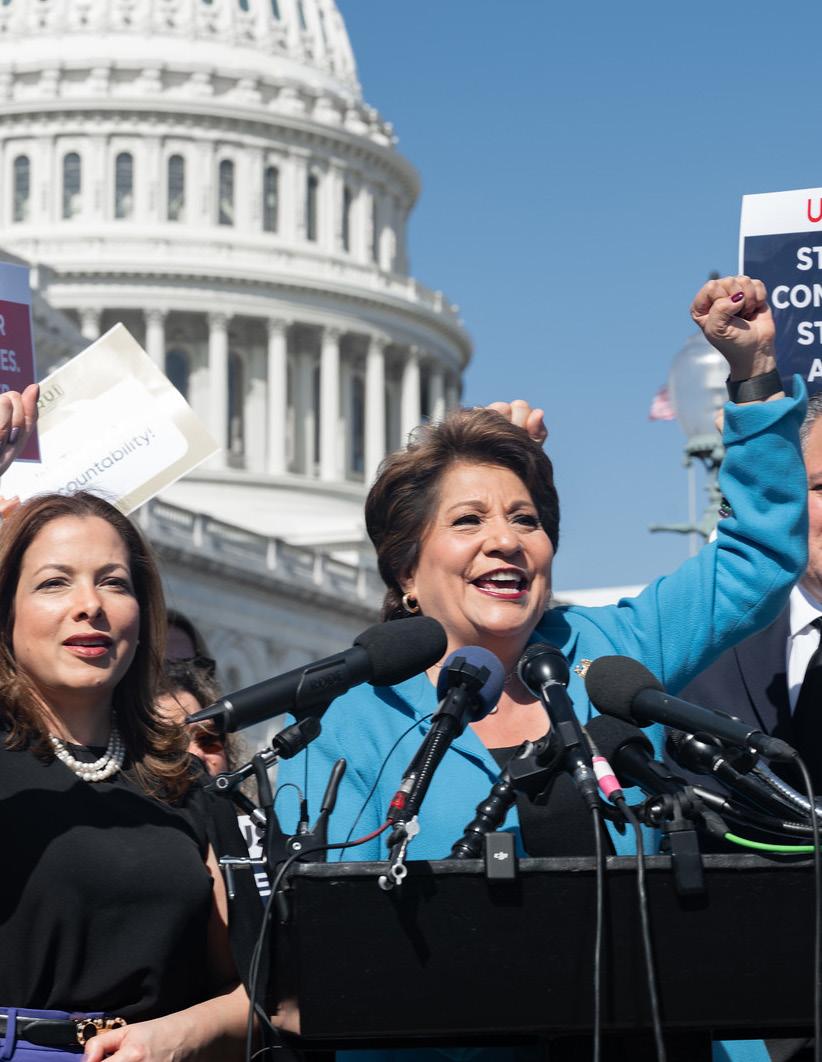

By: La Revista Binacional
n the heart of Kansas City, a young girl with humble beginnings would one day rise to become one of the most powerful and influential Latina voices in America. Janet Murguía’s journey—from a tightknit Mexican American household to the helm of the nation’s largest Latino civil rights and advocacy organization—has reshaped what it means to lead with heart, heritage, and a relentless commitment to justice.
Over the past 20 years, Murguía’s leadership has defined an era of advocacy, impact, and transformation for Latinos in the United States. As President and CEO of UnidosUS (formerly the National Council of La Raza), she has stood at the crossroads of policy and community, voice and vision, always guided by her Kansas City roots and unwavering belief in the power of unity. This is the story of the woman behind the movement—a reflection on two decades of milestones, the cultural foundation that shaped her, and the future she envisions for the Latino community in America.
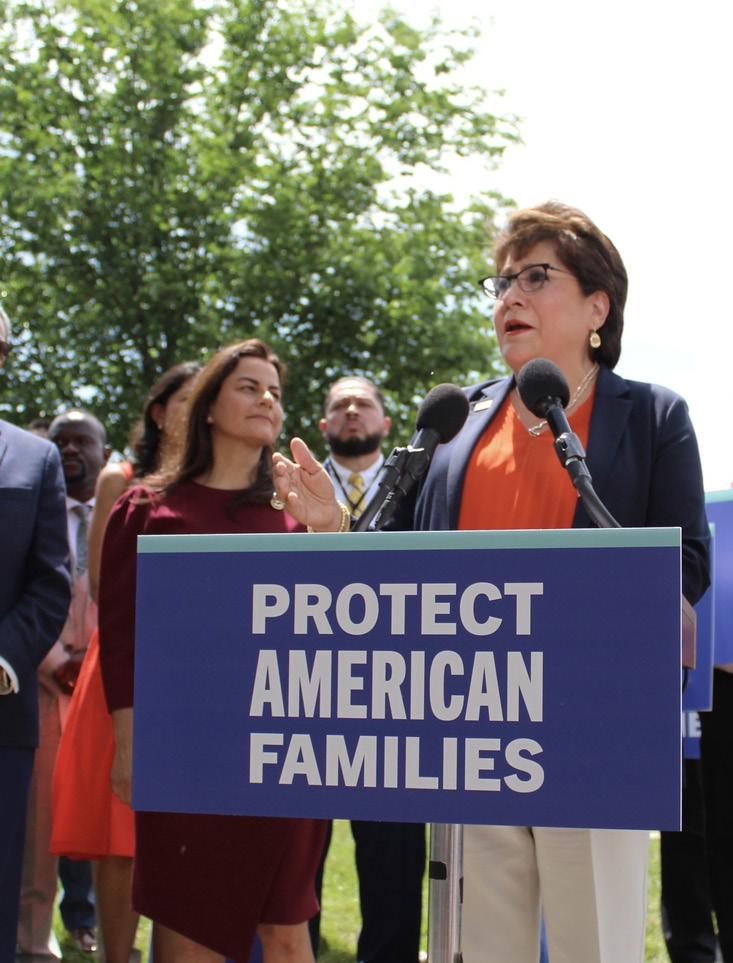

Janet Murguía’s story is one of both personal pride and collective purpose. Raised in Kansas City, Kansas, the youngest of seven children born to immigrant parents from Mexico, she grew up in a household rich with culture, faith, and resilience. Her father, Alfred, was a mail carrier and World War II veteran. Her mother, Amalia, was a homemaker and her family’s anchor. Together, they instilled in their children a profound respect for hard work, integrity and service.
Kansas City’s Wyandotte County, where Janet spent her childhood, was a mosaic of working-class families, tightknit neighborhoods, and a deeply rooted Latino community. It was here that she learned the value of community connection and the transformative power of education. “My parents didn’t have much, but they gave us everything that mattered—love, dignity, and the belief that we could change the world,” she often reflects.
Murguía’s early years were filled with the sounds of mariachi, the aroma of traditional Mexican cooking, and the strength of a culture that celebrated family above all. Those experiences would later shape her public voice—a leader who never forgot where she came from.
After graduating from high school, she attended the University of Kansas, earning three degrees, including a law degree. But it was more than academics that drove her. Janet understood that Latinos needed not only opportunity but representation, not only policy change but empowerment. This would become her life’s mission.
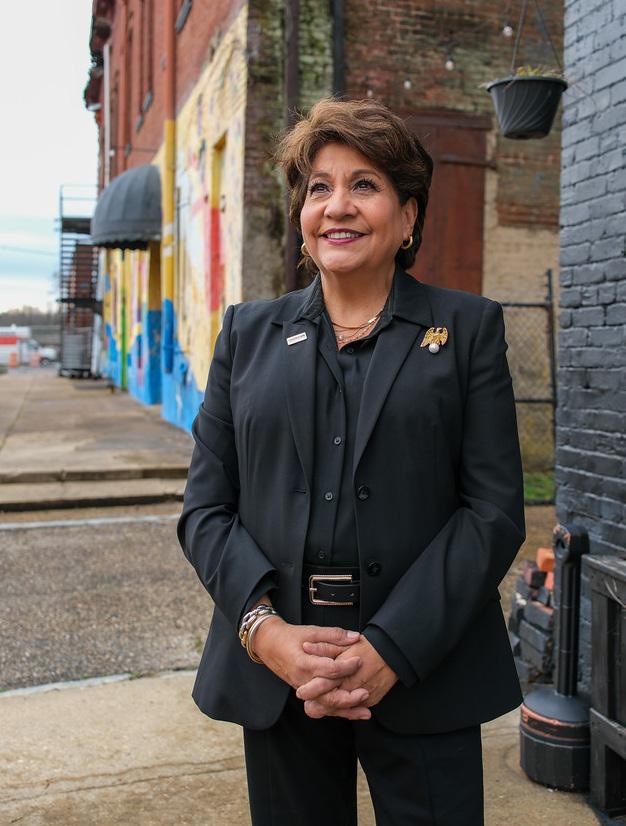
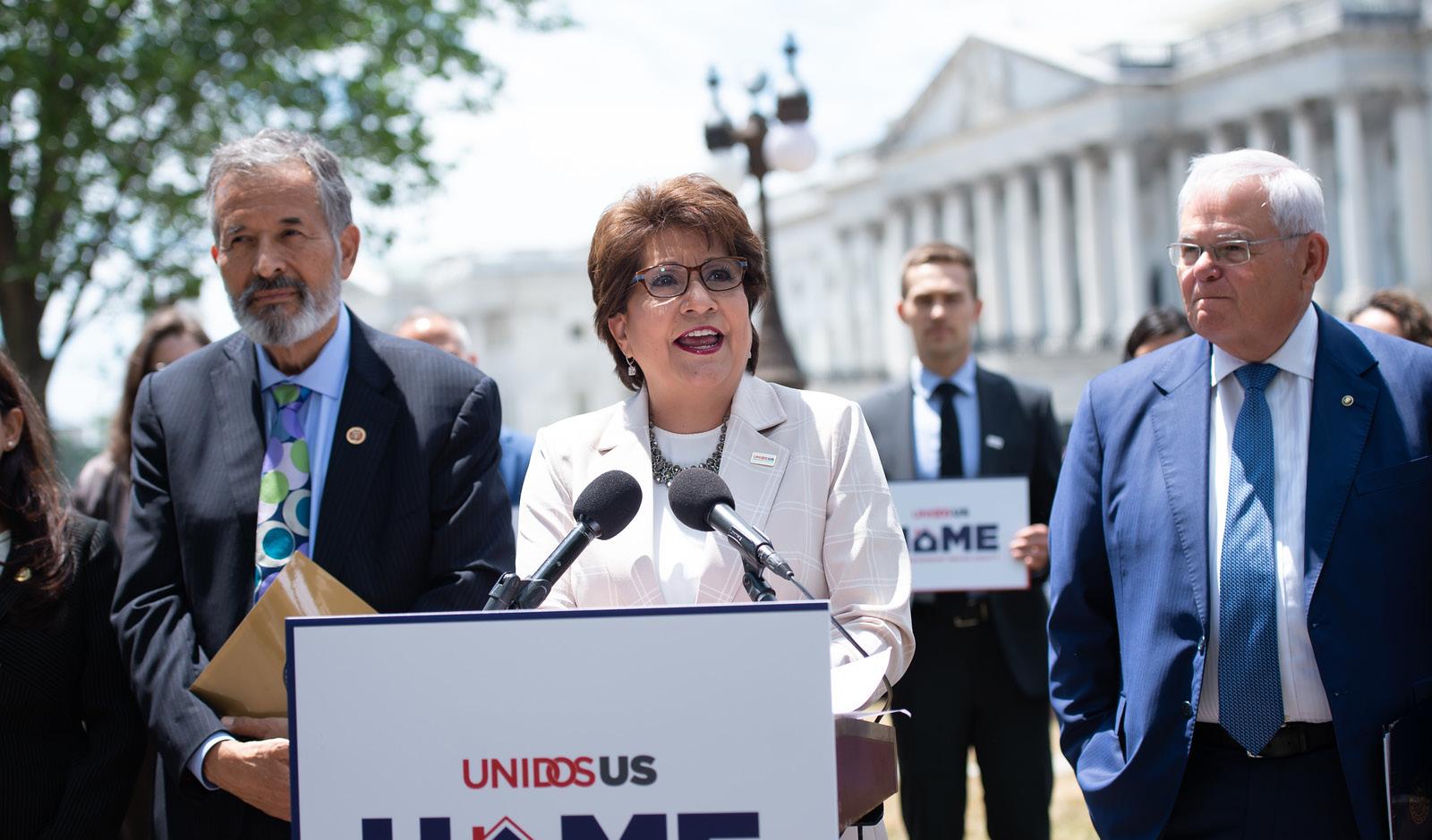
Before taking the reins at UnidosUS in 2005, Murguía had already carved a distinguished path in public service. Murguía served seven years as legislative counsel to former Kansas Congressman Jim Slattery. She also served as Deputy Assistant to President Bill Clinton and as Deputy Director of Legislative Affairs at the White House, advising the President on key issues like immigration, civil rights and education. Later, she became Executive Vice Chancellor for University Relations at the University of Kansas.
Yet it was her decision to lead what was then the National Council of La Raza (NCLR) that marked a pivotal shift—not just in her career, but in the national Latino movement. As President and CEO of the organization, Murguía inherited a legacy built by icons like Raul Yzaguirre but also stepped into a rapidly evolving America—an era of shifting demographics, rising anti-immigrant sentiment and widening economic gaps.
Janet understood that the Latino community needed not only a defender but a unifier—someone who could represent millions of voices across race, class, nationality and political ideology. Under her leadership, NCLR evolved into UnidosUS in 2017, reflecting a deeper commitment to inclusivity, solidarity, and modern engagement.
The last 20 years of Janet Murguía’s leadership can be defined through key moments that brought meaningful, measurable change:
One of her earliest and most defining challenges was navigating the harsh backlash against immigrants following 9/11. Murguía advocated against discriminatory policies and raids that targeted Latino families and fought to humanize the immigration debate on the national stage. Her leadership was instrumental in elevating the immigrant experience in mainstream media and political discourse.
UnidosUS launched powerful campaigns pushing for Latino inclusion in the Affordable Care Act (ACA). Murguía became a leading national voice advocating for access to quality healthcare for underserved communities. Her efforts led to millions of Latinos gaining health insurance coverage for the first time.
Murguía was a vocal supporter of the DREAMers and helped shape the conversation around DACA (Deferred Action for Childhood Arrivals). She worked closely with allies in Congress and community organizations to protect undocumented youth and demand pathways to citizenship.
Perhaps the most symbolic moment of her tenure came in 2017, when NCLR rebranded as UnidosUS. The new name reflected the organization’s forward-looking mission and emphasized unity over division. “We needed a name that matched our momentum—a name that reflected the strength of the modern Latino community,” she said.
During the COVID-19 crisis, UnidosUS again rose to the occasion. As the pandemic disproportionately affected Latino communities, Murguia led emergency response efforts—mobilizing resources, demanding policy interventions, and launching health equity campaigns. Her leadership saved lives and livelihoods.
In the years leading up to this year’s UnidosUS national conference, Beacons of Change, in Kansas City—Janet’s hometown—she focused on voter engagement, educational opportunity, and workforce development. UnidosUS has registered hundreds of thousands of new voters and trained the next generation of Latino leaders under her guidance.
Janet Murguía’s leadership cannot be measured solely by policy wins. It’s also found in the hope she has instilled in millions. Under her guidance, UnidosUS became more than an organization— it became a movement rooted in dignity, culture, and action.
She has consistently emphasized the value of Latino identity—not just as an ethnicity, but as a powerful American identity. She has reminded the nation that Latinos are not outsiders, but co-creators of its past, present, and future.
From pushing back against hateful rhetoric to advancing the visibility of Latino heritage, Murguía’s work has always centered people. Her approach blends strategy and soul—a rare leadership style that has gained her respect across party lines and across generations.
As UnidosUS celebrates 20 years of Janet’s leadership, she remains focused on what’s next. Her vision for the Latino future in the U.S. is clear, ambitious, and deeply personal.
Janet believes the next 20 years will be shaped by Latino contributions to the economy, innovation, and culture. With Latinos making up nearly 30% of the U.S. population by 2050, she sees them as essential drivers of growth—not just workers, but entrepreneurs, educators, and creators.
“We are no longer on the sidelines of this country’s progress,” she says. “We are at the center of it.”
2. Closing the Education and Wealth Gap
Education and economic empowerment remain her top priorities. Murguía believes that expanding college access, investing in bilingual education, and reducing student debt are key to unlocking the full potential of Latino youth. She also calls for systemic efforts to close the racial wealth gap through homeownership, entrepreneurship support, and financial literacy programs.
Janet foresees a dramatic shift in Latino political power. With more Latinos running for office, serving in leadership roles, and influencing policy, she predicts a future where Latino values—community, family, hard work—shape the American agenda.
“Latinos don’t just want a seat at the table,” she says. “We’re building the table.”
4. Protecting Culture in a Digital Age
In the face of rapid change, Murguía is committed to preserving Latino heritage. She envisions a future where technology is used to document traditions, amplify community voices, and share stories across generations. Cultural identity, she insists, is not a barrier to success—it’s the source of strength.
As UnidosUS returns to Kansas City, Missouri in 2025 for its national conference—coinciding with Janet’s 20th anniversary as leader of UnidosUS— there’s a full-circle poignancy. The daughter of working-class immigrants, who once walked the streets of Wyandotte County dreaming of change, will be celebrated for becoming one of the greatest champions her community has ever known.
Murguía’s legacy will not be confined to awards or headlines. It will live in the students who dream bigger because of a scholarship she made possible. In the families who have healthcare today because of her advocacy. In the young women who now believe they, too, can lead powerful movements.

Janet Murguía often says that progress doesn’t happen in a single election cycle or legislative win—it happens in moments of courage that add up over time. Her 20 years of leadership have been just that: a series of courageous choices, rooted in identity and driven by vision.
She is not just the woman behind the movement—she is the movement. And as she looks to the future, one truth remains clear: the Latino story is still being written, and with leaders like Murguía guiding the way, its next chapters will be brighter, bolder, and unmistakably American.

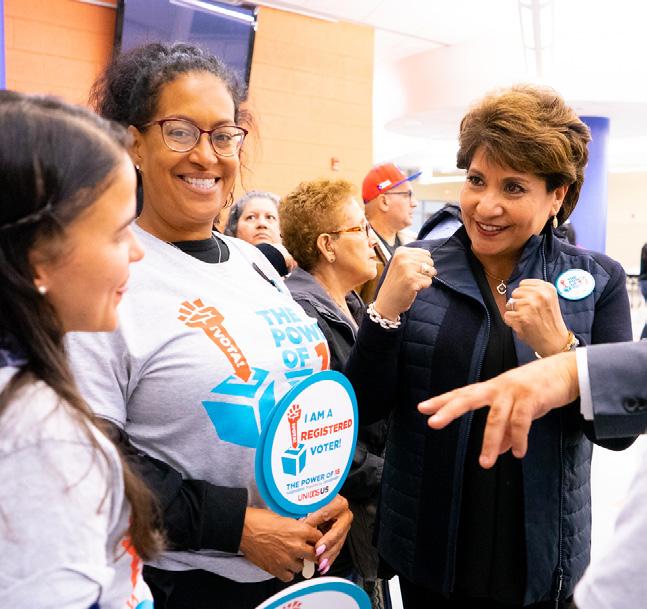

s systemic challenges persist— rising housing costs, immigration crackdowns, economic inequity— emerging Latino leaders and advocates are stepping forward as the next generation of changemakers. UnidosUS, the nation’s largest Latino civil rights organization, is empowering this new wave through policy training, leadership convenings, and community action.
UnidosUS empowers Rising Latino Changemakers through an effective combination of training, collaborative networks, and community advocacy. Here’s how:
At the Changemakers Summit 2025, held March 5-7 in Washington DC, UnidosUS brought together 230 aspiring and veteran advocates from 75 organizations in its Affiliate Network to discuss public policy trends, personal and professional growth pathways, and community advocacy strategies. Sessions included:
· Developing a Growth Mindset for Leadership Success
This topic focuses on fostering a growth mindset in young Latino leaders. According to UnidosUS, this session teaches them that mistakes and challenges are learning opportunities, not failures, reinforcing the belief that through dedication and effort it is possible to enhance skills and advance continuously. With this approach, Summit participants acquire a proactive and resilient attitude, key to their professional growth and effective leadership in their communities.
“It’s not just about preparing the next generation; it is about unleashing a movement.”
· Policy 101: Navigating Leadership Through Action
This session seeks to introduce young changemakers to the fundamentals of advocacy and how to engage with decisionmakers. According to UnidosUS, the contents include:
1- Structure of public policies: how legislative initiatives are designed, debated, and approved.
2- Key roles: Know the workings of Congress, federal agencies, and strategic actors.
3- Effective Civic Performance: Steps to organize campaigns, communicate with legislators, and integrate the Latino lens into policymaking.
Both topics are taught in partnership with the Congressional Hispanic Caucus Institute (CHCI), which provided changemakers with crucial tools to become effective political voices.
networks and collaboration
The event also brought together voices from diverse Affiliate organizations, strengthening connections between community advocates and allies, critical to the defense of initiatives such as expanding homeownership opportunities, ensuring civil rights and dignity and promoting a long-term vision for economic mobility for working families, including Latinos.

Escucha en Español
The “Building Our Power: Strength in Unity” workshop focuses on collective power building within the Latino community and serves as a strategic guide for Latinos seeking to:
1. Understand the political environment, and how policies directly impact the rights, dignity, and opportunities of Latinos.
2. Know the priorities and techniques of advocacy.
3. Join forces and work together to strengthen their voice and generate real impact in the community.
The closing of the Summit included a visit to Capitol Hill and a press conference where participants denounced actions that are harming families and communities and called on federal legislators to provide effective solutions for a fairer economy. . This action empowered youth to move from theory to direct action.
The plenary “Taking Action: Defending and Protecting Our Community” focused on how to effectively exercise constitutional rights in response to immigration raids, connecting attendees to legal resources and community planning tools.
As Karina Ayala Bermejo pointed out, “Each family must have an emergency plan.”
In conjunction with the Changemakers Summit, UnidosUS celebrates its Capital Awards, recognizing bipartisan leaders pushing for immigration reform, such as the Dignity Act, and organizations like the National Skills Coalition that promote and increase career pathways for workers and youth, including Latinos.
UnidosUS partners with a network of 300 Affiliate organizations that offer ongoing support and services in key areas:
· Technical support to develop inclusive internship programs, such as those conducted in collaboration with Grid Alternatives in San Diego (news.unitedforequity.org)
After the Summit in Washington, UnidosUS already took the first steps towards its Annual Conference in August 2025 in Kansas City. These events not only celebrate achievements, but seed active civic leadership.
In summary, UnidosUS nurtures Rising Latino Changemakers by offering:
1. Policy and advocacy training and structured leadership.
2. Strengthening collaborative networks.
3. Community mobilization with political advocacy.
4. Legal and collective preparation.
5. Inspiring recognition.
6. Ongoing strategic support.
Through Changemakers Summit, the the Capital Awards, and Affiliate-driven initiatives like HOME and legal rights training, UnidosUS is training young Latinos to become skilled civic leaders and influential policy advocates.
These efforts combine identity, community, and strategy, cultivating trust, resilience, and collective power. It’s not just about preparing the next generation; it is about unleashing a movement. As Latino voices are amplified in the halls of power, they are not just entering leadership, they are transforming it, advocating for a future that reflects the dignity, diversity, and contributions of Latino communities.
UnidosUS doesn’t just prepare them: it gives them the tools, the platform, and the legitimacy to transform their communities. And that impact is already felt in every step they take inside and outside the Capitol.
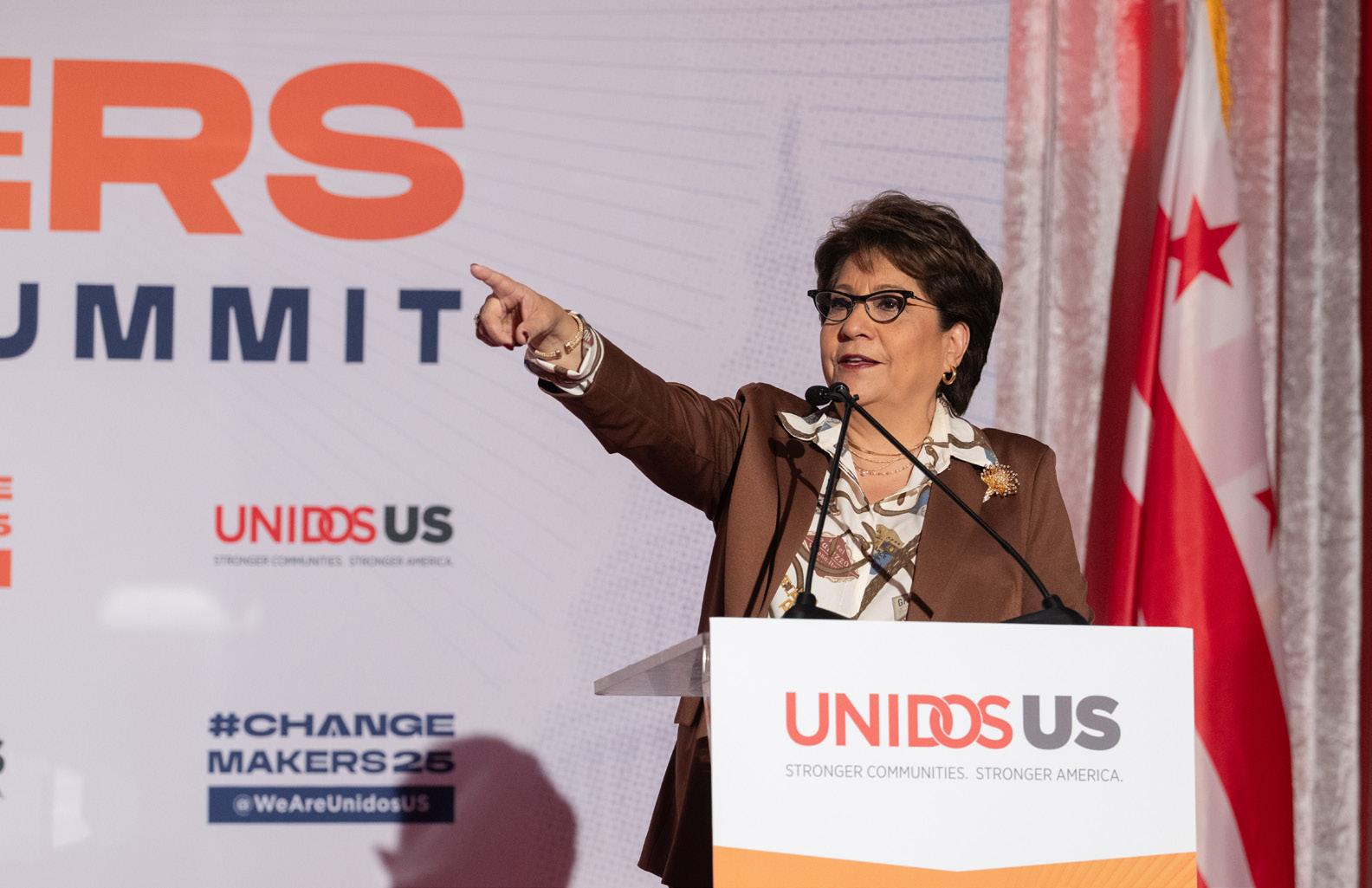
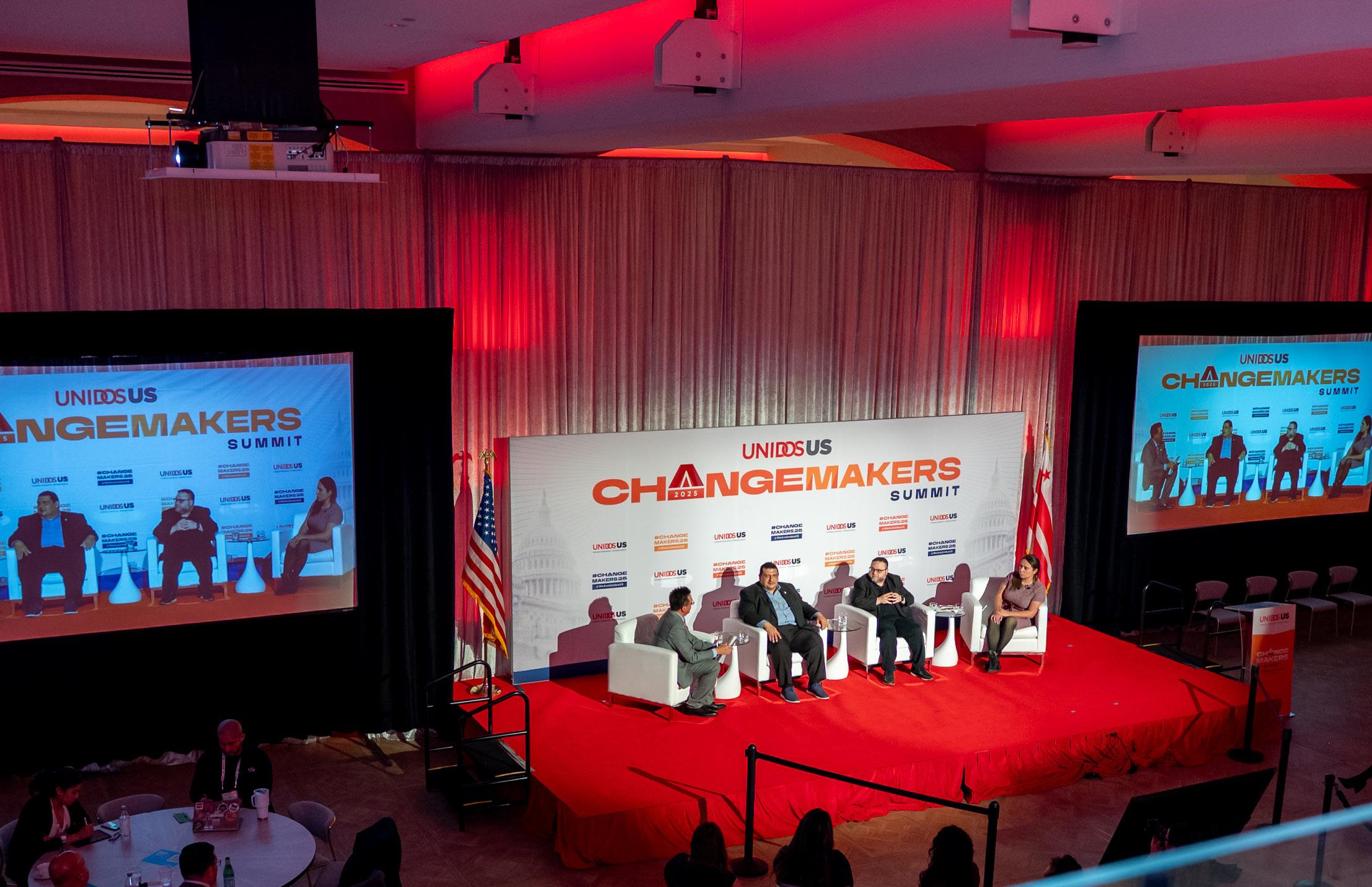
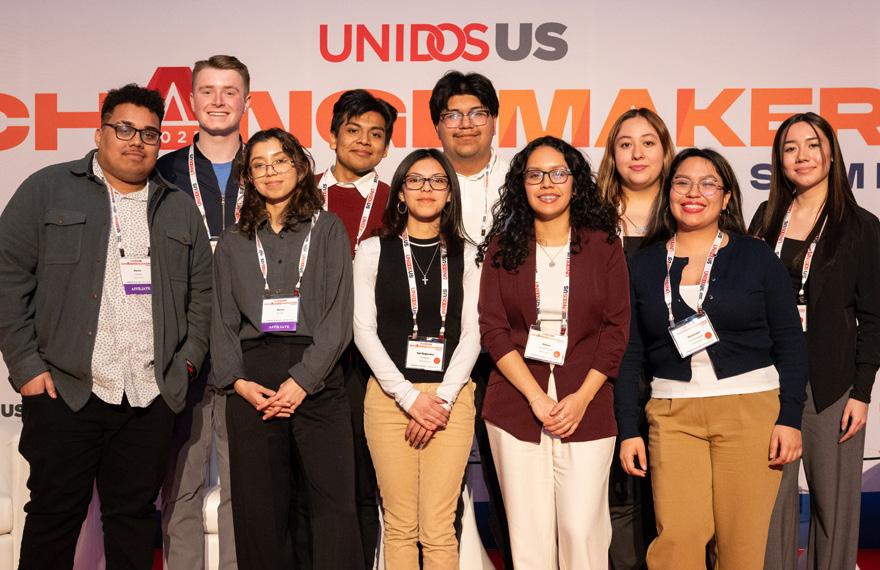


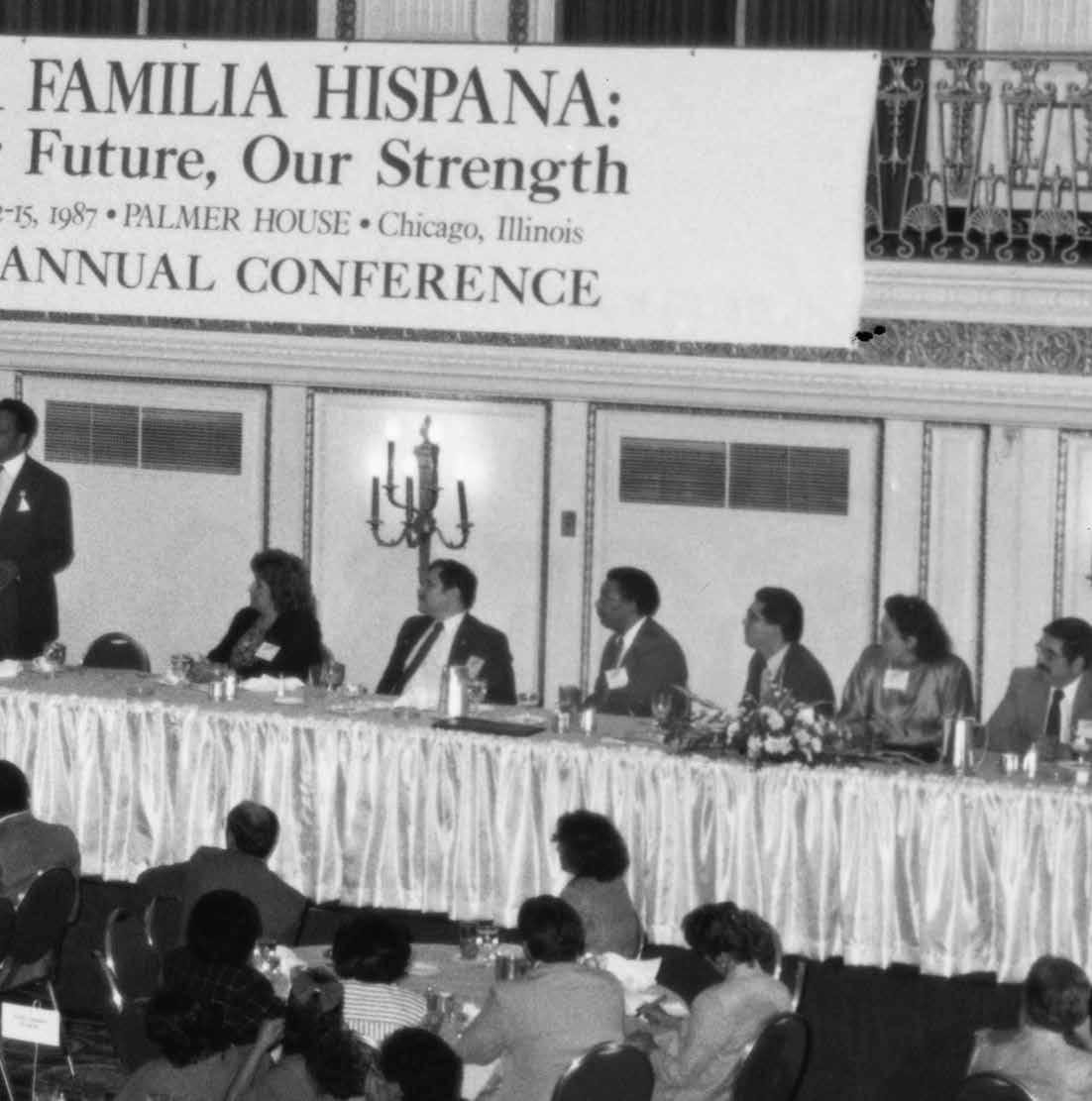
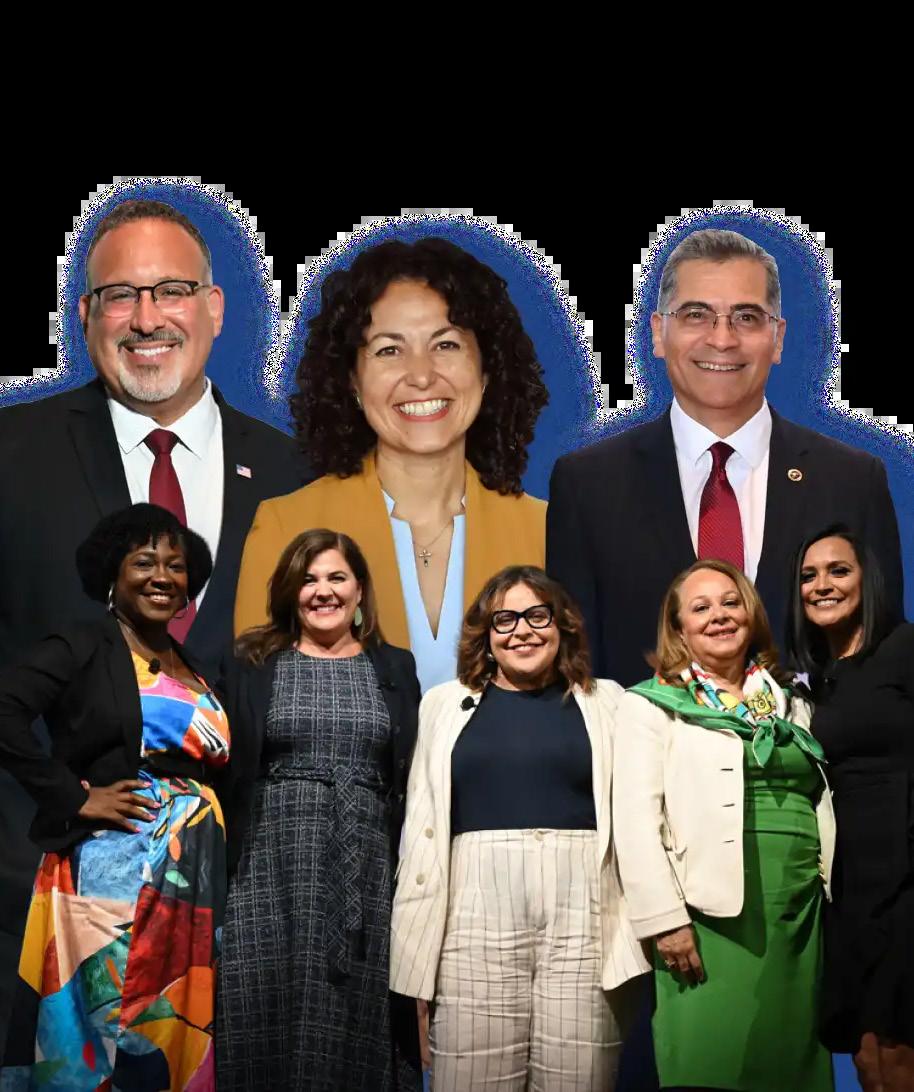

Over the past two decades, the Latino community has established itself as a decisive force in American politics, and UnidosUS has been at the forefront of that change. As the second-largest minority of voting age, Hispanics have transformed both the electoral sphere and political leadership thanks to a clear vision: to strengthen the Latino voice and change power structures.



Through its Latino Vote initiative, UnidosUS has driven significant action: over the past two decades, it has helped more than 1 million Latinos register to vote. In the 2024 election cycle, UnidosUS registered nearly 120,000 voters and directly reached over half a million new and infrequent Laino voters through civics and campaigning Get-Out-the-Vote (GOTV) Rules.
UnidosUS policy strategy not only mobilizes the electorate, but generates evidence-based research on Latino priorities. In its recent “First 100-Day Bipartisan Poll of the Hispanic Electorate,” released in April 2025, it found that pocketbook issues continue to dominate the concerns of Latino voters — cost of living, jobs, housing and health care affordability — with immigration rounding up the top five.
UnidosUS has boosted Latino participation at the federal level. Thanks to Project 20%, we have advocated to ensure that at least 20% of new public positions fall on Latinos. The result was reflected in historic nominations: Dr. Adriana Kugler on the Federal Reserve Board of Governors, Xochitl Torres Small on the Department of Agriculture and Anna Gomez on the FCC — the first Latina in decades. In addition, the Treasury summit and UnidosUS’s inclusion in the first Senate summit on artificial intelligence underscore its growing influence.
UnidosUS also strives to change the perception of Latinos in the media and public space. In its 2022 report, it denounced the media invisibility of the community and launched campaigns such as “Count on Us” in Arizona, with a 15% increase in the recognition of Latinos as significant contributors to the economy. In addition, their polling efforts over the years have generated countless media mentions, with the most recent initiative garnering coverage of over a hundred articles in prominent media outlets such as CBS News, Reuters, NPR, Telemundo, Univision, among others.
Latino influence doesn’t end at the ballot box. In February 2025, a coalition of Latino leaders, backed by UnidosUS, appeared before Congress to denounce budget cuts in Medicaid and demand accountability for antiimmigrant policies. This type of advocacy continues to strengthen the Latino role in the national debate.
In conclusion, the American political landscape is being redefined by Latinos. UnidosUS has been a key player at every stage: from registration to voting, from data analysis to representation, from public narrative to the defense of rights. This collective power is not only transforming elections, it is also changing who decides and how politics is taken in the United States.
Thanks to these efforts, the Latino community not only represents demographic diversity, but also a structured and strategic political force, capable of influencing local, national, and federal policies. The power of Latinos influencing politics is now a reality and UnidosUS is helping lead that change.
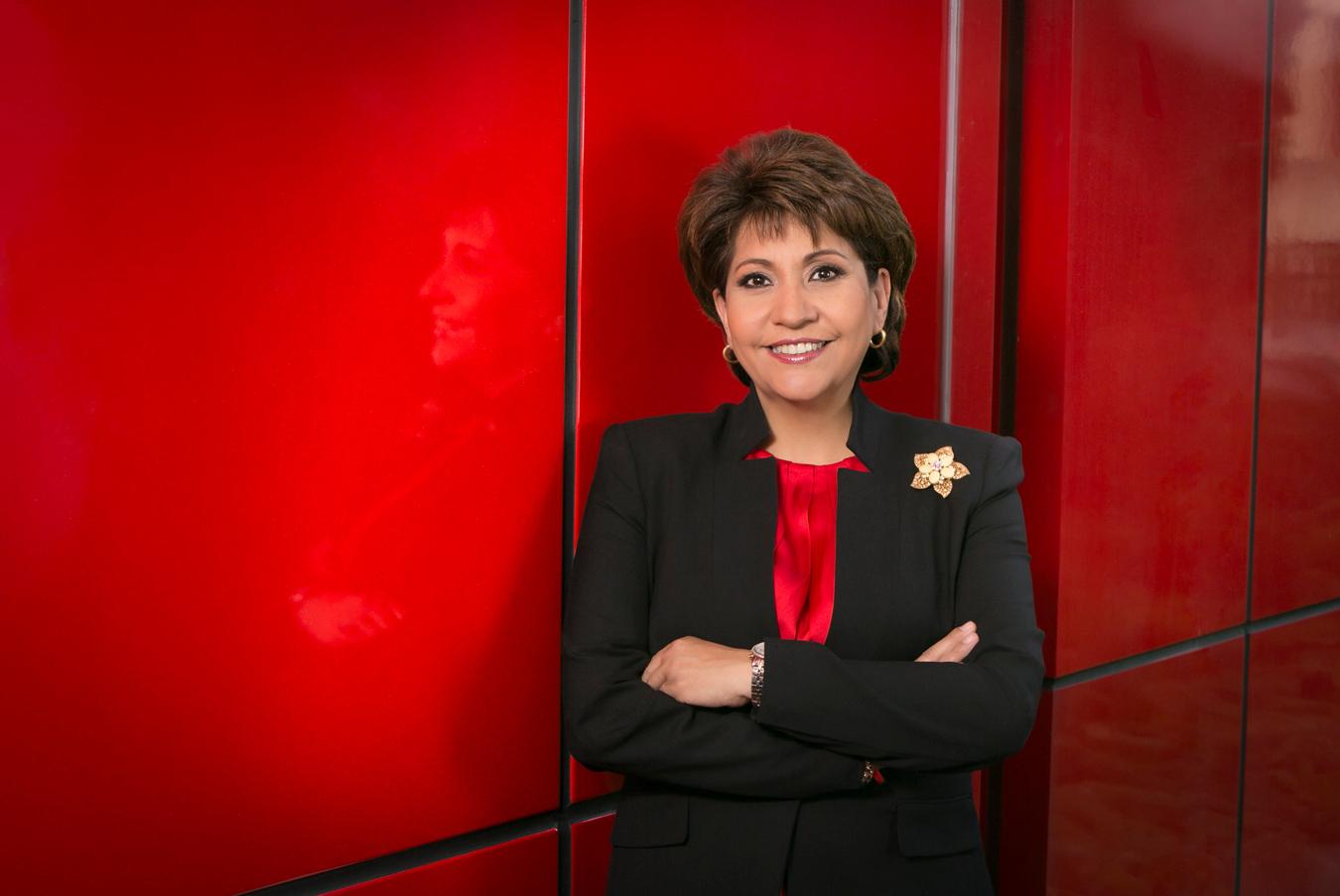


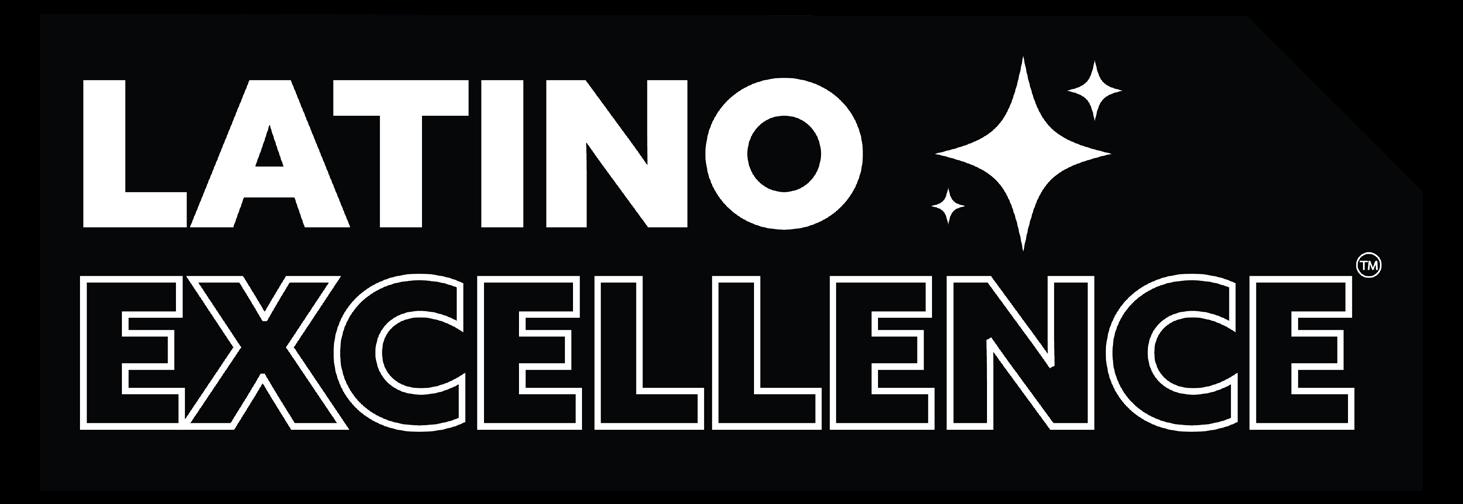

“Latino excellence” generally refers to the achievements, contributions, and successes of individuals who identify as Latino or Hispanic. This concept celebrates the accomplishments of Latinos across various fields such as art, culture, academia, business, science, politics, and more. It emphasizes the positive impact and influence of Latino individuals and communities on society.
Latino excellence can manifest in many forms, including academic achievements, professional accomplishments, cultural preservation, leadership roles, community activism, and artistic expression. It is about recognizing and honoring the diverse talents, skills, and resilience within the Latino community.
Here at La Revista Binacional, this phrase is what inspired us to be the storytellers of amazing Hispanics and Latinos, and we need to make this an important movement.
A frequent question we get asked is ...
“How can I be a Latino Excellence?”
Becoming a symbol of Latino excellence involves personal development, community engagement, and striving for excellence in your chosen field. Here are some steps you can take to work towards being a beacon of Latino excellence:
Set goals: Define what excellence means to you in your field of interest, whether it’s academia, business, arts, activism, or any other area. Set specific, achievable goals that align with your vision of success.
Education and skill development: Invest in your education and skills to become proficient in your chosen field. Pursue higher education, attend workshops, seminars, and seek mentorship opportunities to enhance your knowledge and expertise.
Work ethic and dedication: Cultivate a strong work ethic and dedication to your goals. Be willing to invest the time and effort necessary to excel in your endeavors. Stay focused, persevere through challenges, and maintain a positive attitude.
Embrace your cultural identity: Embrace your Latino heritage and cultural identity. Celebrate your roots, language, traditions, and values. Your cultural background can be a source of strength and inspiration in your journey towards excellence.
Lead by example: Lead by example and inspire others through your actions. Demonstrate integrity, professionalism, and a commitment to excellence in everything you do. Be a role model for aspiring Latino individuals who look up to you.
Community involvement: Give back to your community and uplift others along the way. Volunteer, mentor, or support initiatives to empower Latinos and create positive change in your community.
Networking and collaboration: Build strong networks and collaborate with others who share your passion for excellence. Surround yourself with mentors, peers, and allies who can support and encourage you on your journey.

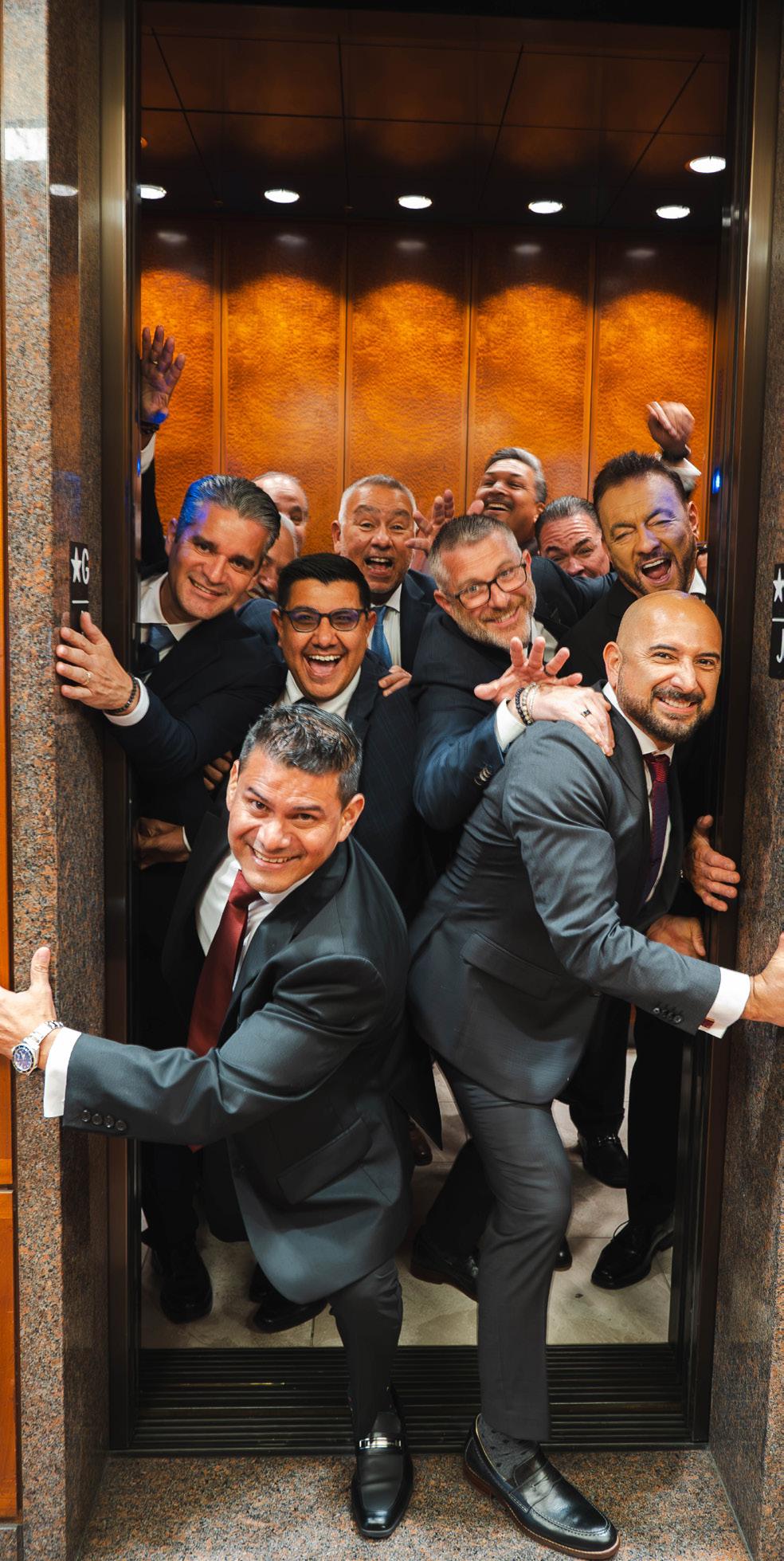
Continuous improvement: Strive for continuous improvement and growth. Stay informed about developments in your field, seek feedback, and be open to learning from both successes and failures.
Celebrate success: Celebrate your achievements and milestones along the way. Acknowledge your progress and the impact you’re making in your field and community. Your success is a testament to your hard work and dedication.
Remember that excellence is a journey, not a destination. Stay committed to your goals, stay true to yourself, and strive for excellence in everything you do. By embodying the values of hard work, determination, and integrity, you can become a shining example of Latino excellence… And we will proudly share your story to inspire us all.

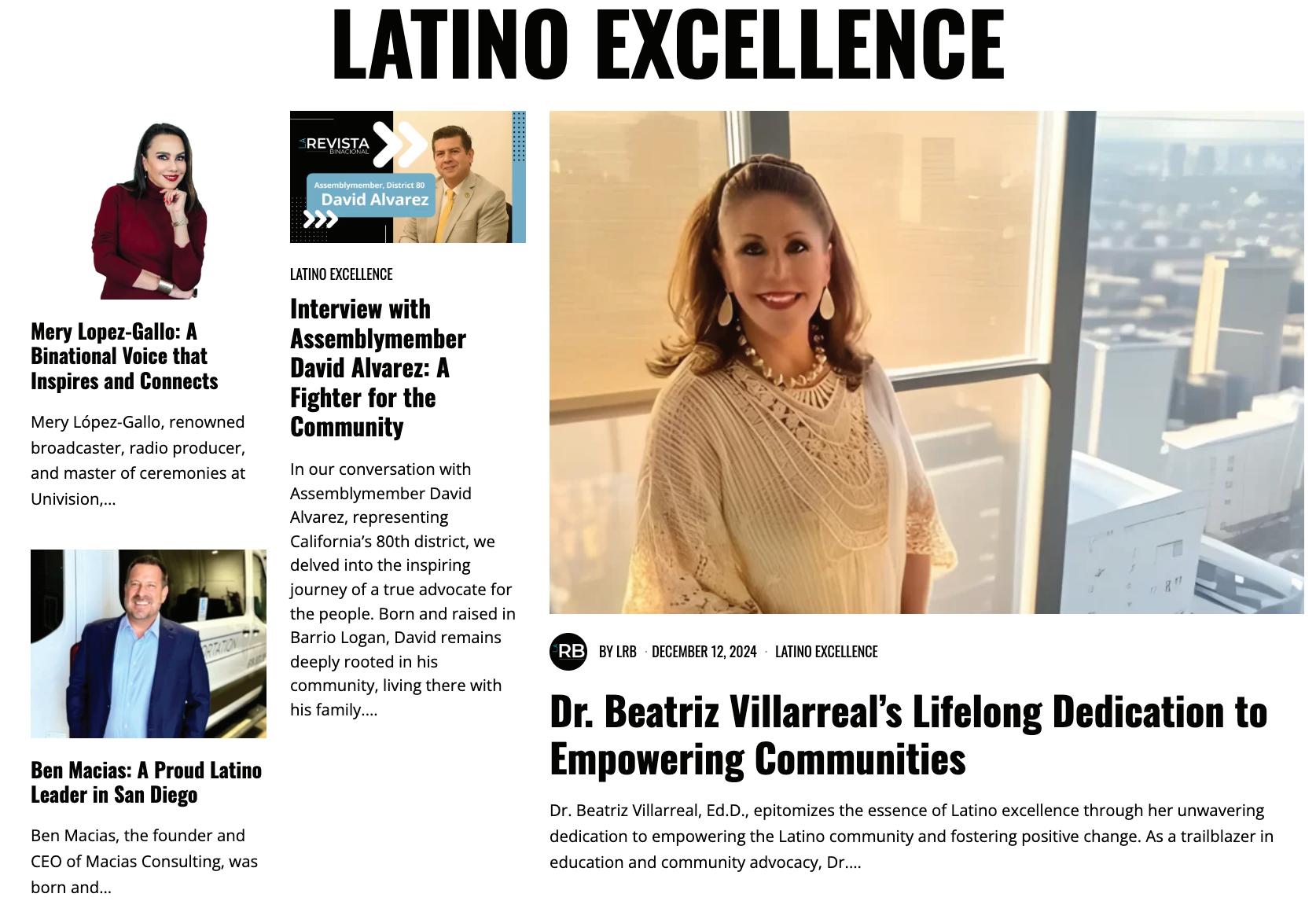
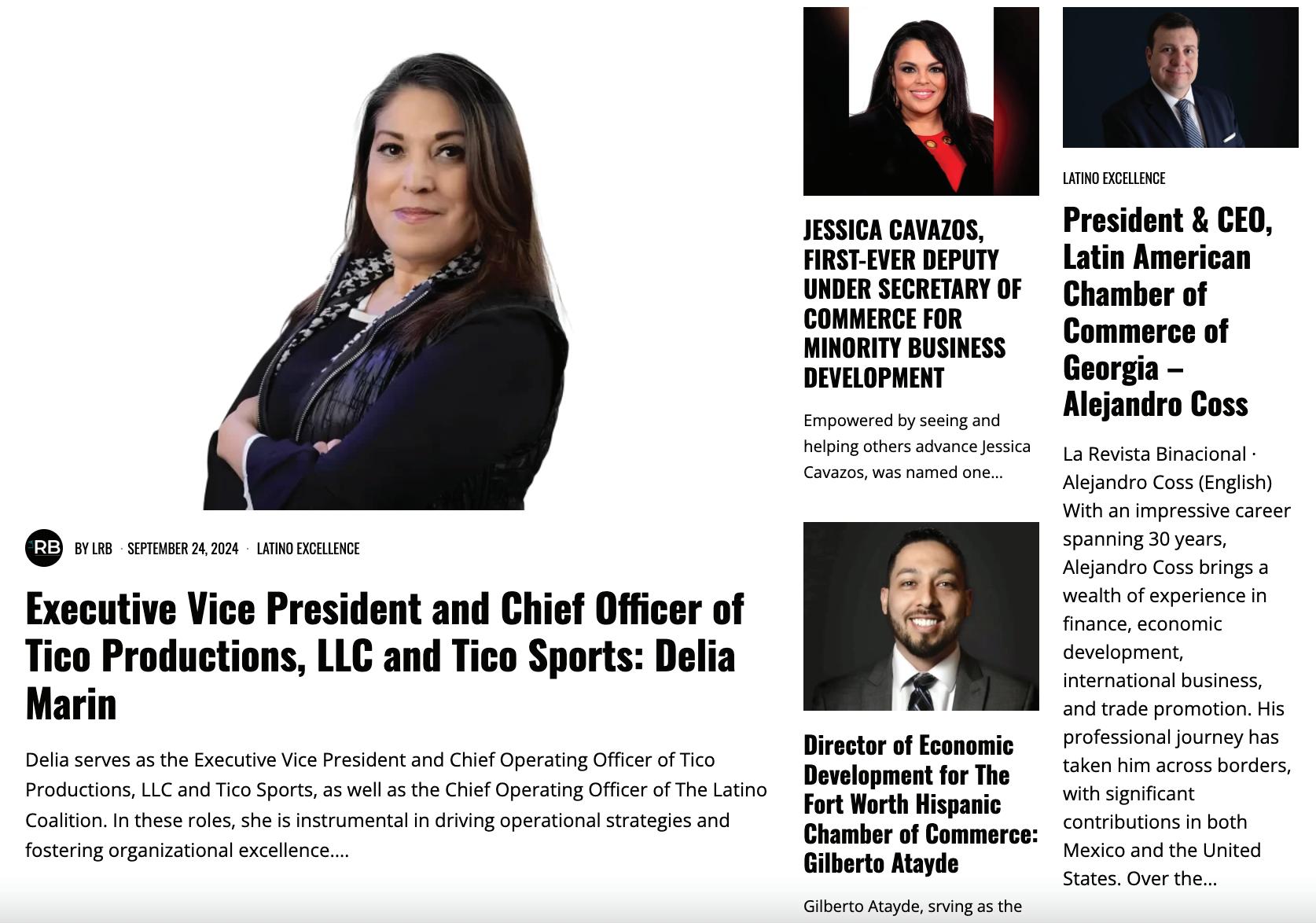



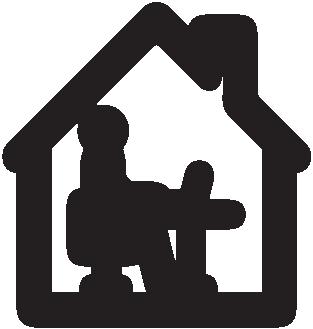



With a life dedicated to social justice, Dolores Huerta is preparing to close a historic chapter of activism that has profoundly transformed Latino communities in the United States. Co-founder of the farmworker movement with César Chávez, her voice, courage, and tireless energy have been a beacon and guide for millions of immigrants, women, workers, and youth for more than six decades.
On the eve of her retirement, we celebrate not only a legendary leader, but also a woman who never stopped fighting, organizing, or inspiring. This is a journey through her story, her legacy, and the message she leaves for those who today take up the baton in the fight for equity and human dignity.
Dolores Huerta’s destiny would be marked from a very young age by the injustices she witnessed around her. Born in Dawson, New Mexico, to a family of Mexican roots, Dolores is the daughter of Juan Fernández, a farmworker and miner, and Alicia Chávez, a businesswoman and community activist. From a young age, Dolores saw her mother as a model of strength and generosity: a woman who did not hesitate to open the doors of her hotel to provide shelter to homeless immigrant families.
During her childhood, she was primarily influenced by her mother; this example of solidarity and community commitment left a profound impression on Dolores, teaching her that helping others is also an act of justice. From an early age, Dolores showed interest in equality and social justice. She became actively involved in clubs and extracurricular activities in high school and excelled at her studies. After graduating, she attended the University of the Pacific’s Stockton College, where she trained as a teacher. She married Ralph Head and had two daughters, Celeste and Lori.
With a life dedicated to social justice, Dolores Huerta is preparing to close a historic chapter of activism that has profoundly transformed Latino communities in the United States

From a young age, Dolores saw firsthand the injustices experienced by farmworkers and immigrant families. As a teacher, she observed firsthand the hardships of her students, who arrived at school hungry and without shoes, and realized she could have a greater impact outside the classroom: organizing, fighting, and speaking out for those who weren’t heard. With the goal of helping organize the parents of her students, who were mostly farmworkers, she left teaching to dedicate herself to social activism. In 1955, she co-founded the Stockton chapter of the Community Service Organization (CSO), with a focus on improving the living conditions of the Latino community. During this time, she met César Chávez, with whom she shared the same interests in fighting for farmworkers’ rights.
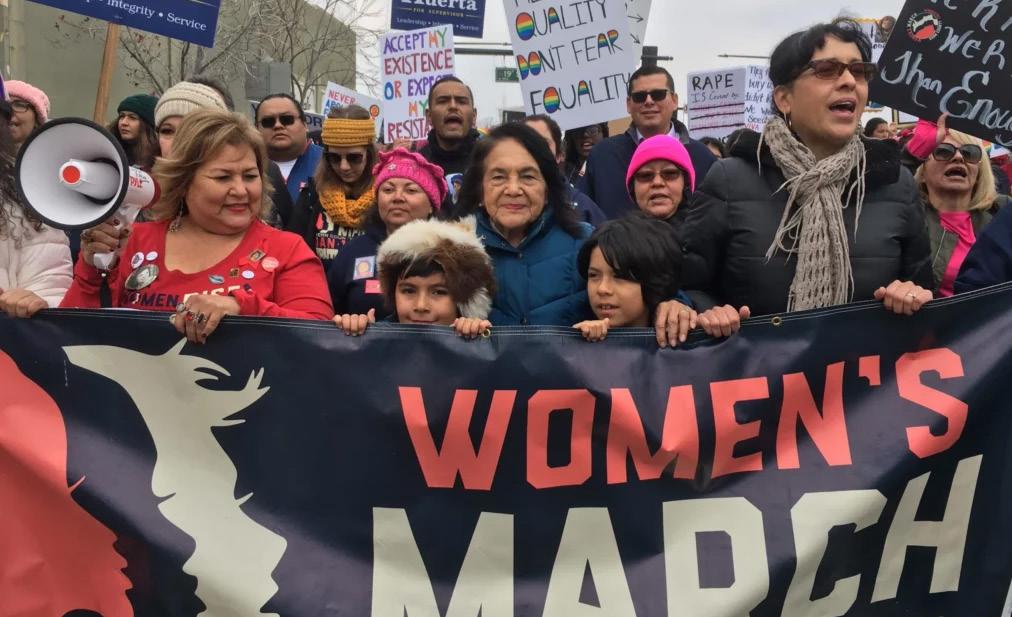
In 1962, she co-founded the National Farm Workers Association with César Chávez, fighting for better working conditions and workers’ rights. Her organizing and negotiating skills were key in securing labor rights, including access to disability insurance and pensions. Her early training in education, combined with her experience as a Latina woman in a deeply unequal society, fueled her activism. Beyond her union work, Huerta has been a powerful voice advocating for the rights of women, immigrant communities, and LGBTQ+ people.
Throughout her career, she has received multiple honors, including the Presidential Medal of Freedom, awarded by President Barack Obama in 2012. A pioneer of Latina activism in the United States, Dolores Huerta is a key figure in the fight for civil, labor, and women’s rights.
Her legacy lives on through the Dolores Huerta Foundation, an organization dedicated to empowering marginalized communities through education, organizing, and public policy advocacy. It continues to inspire new generations of Latinas and Latinos to speak out, organize, and fight for a more just country for all.

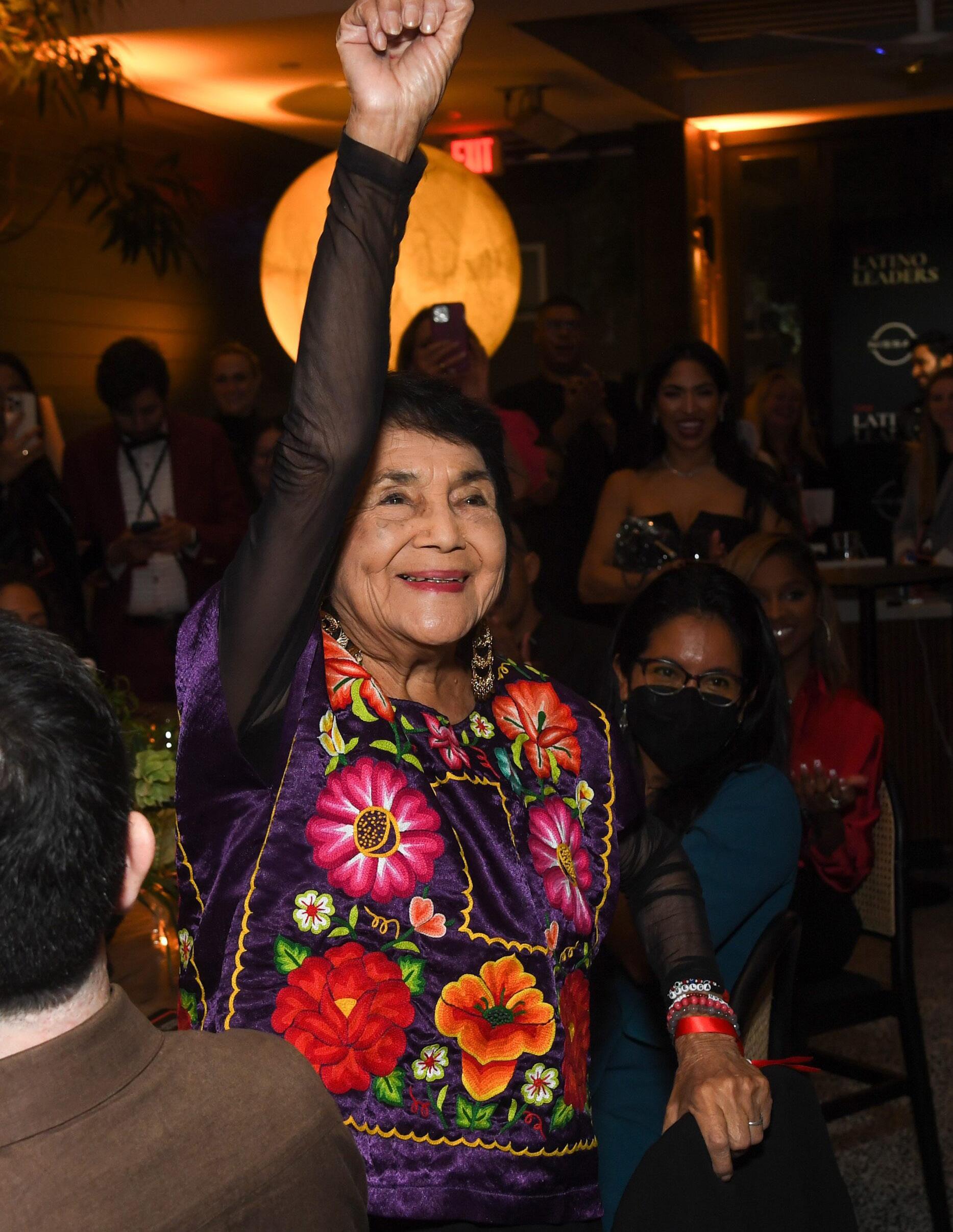

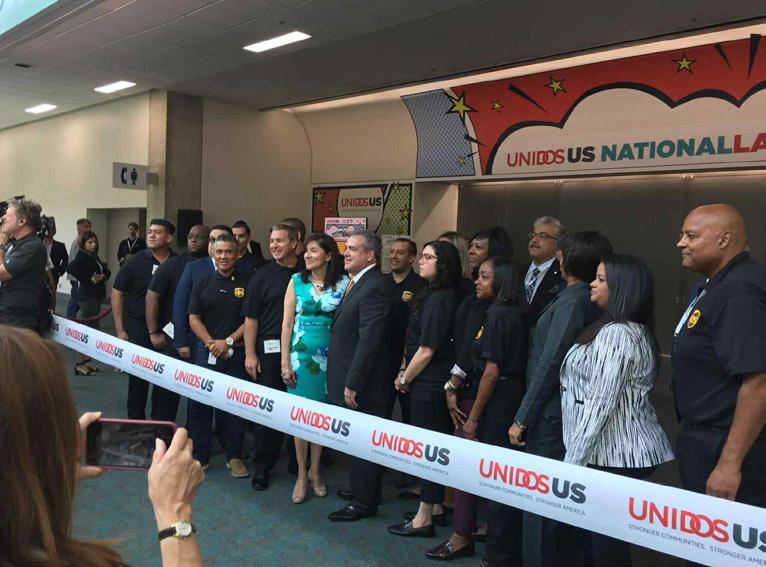
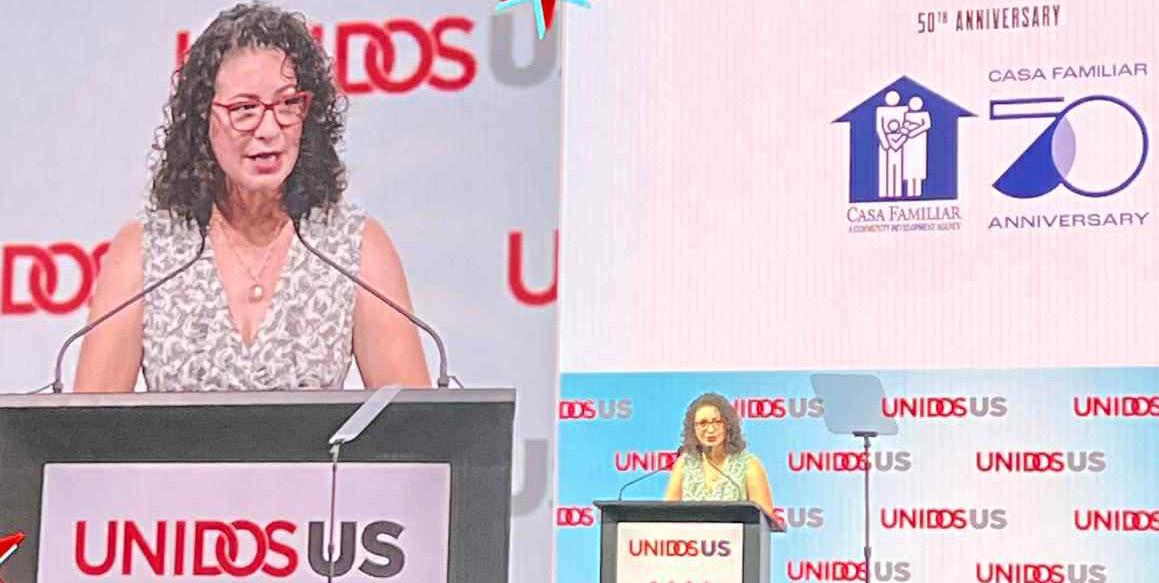


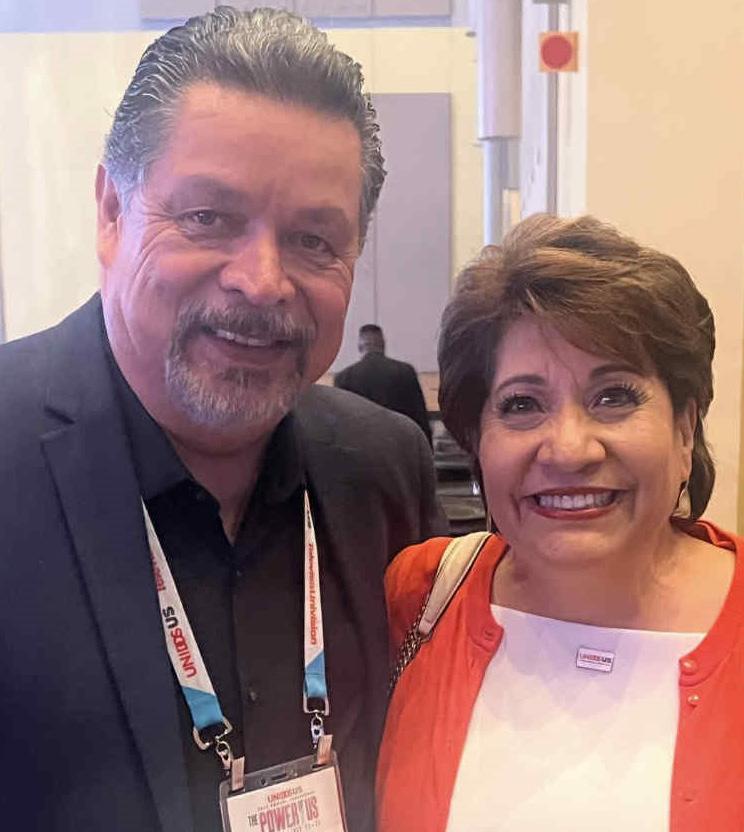
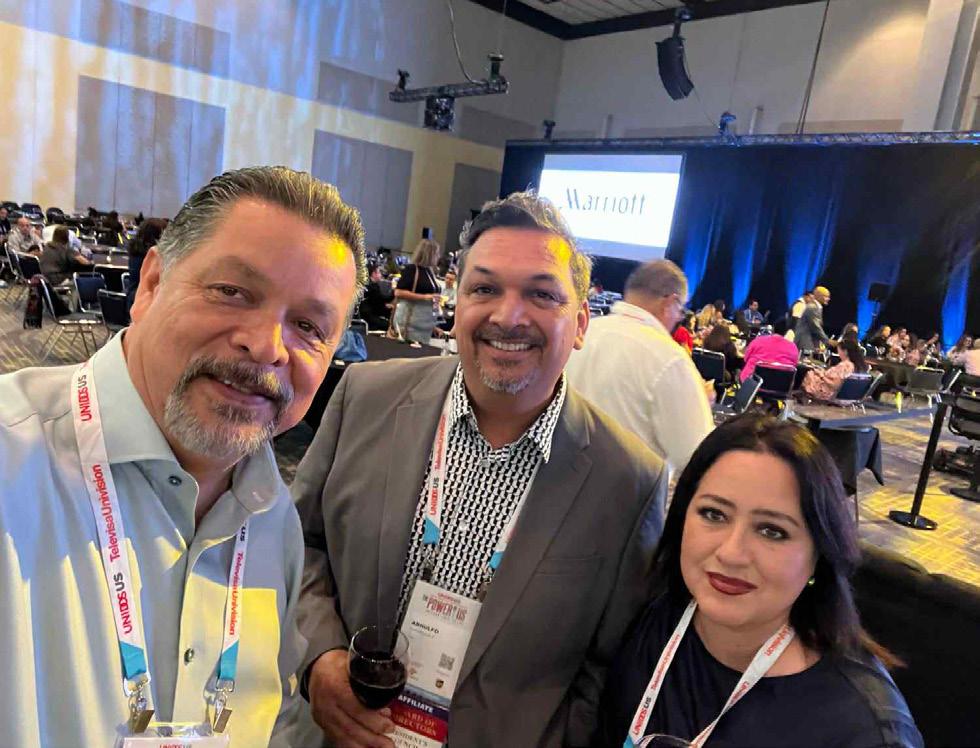
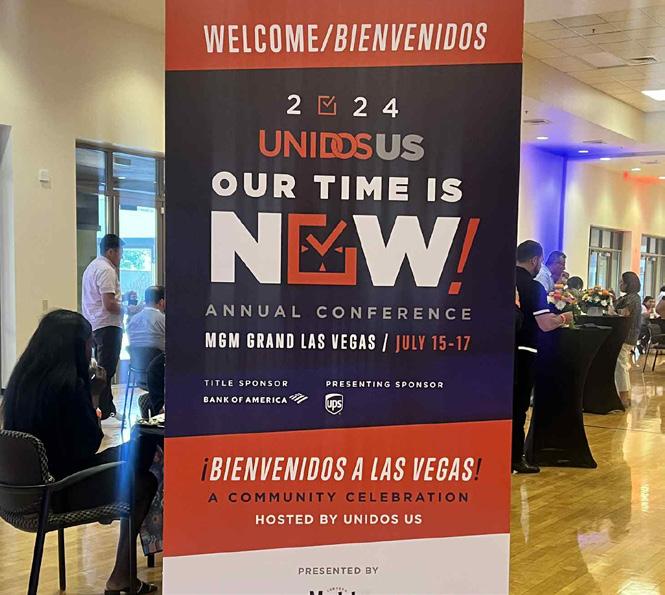
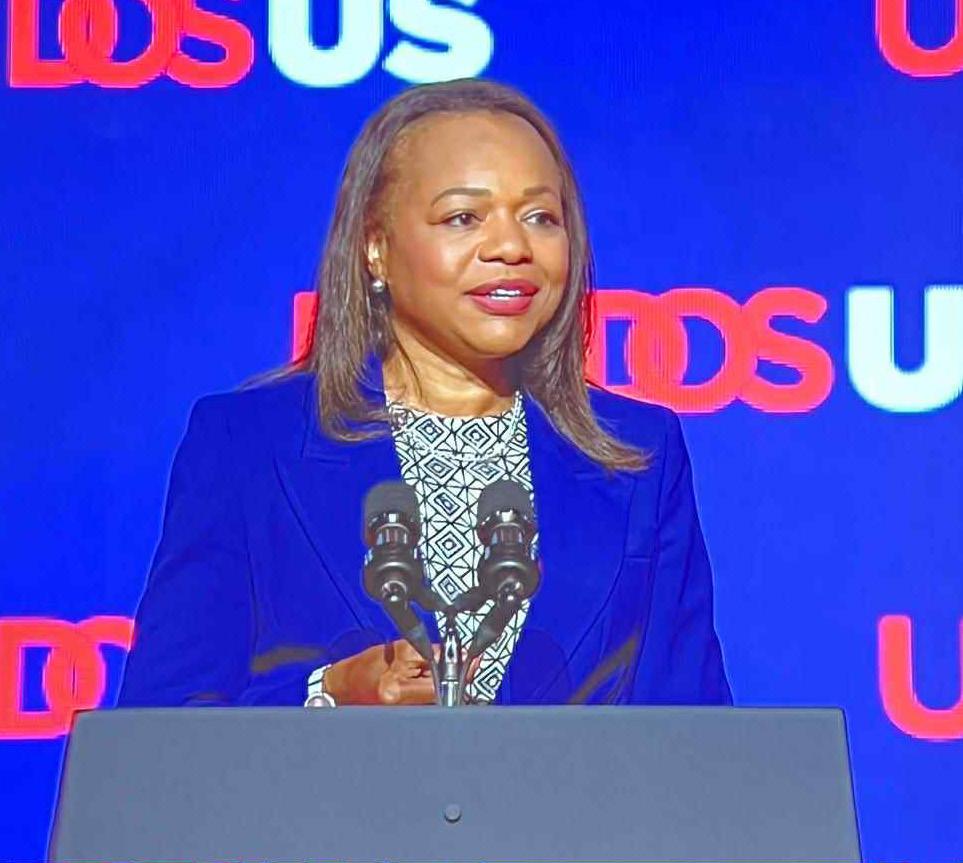

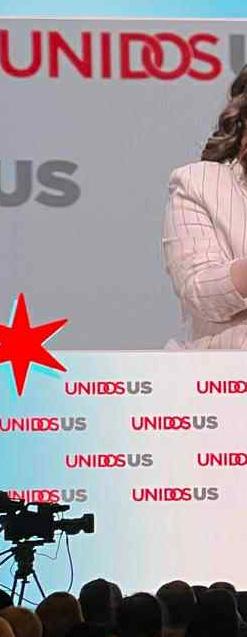


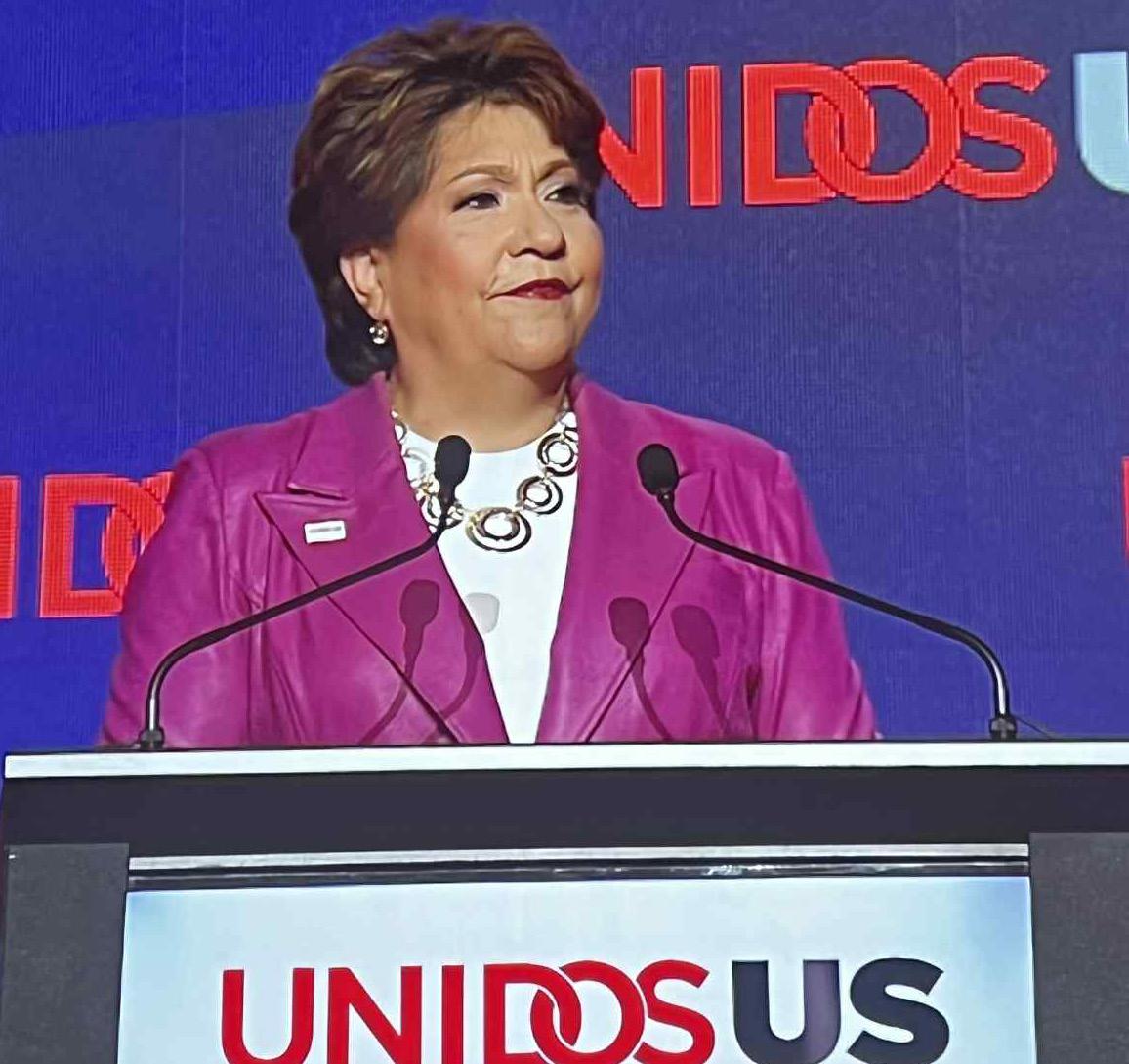
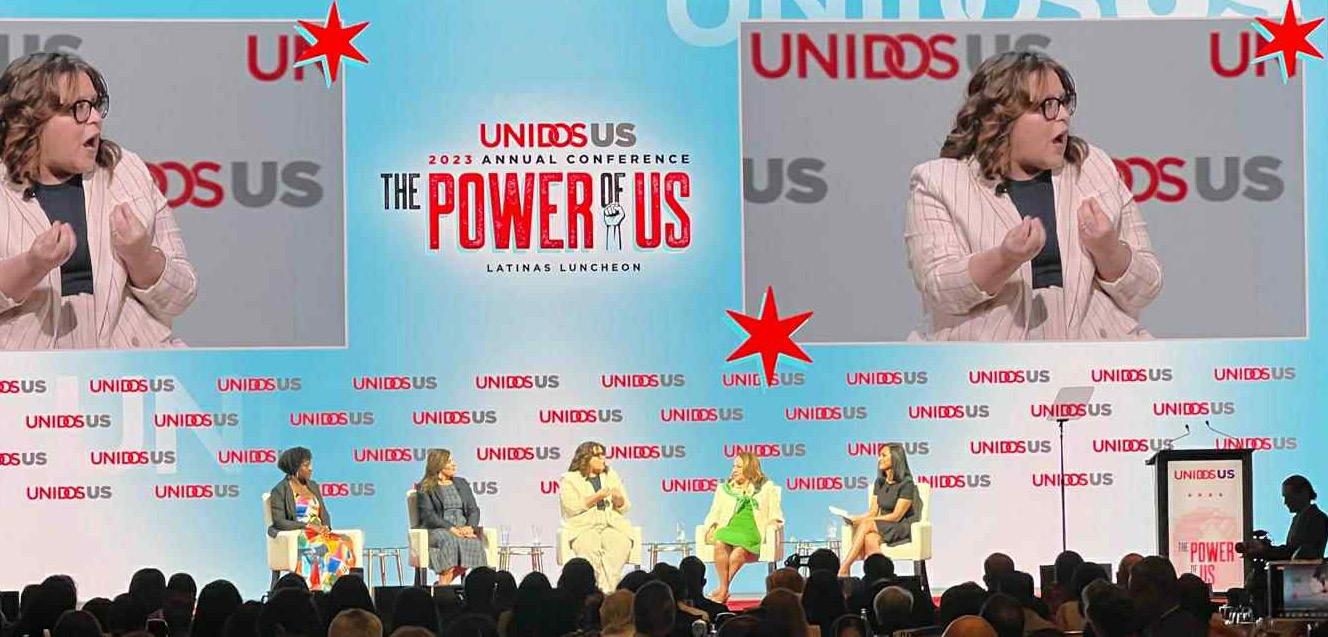
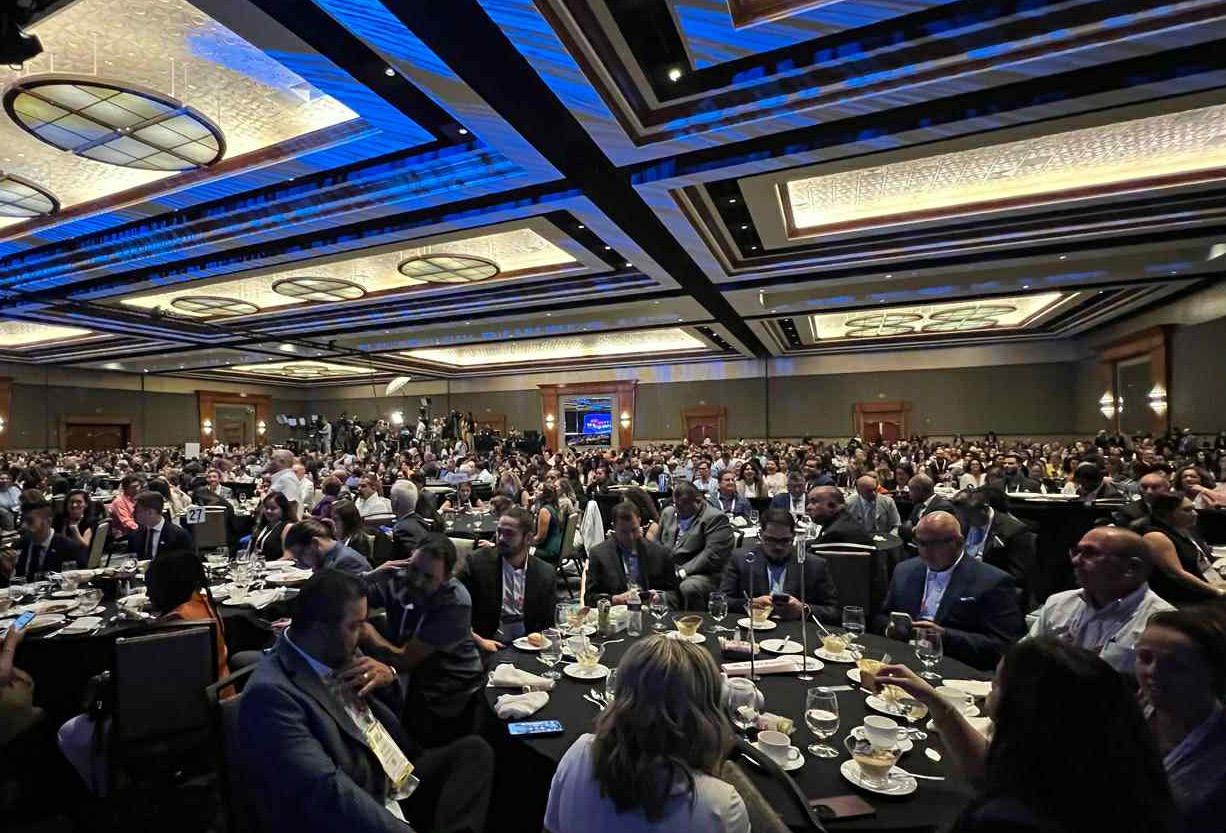
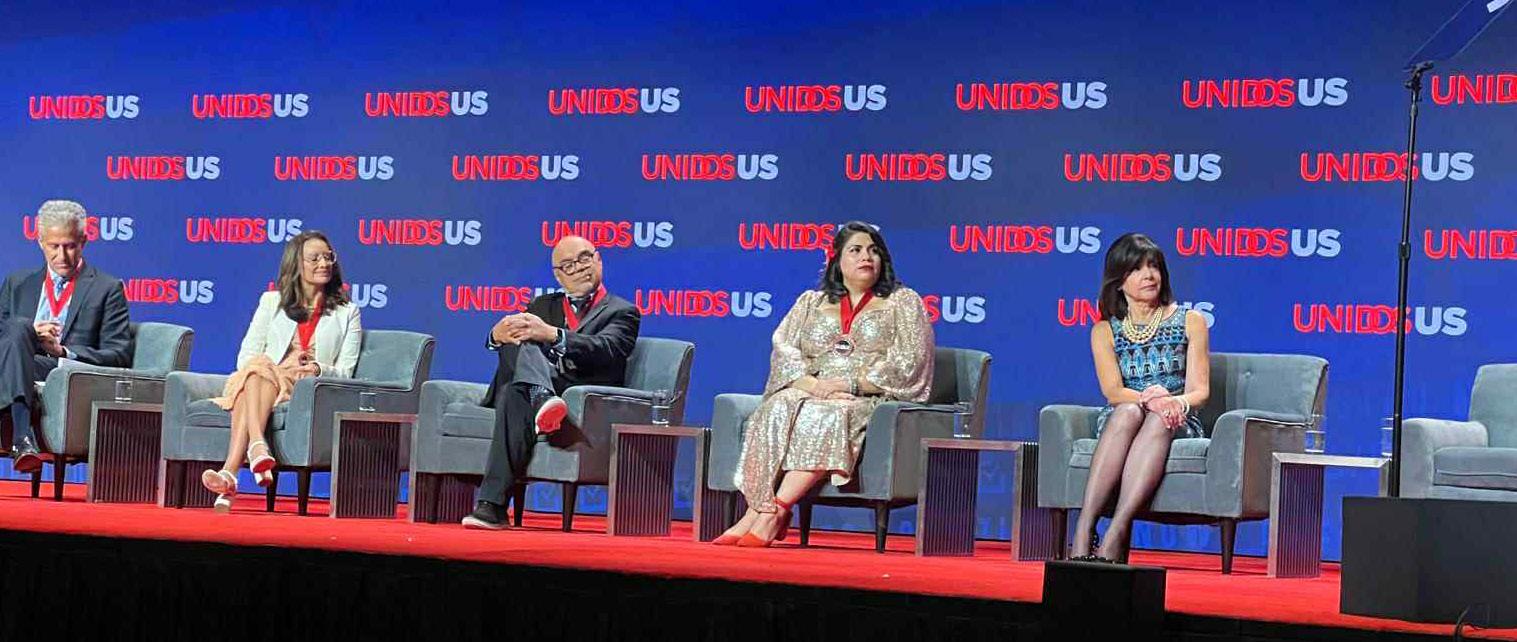

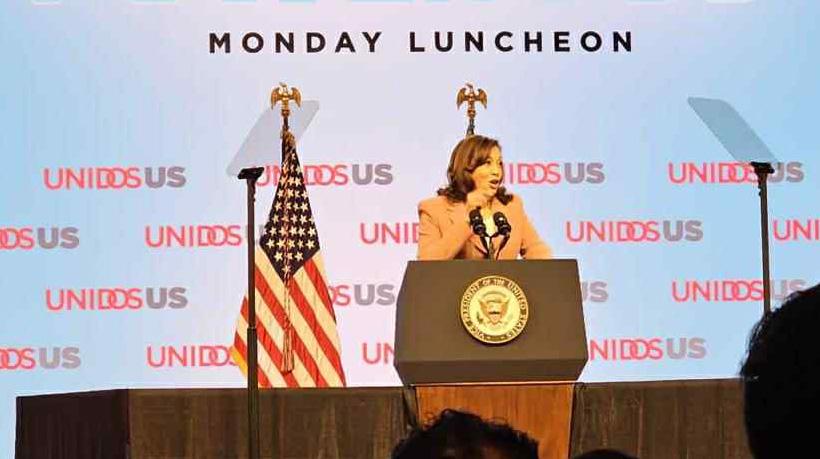


by authors Ámbar G. Picasso and Martha Eréndira Castorena

The book The Price of Migrating by Ambar G. Picasso and Martha Eréndira Castorena is a must-read for anyone who has left their native land, has family members who have migrated, or is considering leaving their homeland—especially in today’s climate, where public discourse around migration is often negative.
It portrays migration as a natural act that has been part of human evolution for millennia. Rather than discussing migration as a detached phenomenon, it presents it as a profound act of courage. Migration is a global experience as old as human history, and its relevance continues to grow due to ongoing conflicts, climate change, and their consequences.
Migration is a fundamental part of the human experience, impacting people across the globe. According to United Nations data, there were 281 million international migrants in 2020, representing 3.6% of the world’s population. Regardless of their legal status, all migrants have human rights and deserve dignity and respect, as migration is an inherent human right.
Migrants often suffer interpersonal, and material losses related to migration, along with more abstract losses—such as those of status, social roles, identity, and communication. While these losses are common and impactful, they are frequently overlooked in research, particularly the abstract ones that lack social recognition. Despite the limited research on migratory grief, this book highlights the link between migration and an increased prevalence of mental distress.
Throughout its chapters, the book serves as a practical guide to identifying and understanding the emotional processes associated with migratory grief. It provides tools to help readers find the language to describe their experiences and learn how to cope with the wide range of emotions that come with migration. Its goal is to support migrants and their families as they adapt to new lives, manage stress and sadness, and work toward achieving a better quality of life in their host country.
Grief is a natural psychological process that helps individuals cope with the emotional pain of loss. Migration-related grief, thoroughly investigated by Dr. Joseba Achotegui, is a complex emotional experience involving the loss of familiarity and the challenge of building a new identity. It is often partial, recurrent, and deeply connected to childhood experiences, which can resurface unresolved emotional wounds. This type of grief unfolds in phases—from denial to acceptance and integration—and affects not only the migrant but also their loved ones. In some cases, it can even become transgenerational.
Transgenerational migratory grief occurs when migrants, unable to express their pain, internalize their emotional suffering. This unspoken grief can be passed down to their children, often without words. To prevent this, it is important to acknowledge grief, seek professional support, and cultivate a sense of gratitude toward both the country of origin and the new homeland. Sharing these reflections and emotions with children can foster healing and a more resilient sense of identity.
Migratory grief involves experiencing various simultaneous grieving processes, such as:
• Mourning for Language
• Mourning for Culture
• Mourning for Land
• Mourning for Social Status
• Mourning for Belonging
• Mourning for Physical Risks
These simultaneous grieving processes can emotionally destabilize a person, creating both internal and external turmoil. The intensity of grief varies depending on several factors, but one of the most significant is the nature of the migration itself—whether it was voluntary or a more intense, forced migration.


Forced or aggravated migration can produce emotional stress so severe that it may lead to what is known as Ulysses Syndrome, or Migrant Syndrome. This condition, identified by Dr. Joseba Achotegui and named after the mythological figure Ulysses, is characterized by chronic stress, anxiety, and depression. It can also manifest through physical symptoms such as fatigue, headaches, changes in appetite, and other psychosomatic issues. When emotions are not acknowledged or expressed, they can contribute to serious health problems. This is why it is essential to seek emotional support and adopt effective stress management strategies.
While migration often involves high levels of stress, being well-informed about its challenges and the resources available can empower migrants to navigate the journey more successfully. Although the path may be difficult, there are community organizations and inspiring success stories that highlight the valuable contributions migrants make to their host societies.
In this book, Ambar and Martha Eréndira—both migrants with backgrounds in psychology— share their personal and professional experiences to create a guide that brightens the journey of immigrant families. They emphasize that migration is not just about crossing borders; it is a process of rebirth.
We invite you to discover and read this powerful book, which offers a perspective on migration that is both empowering and healing. It will help you embrace a more fulfilling life, wherever you have chosen to settle.
The Price of Migrating (El Precio de Emigrar) is currently available in Spanish on Amazon.
The English version will be released in Fall 2025— coming soon!
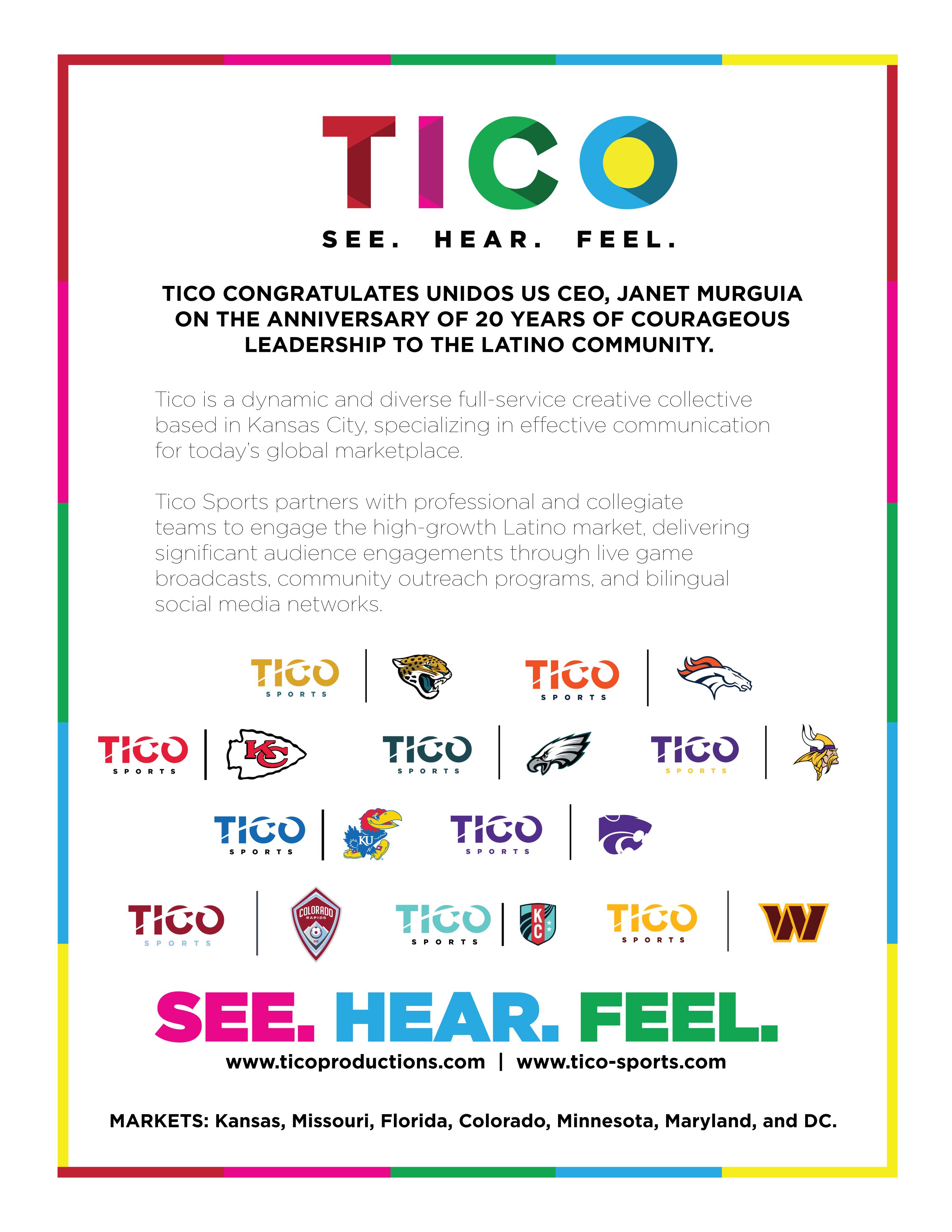

With deep admiration, we honor Janet Murguía , a #DistinguishedDoer whose leadership has not only shaped UnidosUS, but has also ignited lasting prosperity across our communities. Janet’s unwavering commitment to justice, equity, and Latino empowerment is a beacon for all striving to lead with purpose and heart.
At Breakthrough Mavens, we believe that true progress is powered from within by values, by integrity, by action, and by ganas. Janet, thank you for showing us what it means to act and lead with all four.

Mark L. Madrid, CEO & Founder B Breakthrough Mavens, LLC
Fueling Excellence & Longevity with Blue Collar DNA





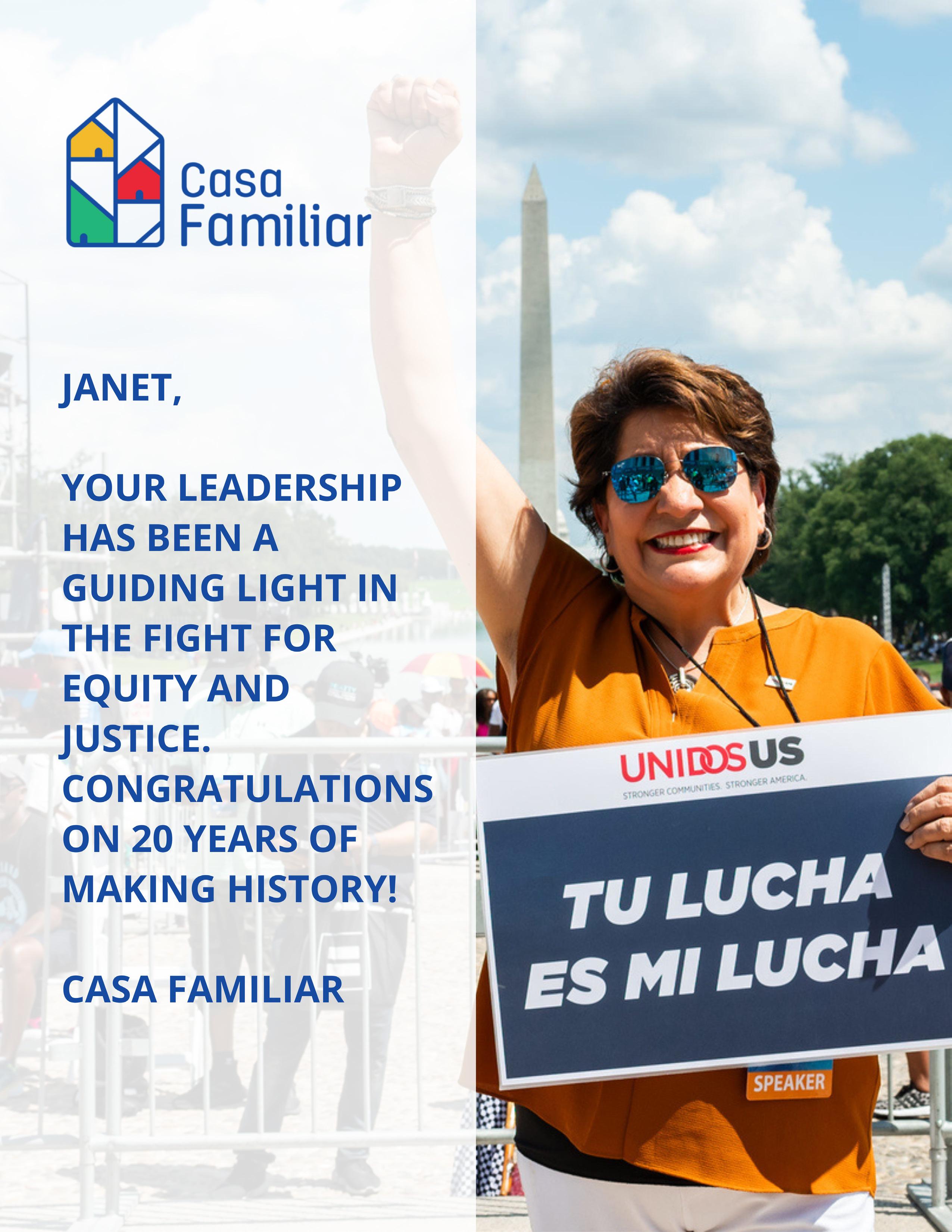

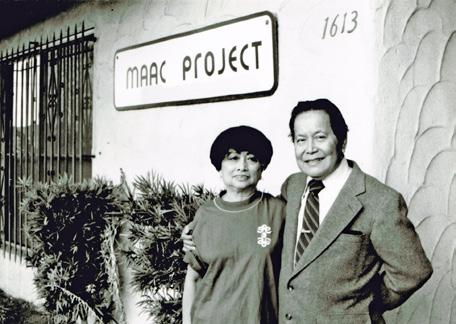
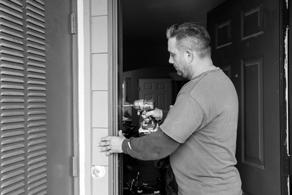
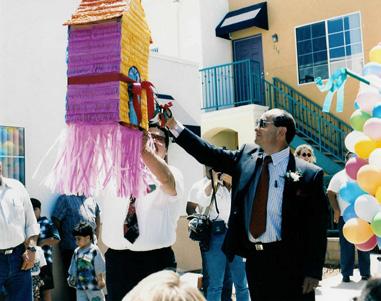
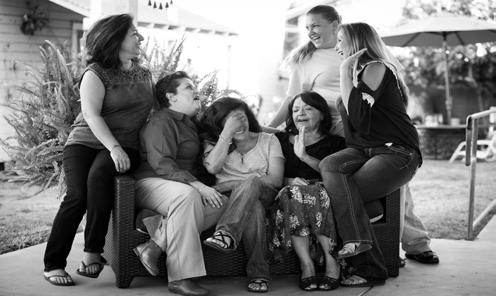
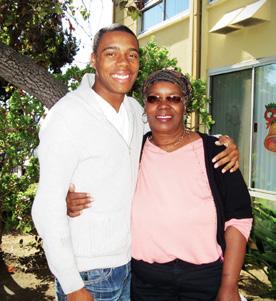
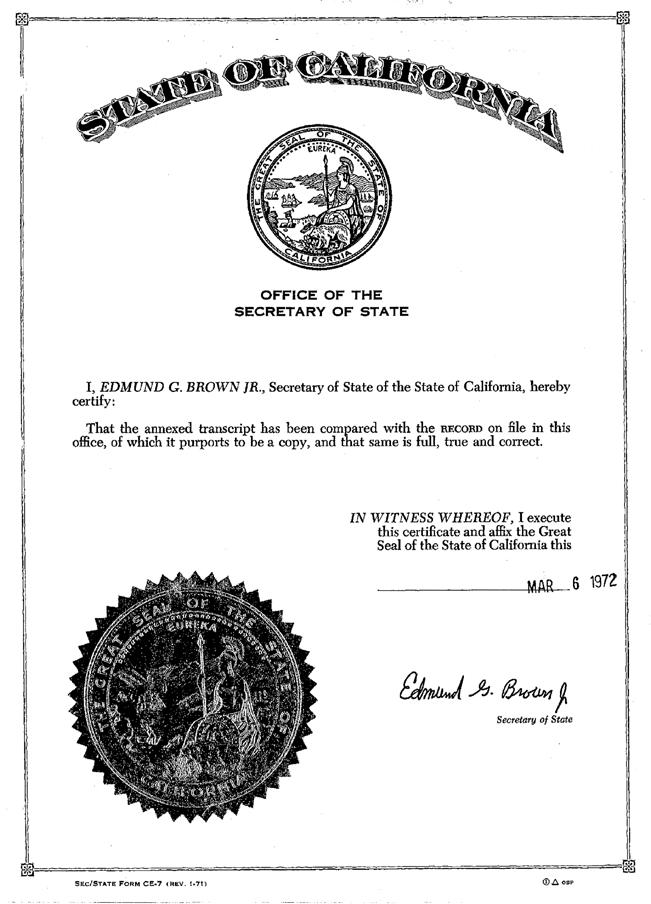
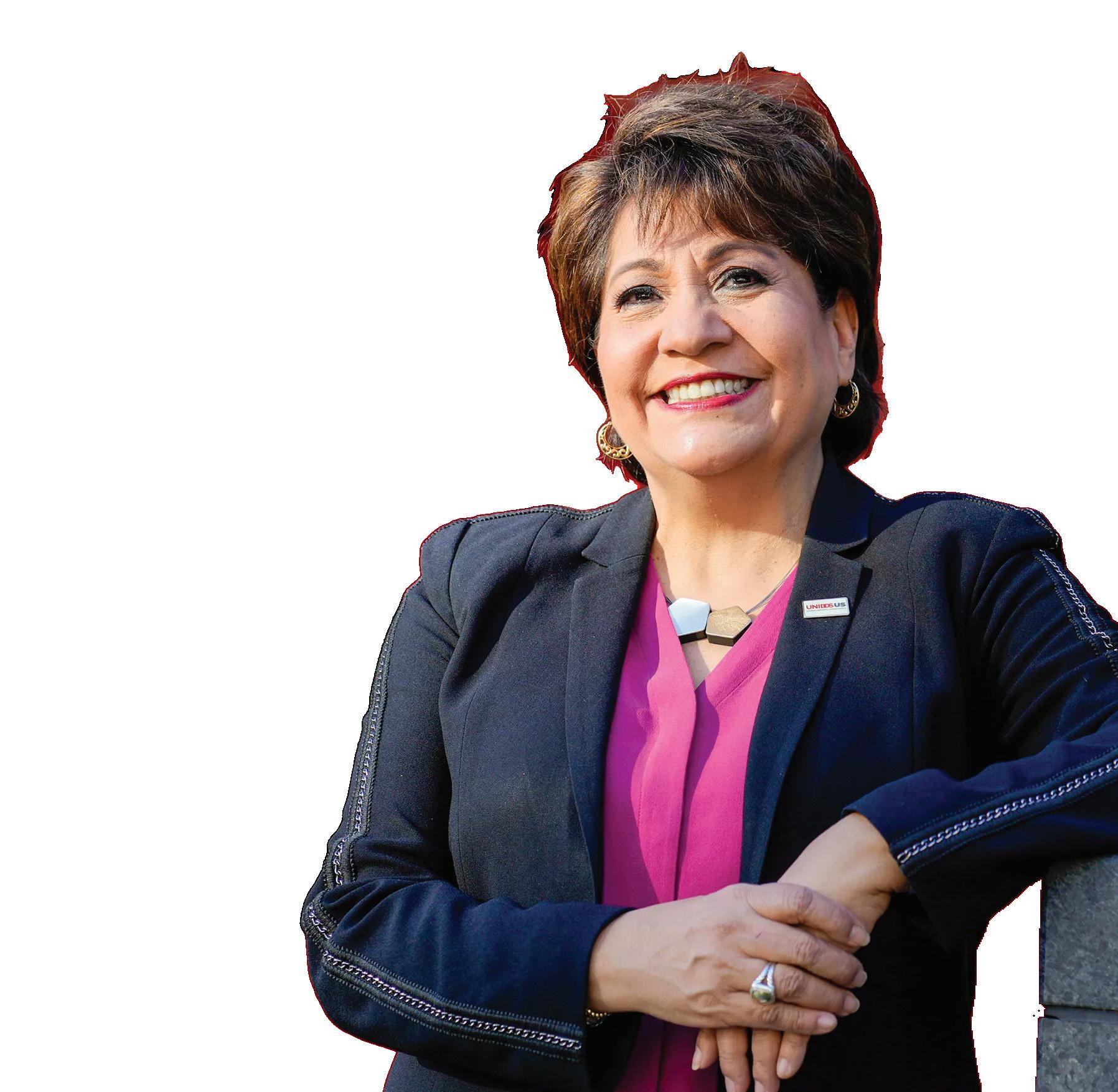
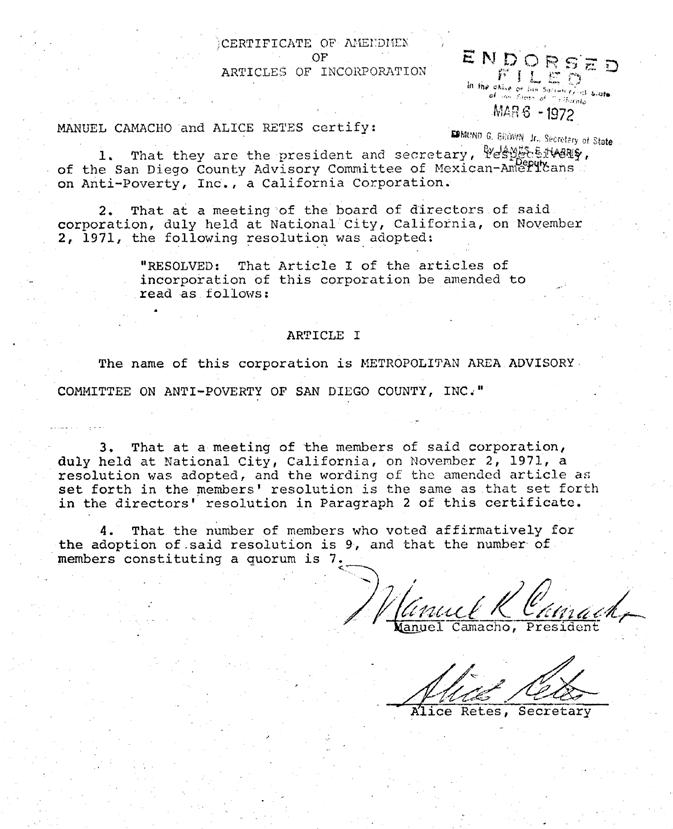
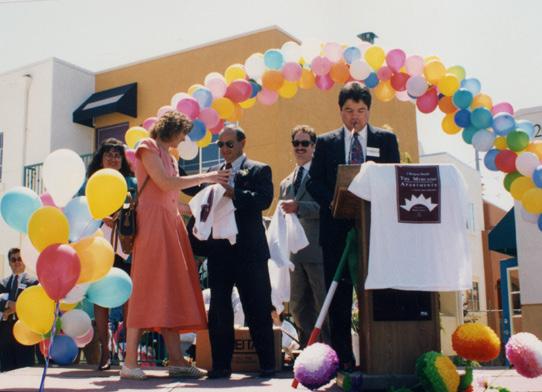
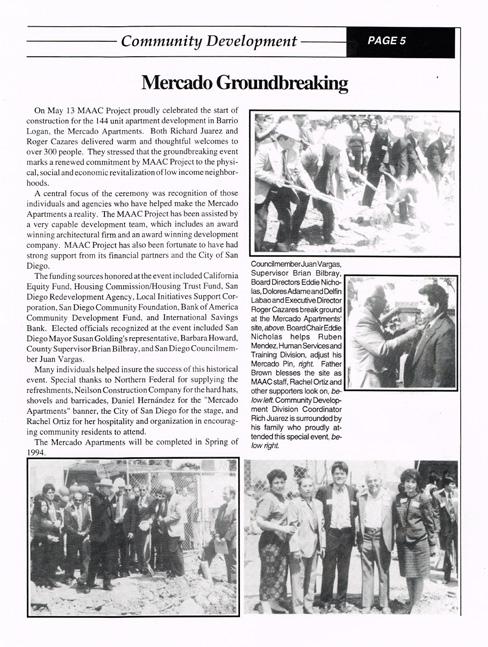
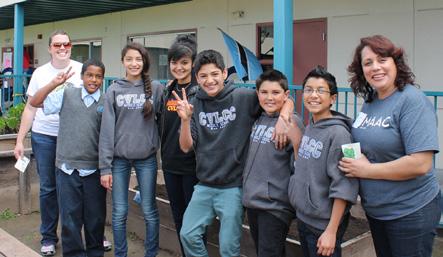

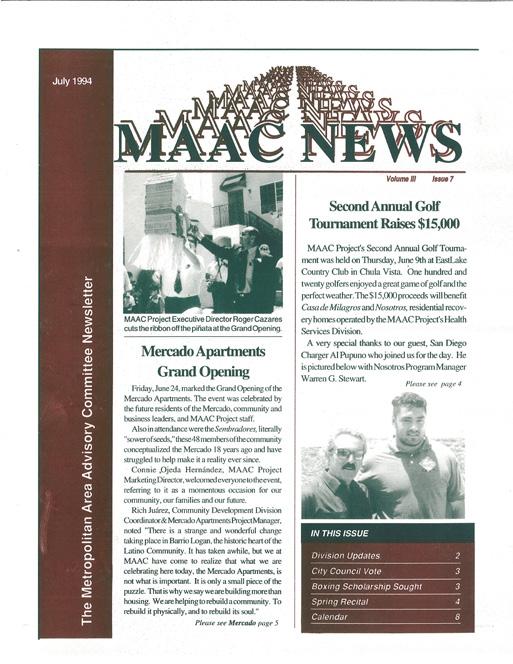
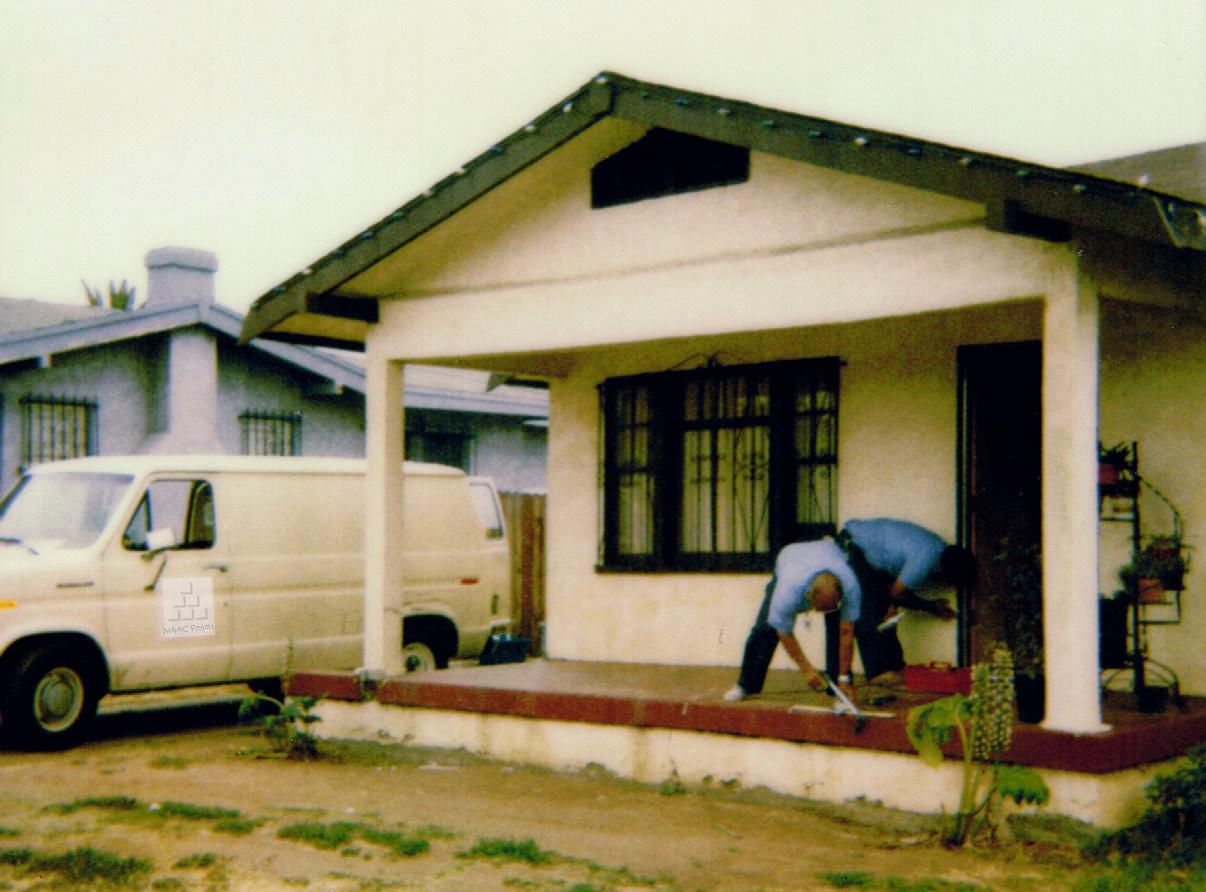
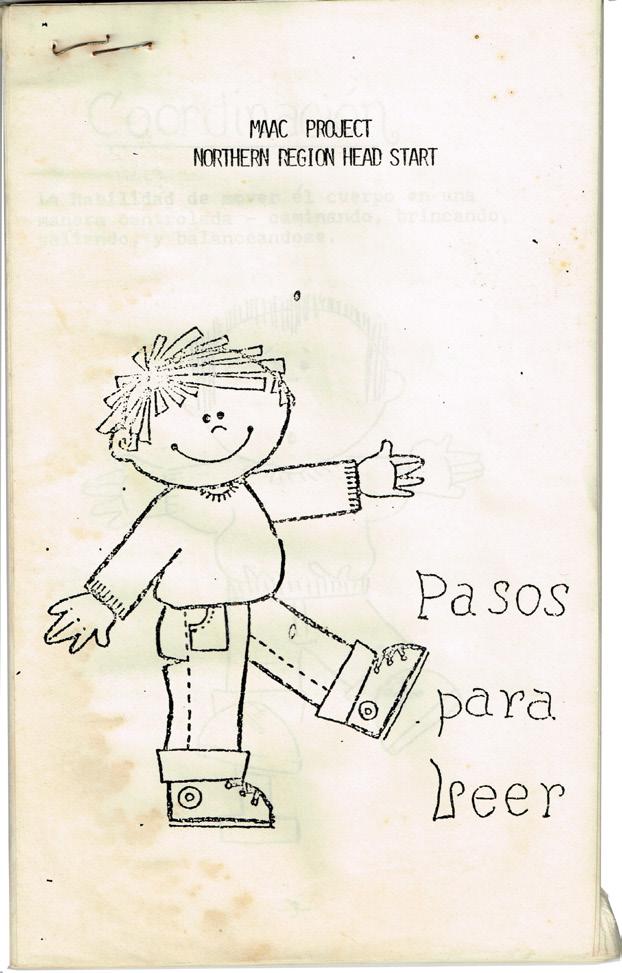

the State of California. For six decades, MAAC has been a catalyst for change and a powerful advocate for individuals and families across San Diego County, opening doors to brighter futures and helping dreams take flight through education, housing, health, and economic opportunity. As we mark our 60th anniversary, we invite you to be part of shaping MAAC’s future. Your support will launch new possibilities for the 100,000+ individuals and families we serve each year. Every dream deserves altitude. Let’s soar together. MAACproject.org
Since 1978, MAAC has been improving the energy efficiency of low-income families’ homes. The program supports the families’ economic stability by significantly reducing the money they spend on heating and cooling costs. It also ensures their health and safety by bringing technology up-to-date and assuring that there are no dangerous gas leak in the homes. An added bonus is bringing the j high-quality home improvements and a caring to individuals many of whom see their hom improved for the very first time since they mo in. The program continues to be provided toda through a partnership with San Diego Gas & E a
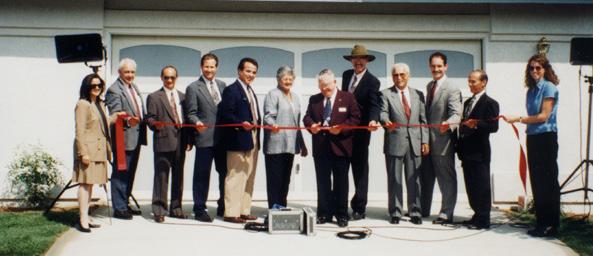

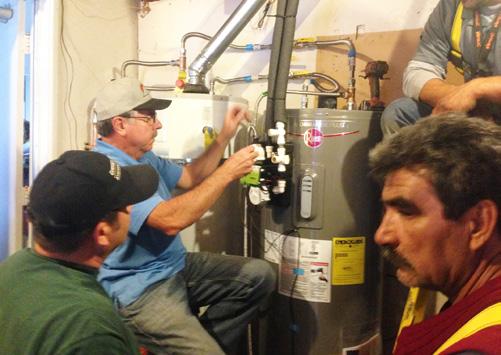
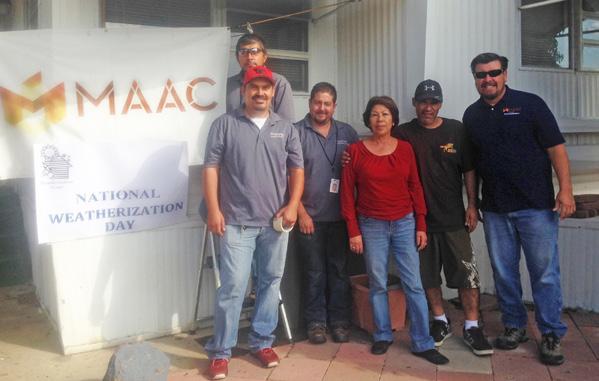
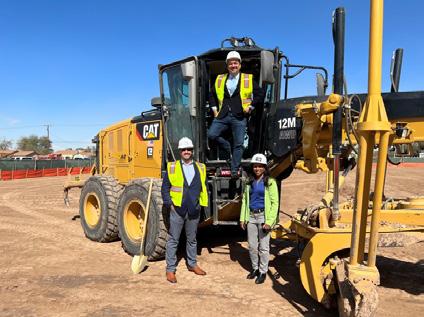
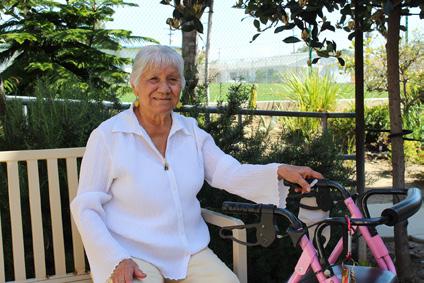

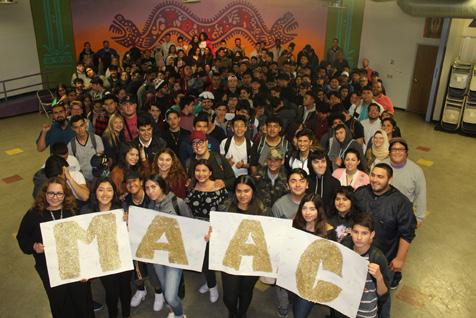



In 2025, MAAC (Metropolitan Area Advisory Committee on Anti-Poverty of San Diego County, Inc.) marks a significant milestone: its 60th anniversary. Officially incorporated on July 8, 1965, MAAC began as a grassroots movement in the National City, emerging during a period of profound societal transformation in the United States. Over the course of six decades, this organization has evolved into a driving force dedicated to fostering opportunity, dignity, and justice within the community.
Throughout its history, MAAC has witnessed and adapted to sweeping changes—civil rights movements, waves of migration, new policies, economic shifts, and cultural revolutions. Despite these changes, the organization has remained anchored in a core belief: that people possess the power to transform their own lives when provided with the right access, support, and environment.
MAAC’s evolution from a social service agency to a regional organization reflects its growing commitment not just to addressing immediate needs but to creating sustained, long-term opportunities. Today, MAAC supports individuals and families in building wealth, pursuing education, advancing careers, and achieving lasting stability.
As the organization celebrates its 60th anniversary, millions have found hope, opportunity, and empowerment through MAAC’s work, and many of them have gone on to become leaders, parents, professionals, and changemakers—spreading the organization’s impact even further. MAAC’s legacy isn’t static; it keeps multiplying with every new success story.
Join MAAC in commemorating this major milestone by donating or connecting with the organization to support its vital work, ensuring

Escucha en Español
that the organization’s vision of opportunity and empowerment continues for generations to come. For more information, visit MAACproject.org. Follow MAAC on Facebook and IG @MAAC1965.


Chicano Federation of San Diego County was established in 1969 by grassroots community leaders who fought and advocated for civil rights during the Chicano Movement. And while some things have changed in 56 years, this is a fight that it continues to carry on.
Today, the organization provides vital services and resources to historically marginalized San Diego communities. It offers programs such as early child and development, affordable housing, workforce development, and wraparound support through our Community Resource Center. Together, these programs help improve the lives of over 50,000 families and individuals each year.
Through their services, outreach, and current social and political climate, Chicano Federation sees firsthand the needs, challenges, and injustices that our comunidad faces daily. Because of this and their deep belief in the power we hold when we stand together and for each other, the Chicano Federation strives to form and invest in more grassroots leaders to create positive change and build resilience.
Chicano Federation’s LTI is a transformative program designed to equip emerging Latine community members with the tools, confidence, and skills to lead where they live and beyond. From 1985 to 2004, LTI graduated hundreds of fellows committed to strengthening and uplifting our comunidad. After seeing the increasing needs and the potential of San Diego’s rising leaders to drive lasting and meaningful change, CEO Liz Ramírez relaunched the Leadership Training Institute in 2023.
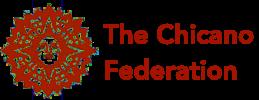
“Our communities already have the solutions. What they’ve been missing are the opportunities and support to lead,” says Liz Ramírez, CEO of Chicano Federation. “LTI creates pathways for people to step into leadership roles, advocate for their families, and inspire others to do the same.”
The impact of LTI is shifting power back to the people who are most directly impacted by social and economic inequities. Community power means people have the tools and the agency to create safer neighborhoods, demand better schools, and influence the policies that shape their lives.
In a time when systemic barriers continue to hold back communities of color, investing in leadership development is a necessity. Programs like LTI challenge the status quo and remind us that leadership and power doesn’t just come from boardrooms or government offices but from all of us.
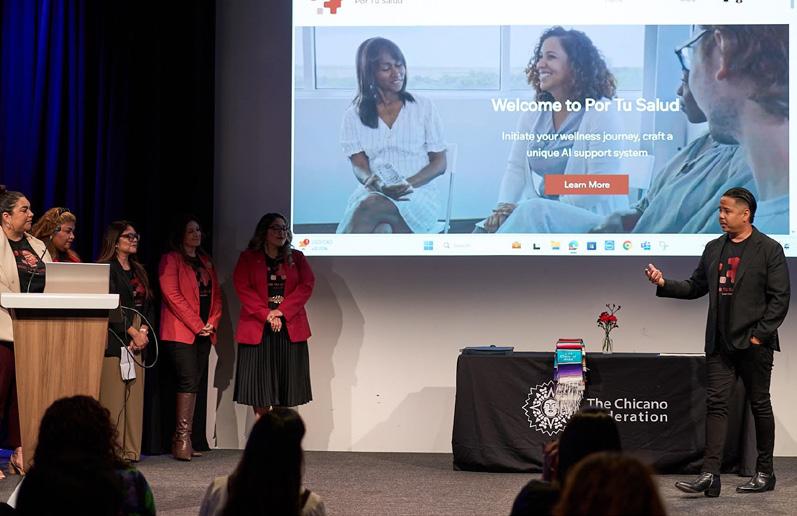
At its core, Chicano Federation believes in the power of meaningful connection and creating safe spaces where community members can come together just as they are. When people show up for one another with unity and purpose, there’s nothing we can’t achieve.
¡Unidos somos mas fuertes! For more information visit: www.chicanofed.org
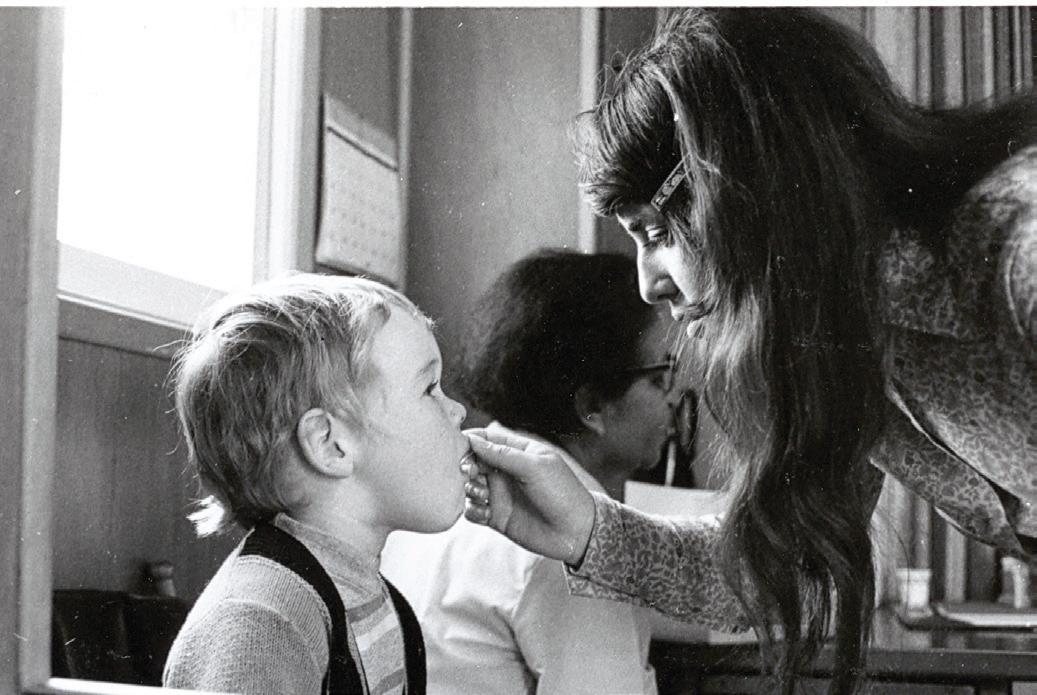
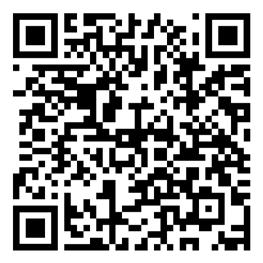
Throughout a 10-month series of workshops, hands-on activities, and mentorship, participants learn about community organizing, public speaking, advocacy, and civic engagement. Fellows develop capstone projects tackling issues and gaps that greatly impact the Latine community like housing insecurity, education, and health disparities, to make measurable impacts in the lives of thousands of San Diego County residents. More than a leadership course, LTI is also a space where lived experiences are honored, voices are amplified, and the power of collective action takes root.
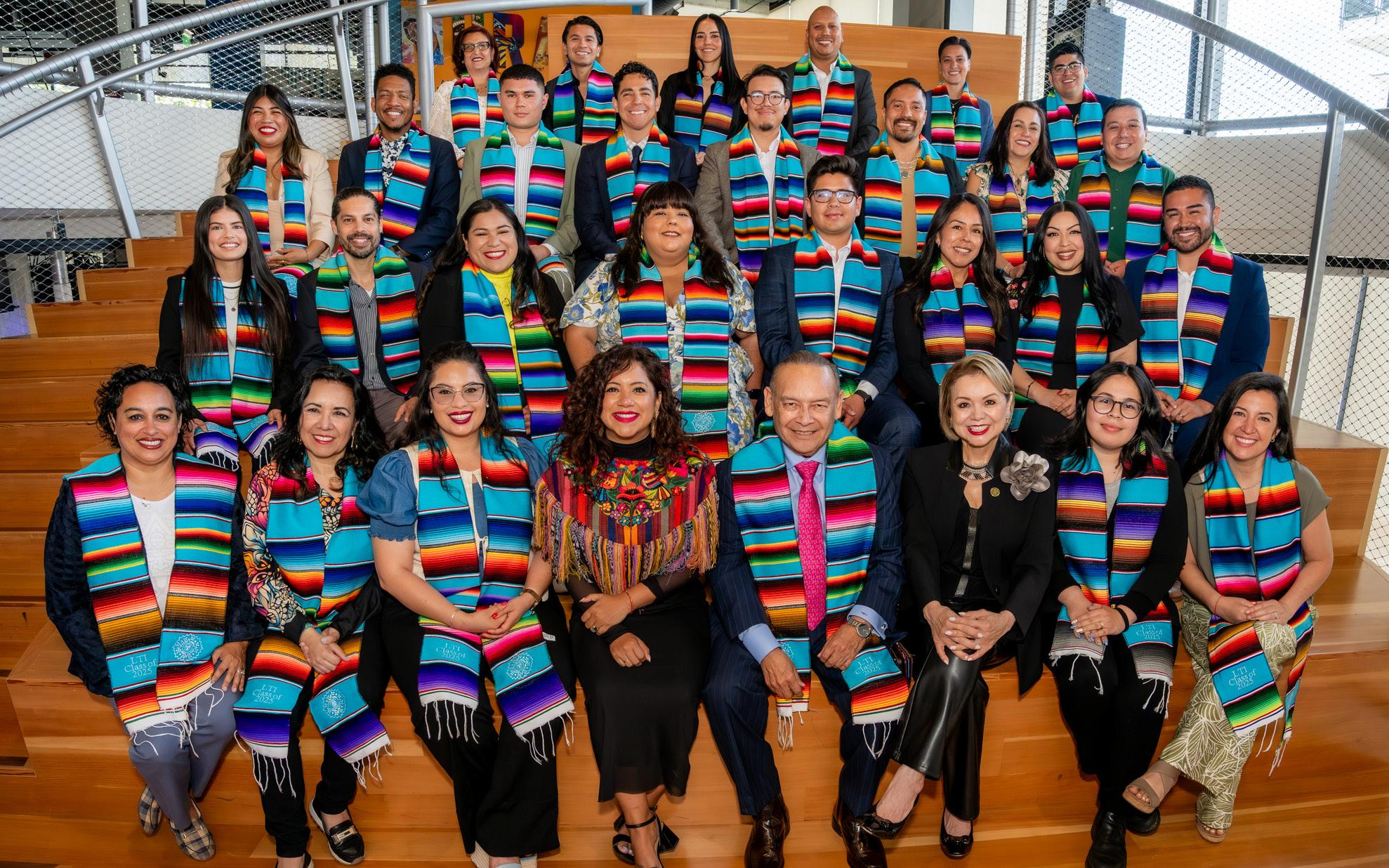
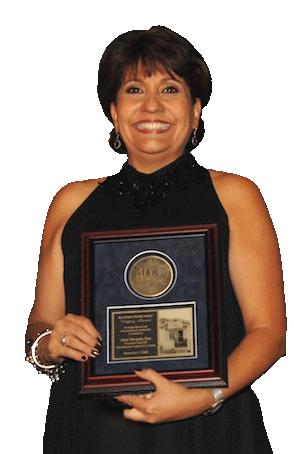
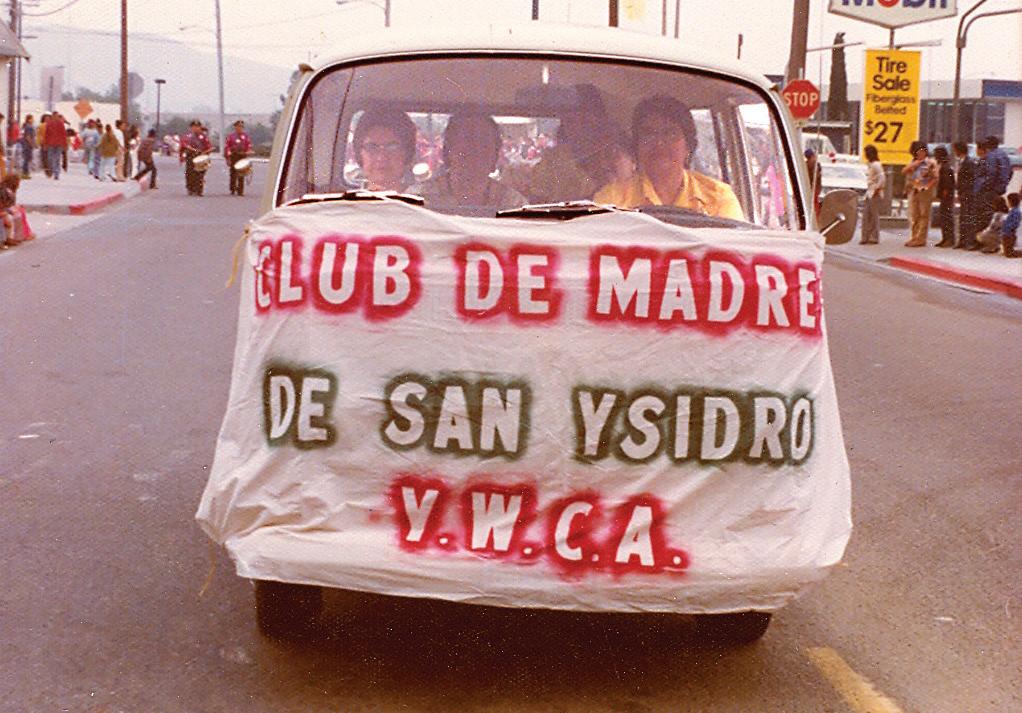




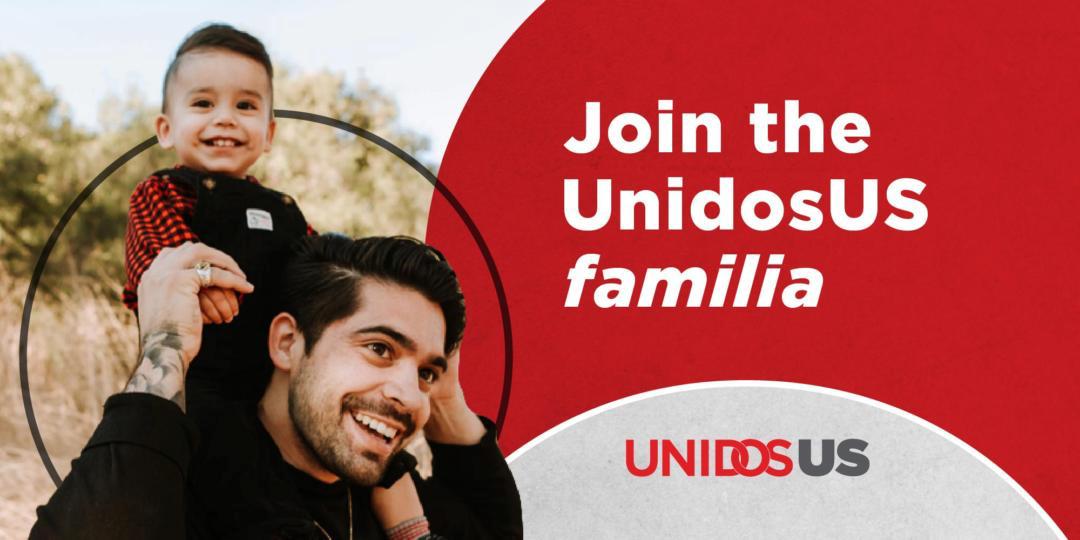

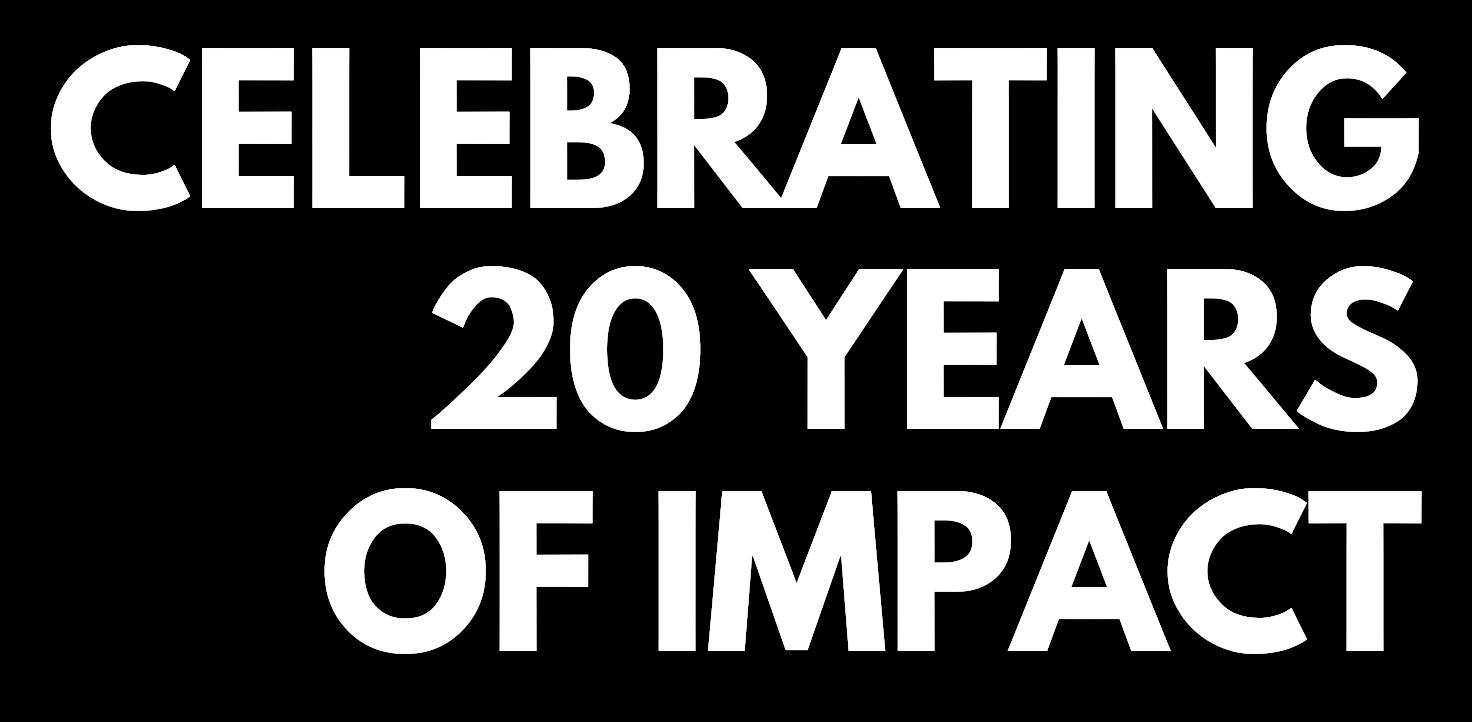
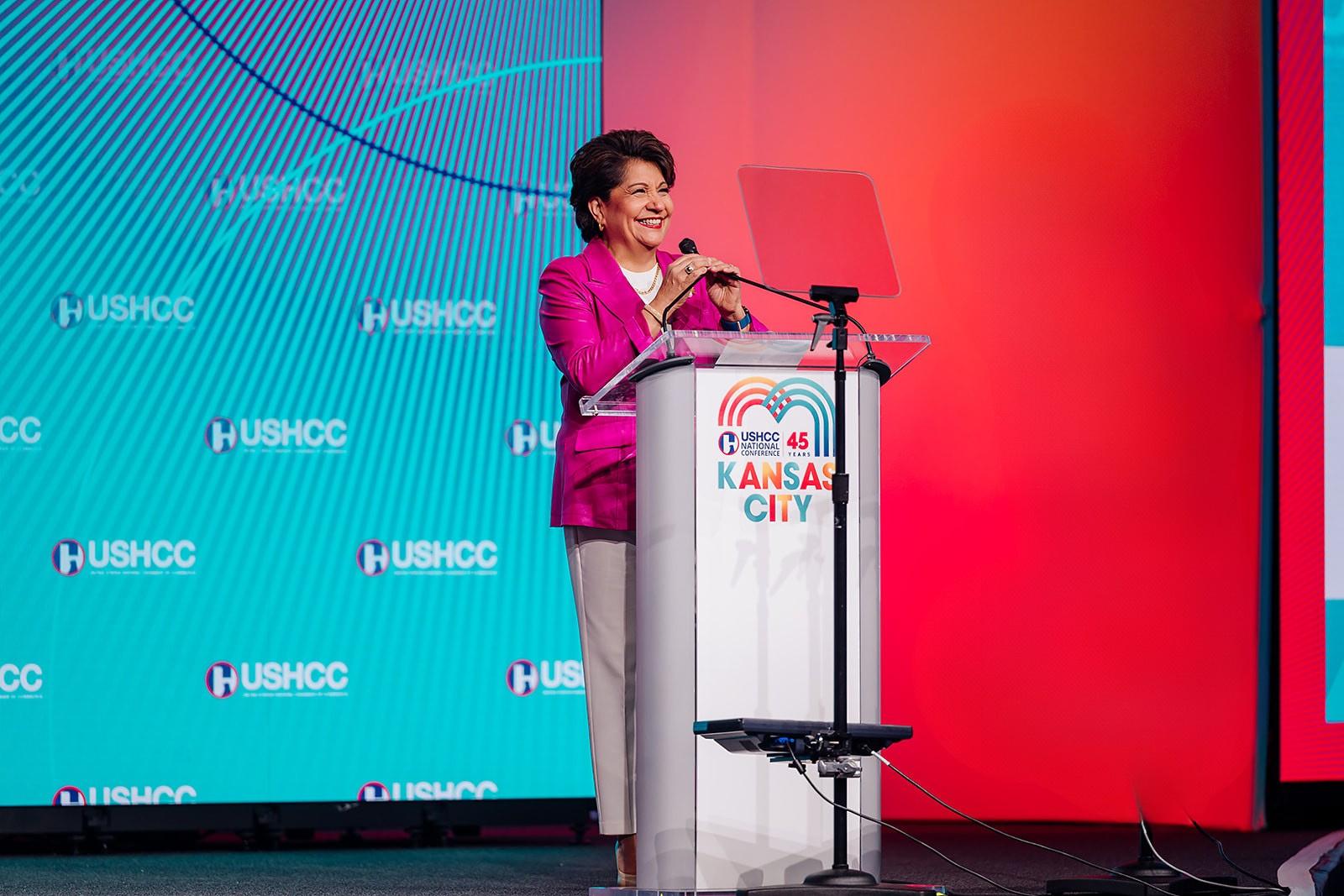


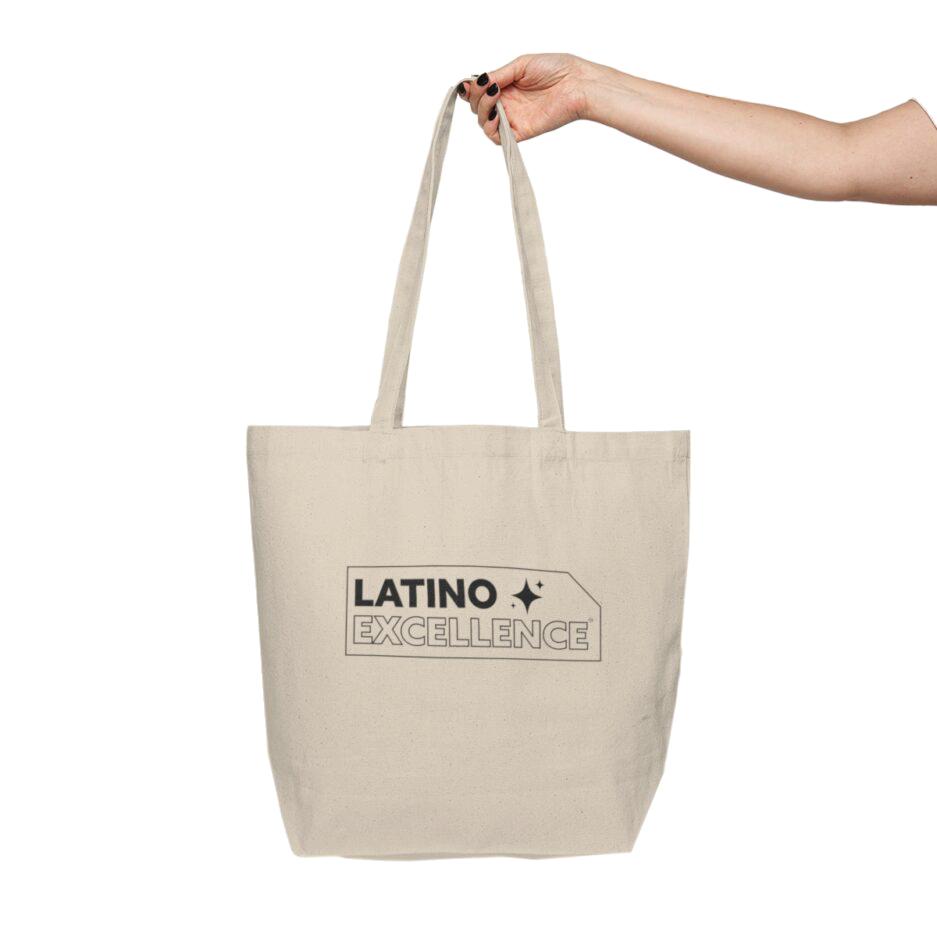



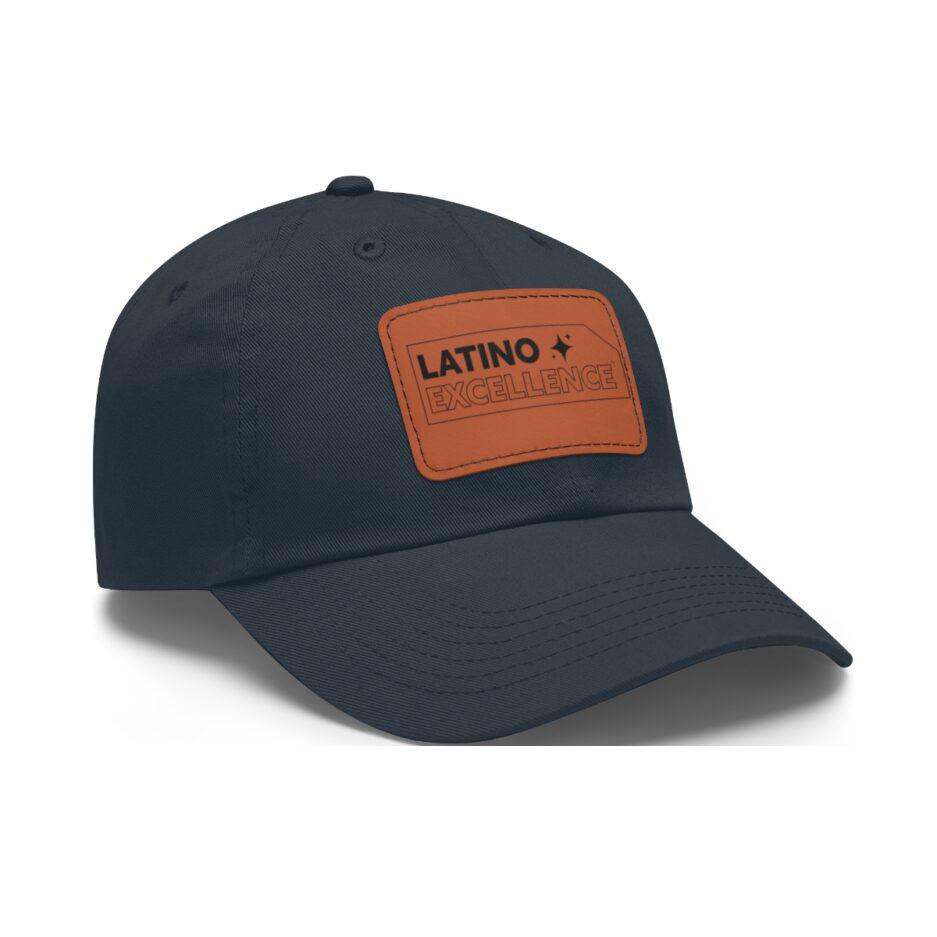


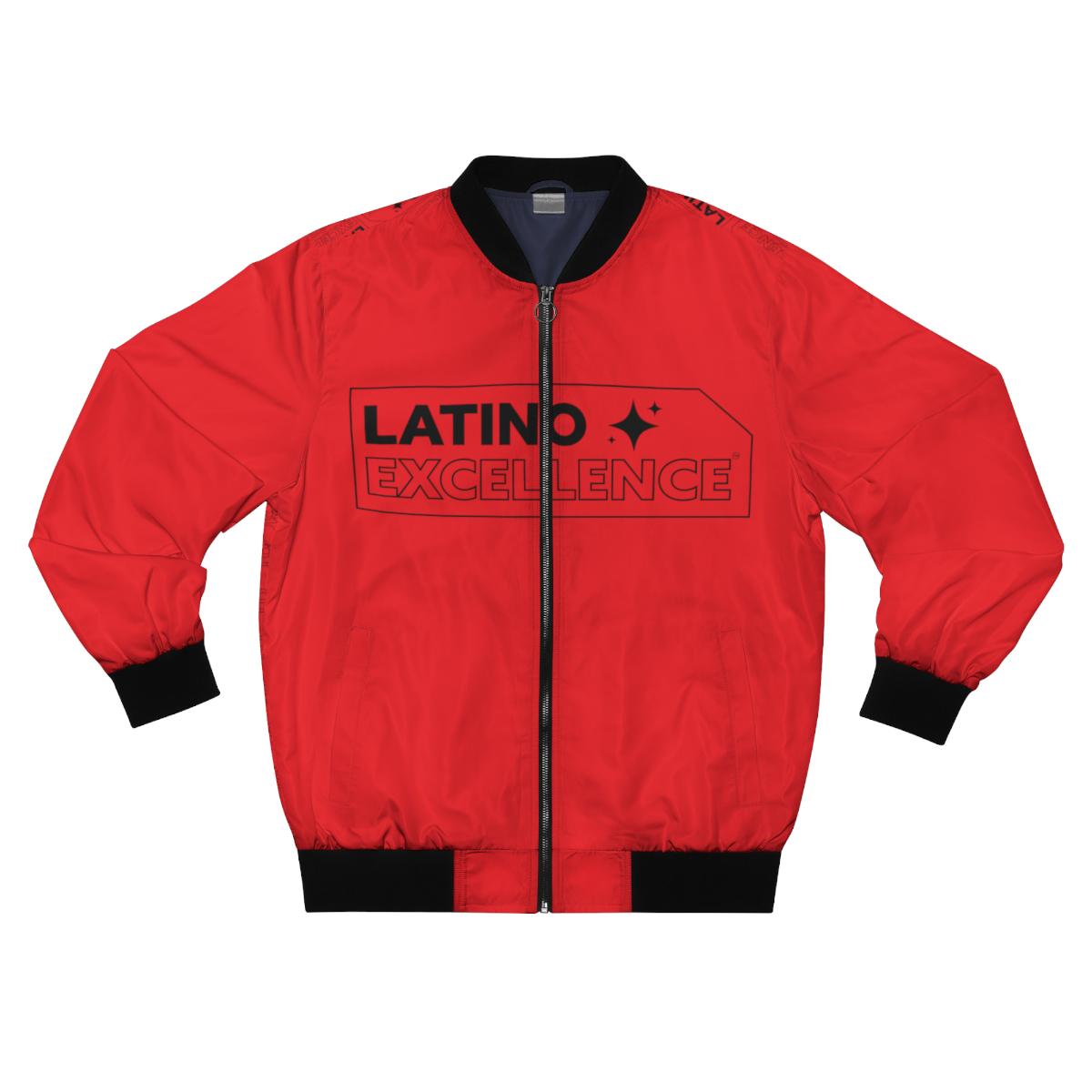

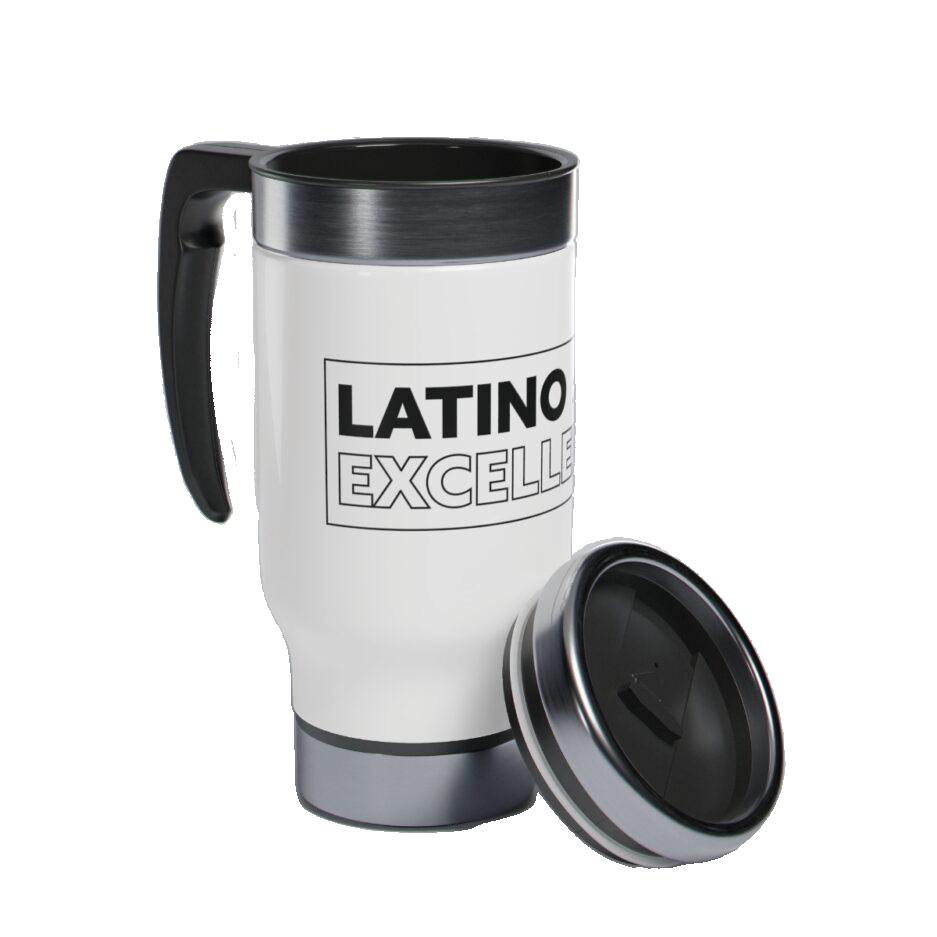
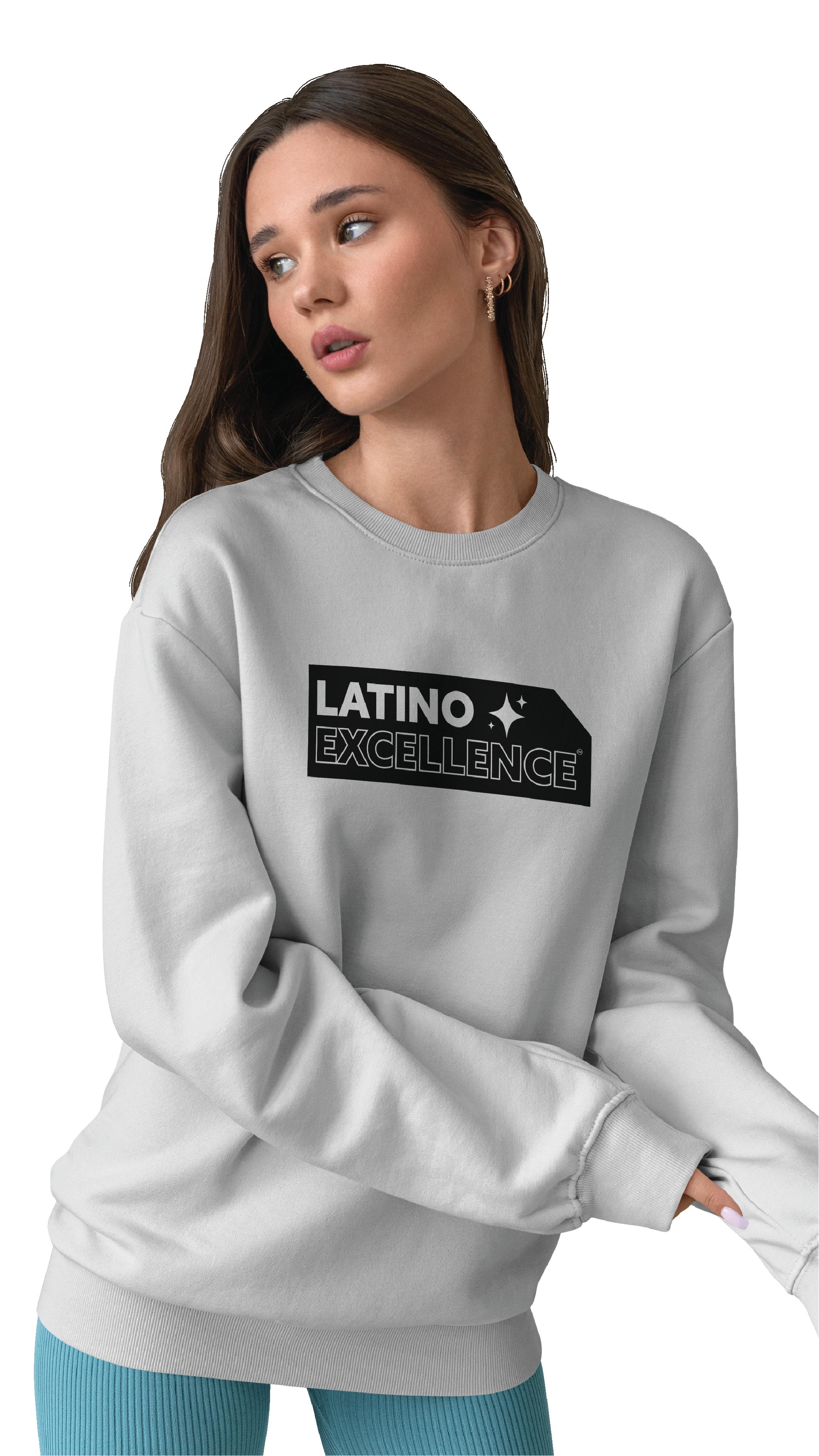



The UnidosUS Team,
On behalf of La Revista Binacional, we want to express our deepest gratitude for the incredible opportunity to collaborate with you on the special edition honoring Janet Murguía’s 20th anniversary.
Thank you for your confidence in our work and for allowing us to be part of such a historic moment. We look forward to continuing to uplift and celebrate the voices, leaders, and movements that shape our community.
Special thanks to Ana Gabriela Fernández, Media Relations Director of UNIDOS US, for being a key piece in the coordination of her team and La Revista Binacional.
¡Muchas Gracias!
Thank you to all of our sponsors and affiliates who were excited to participate in this great project.



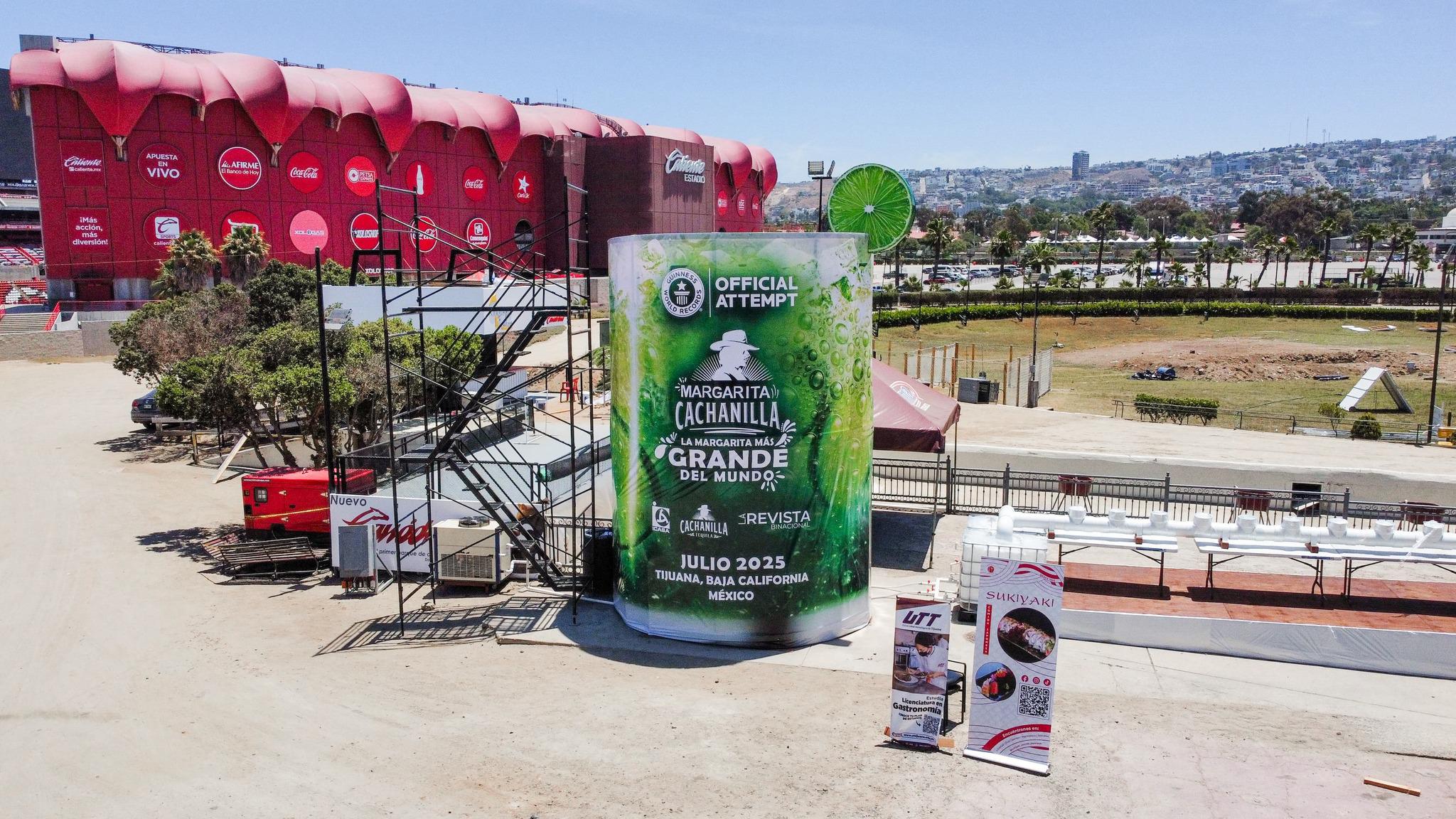
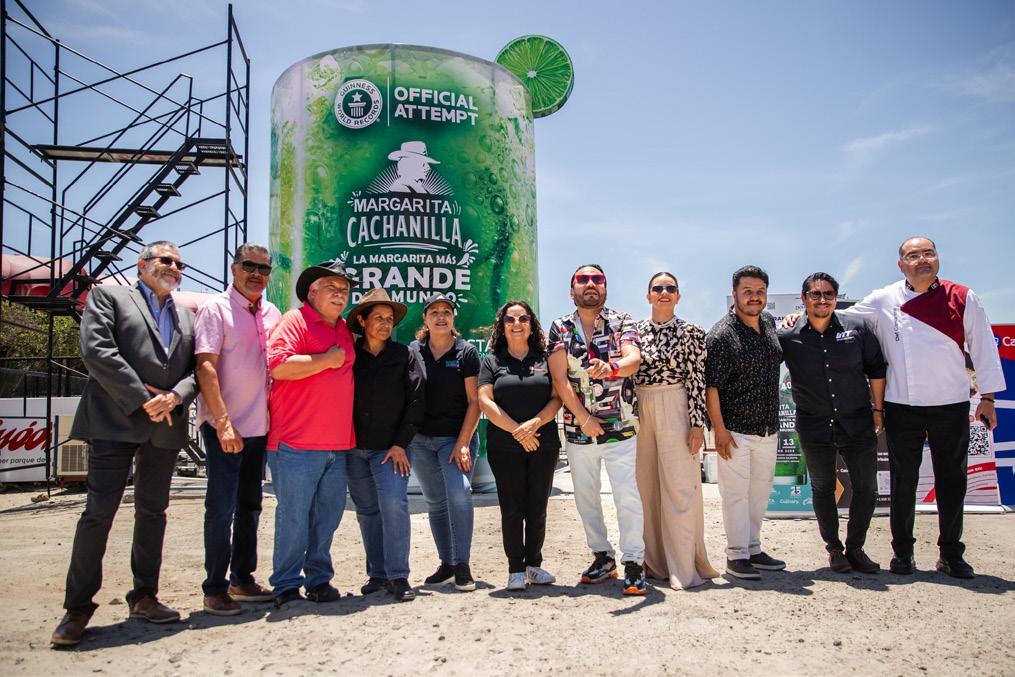
La Revista Binacional Constructora iCasa history with the world’s largest margarita!

